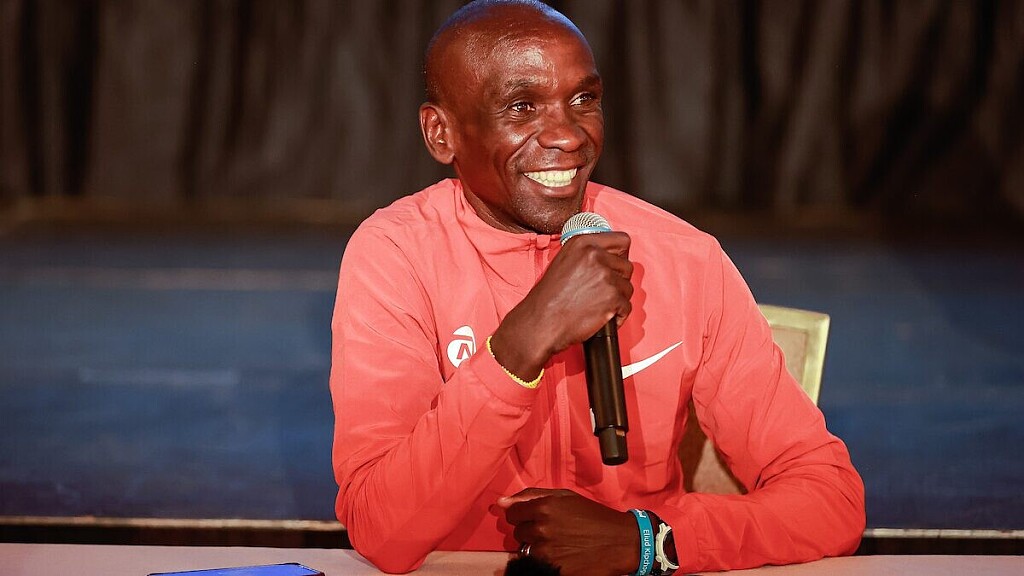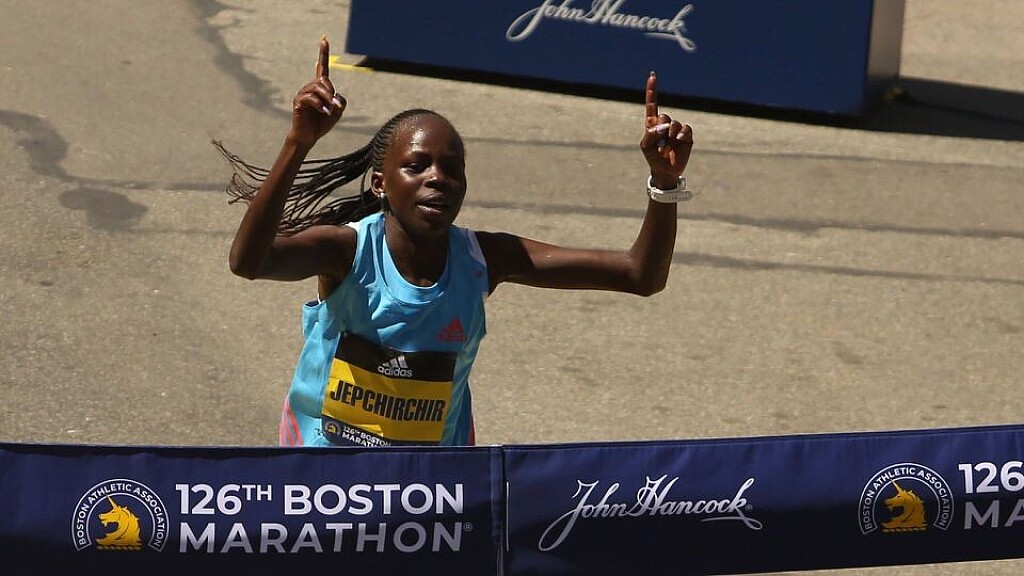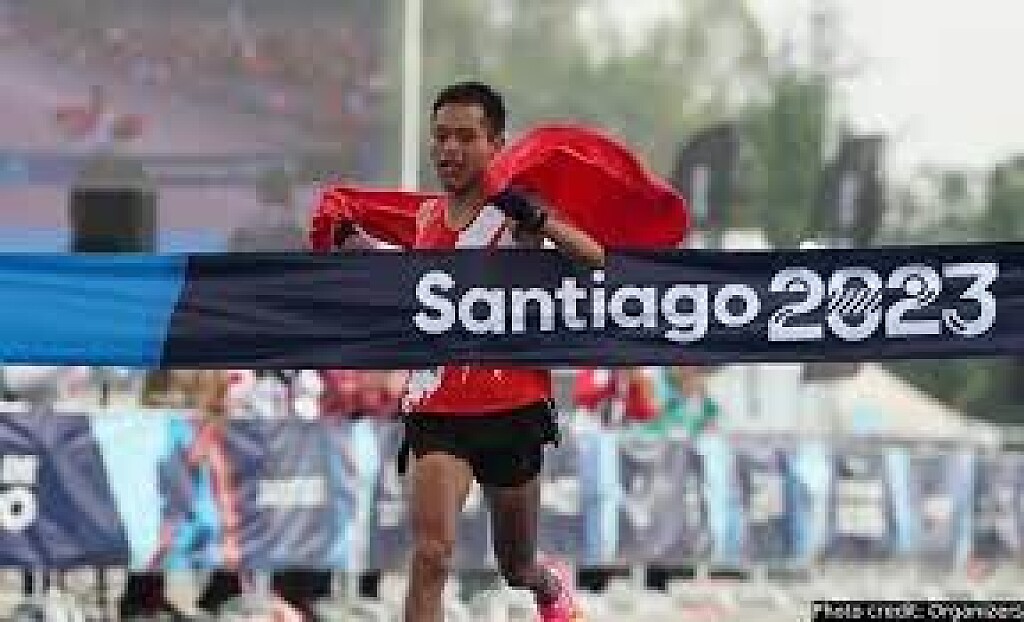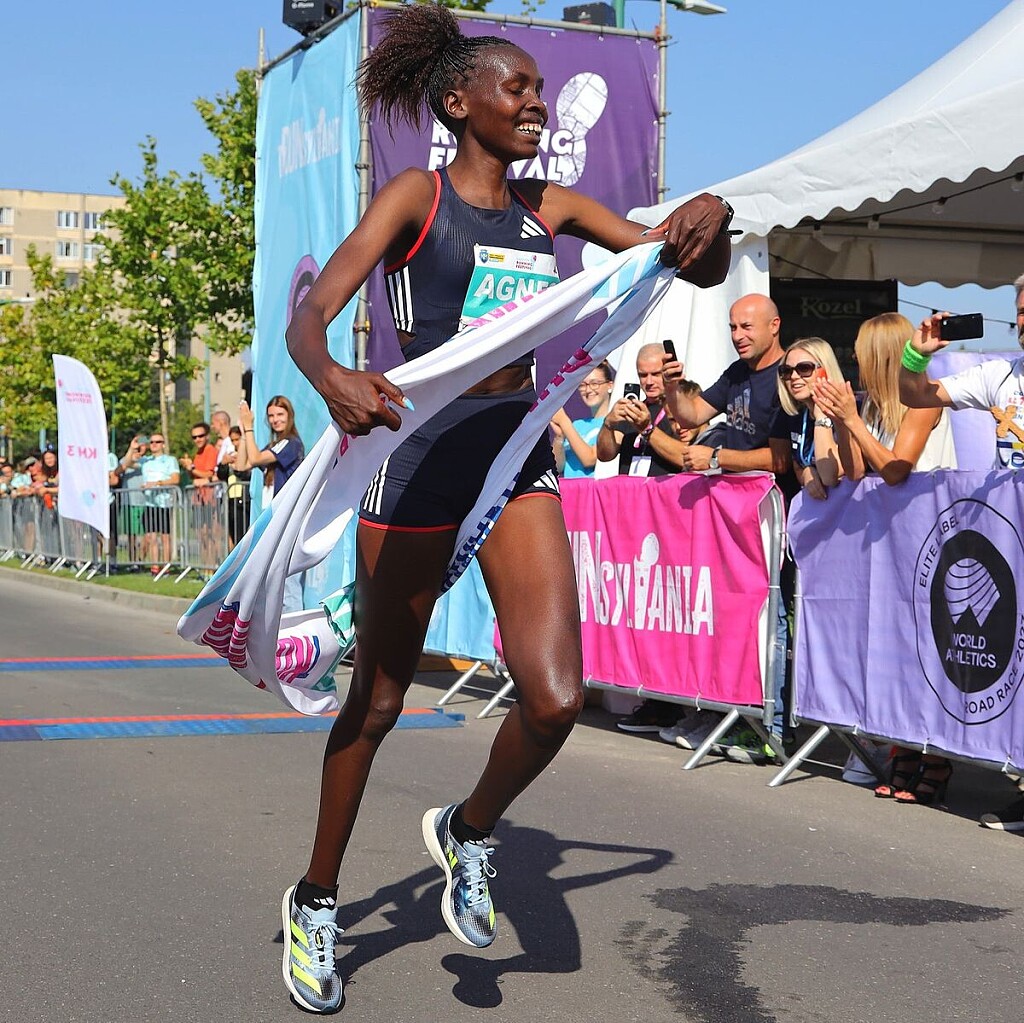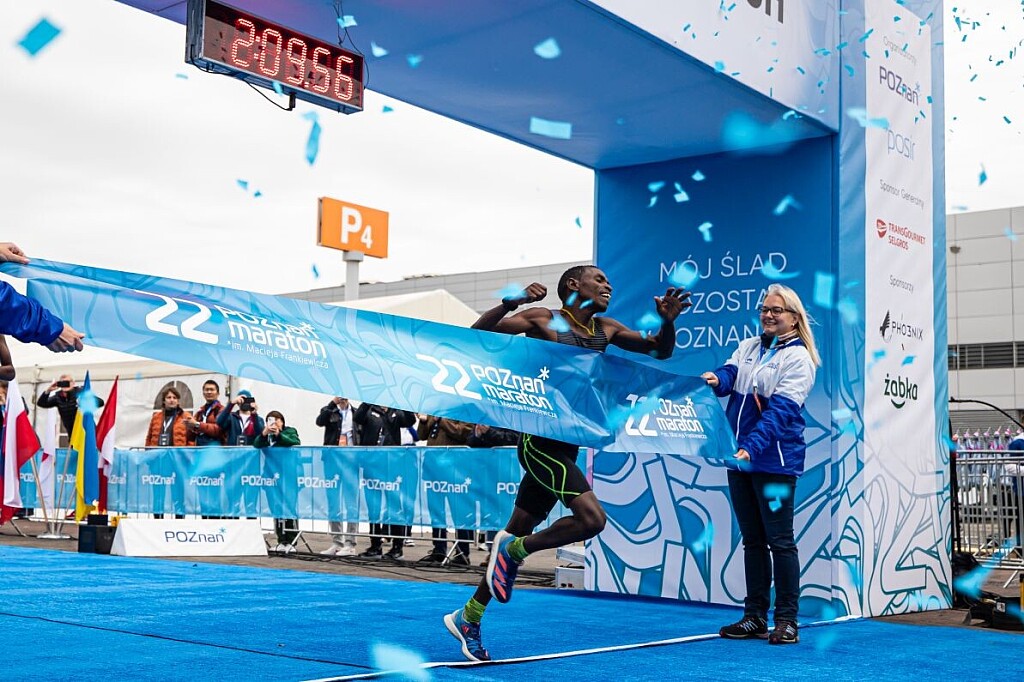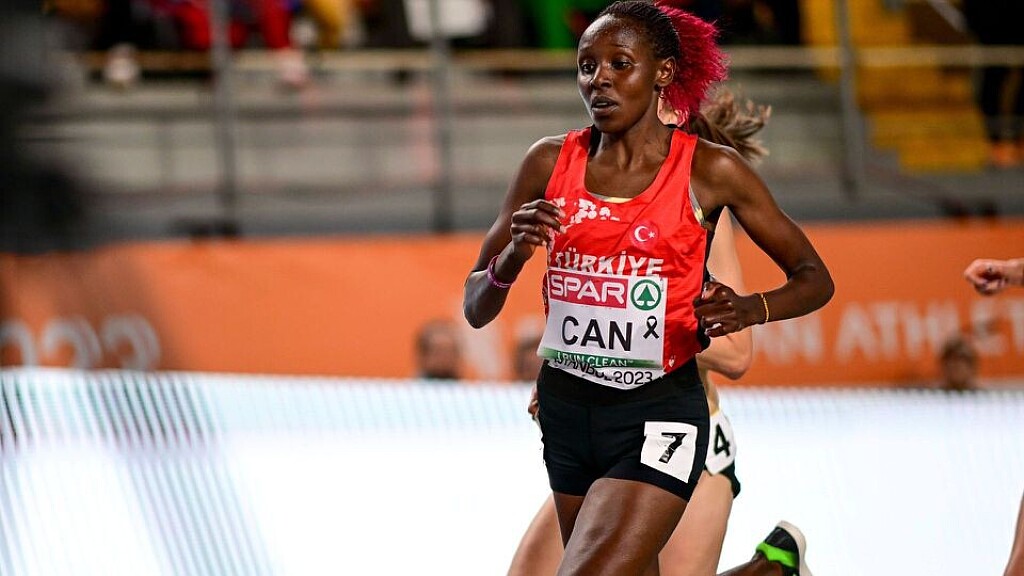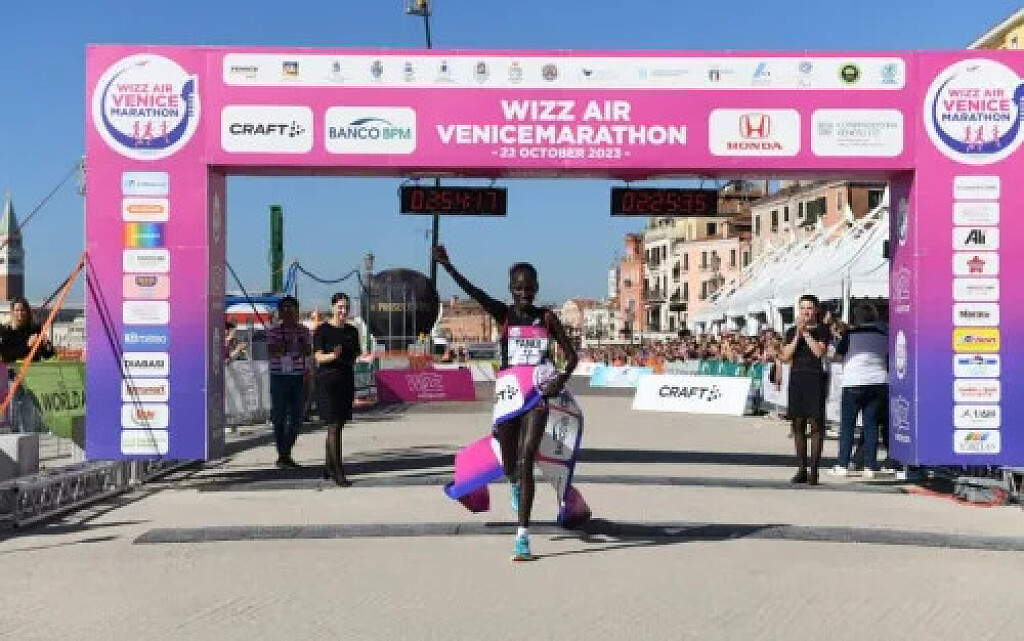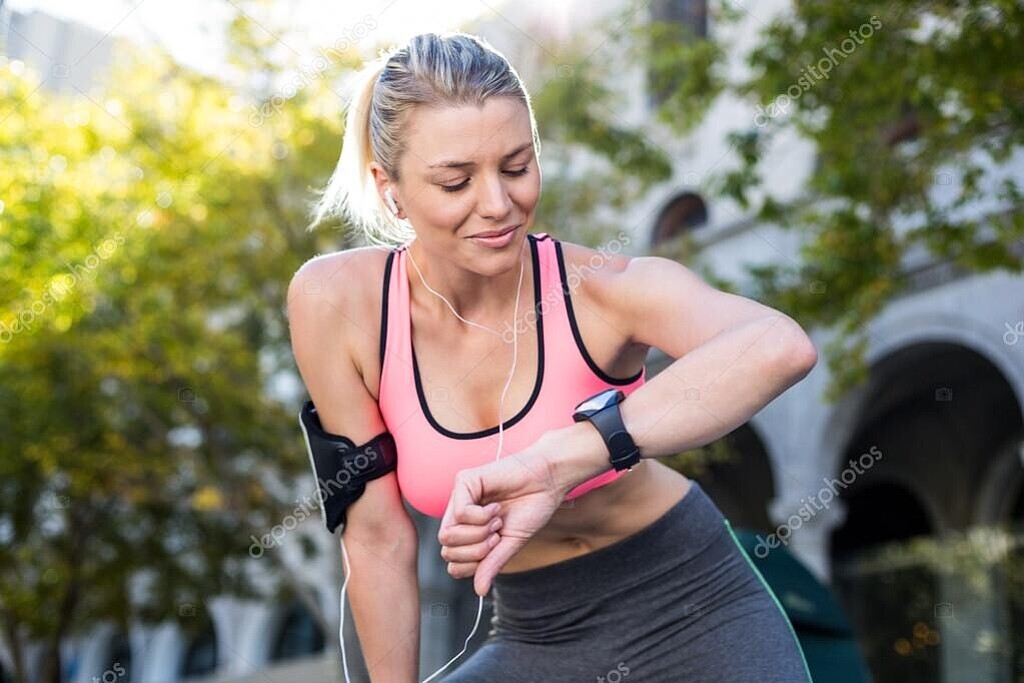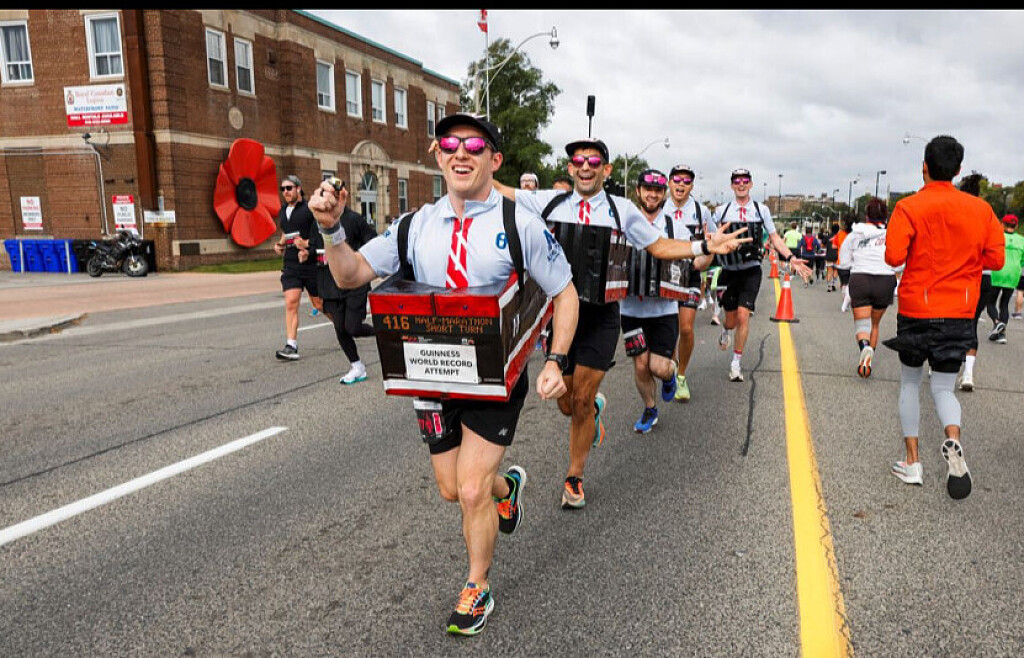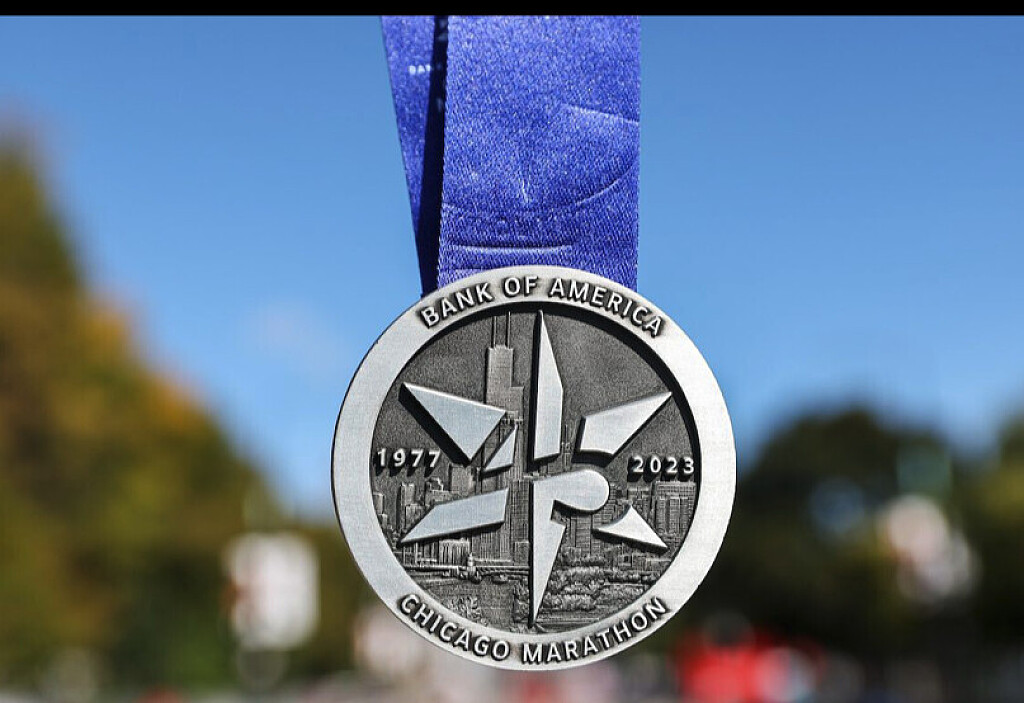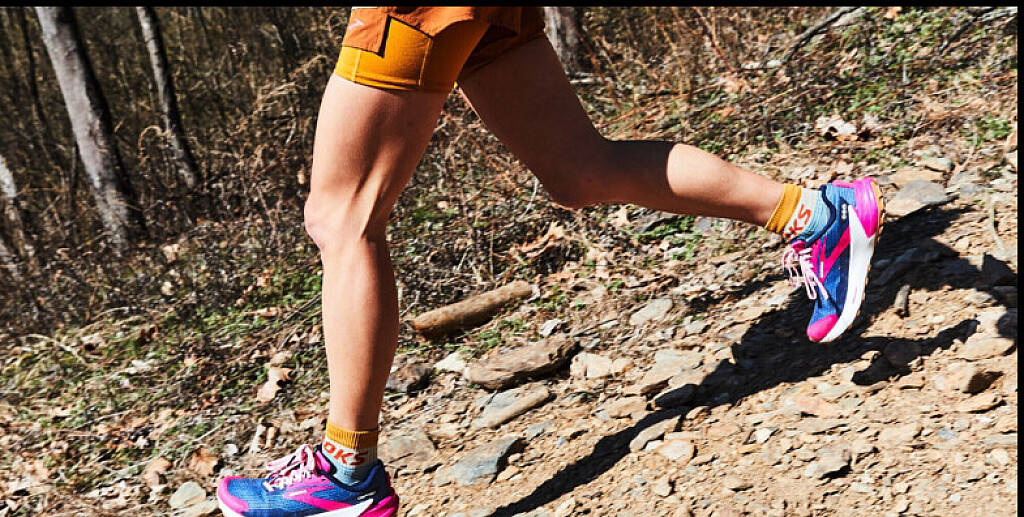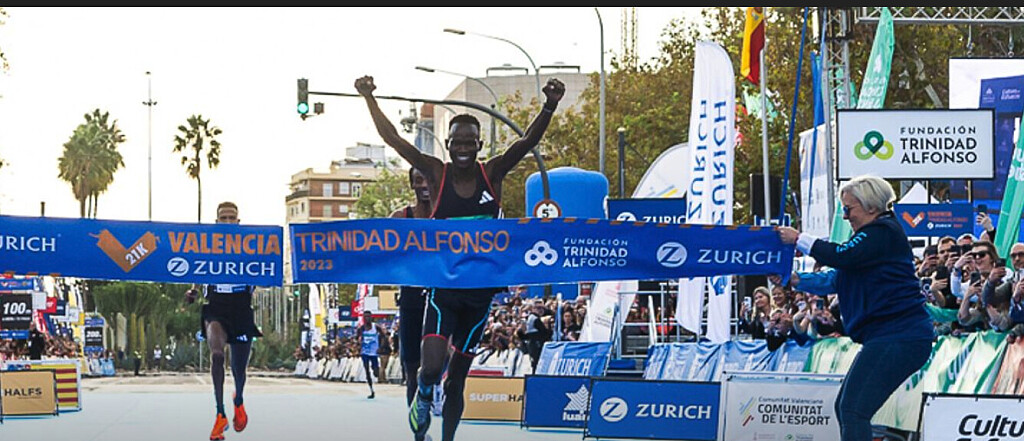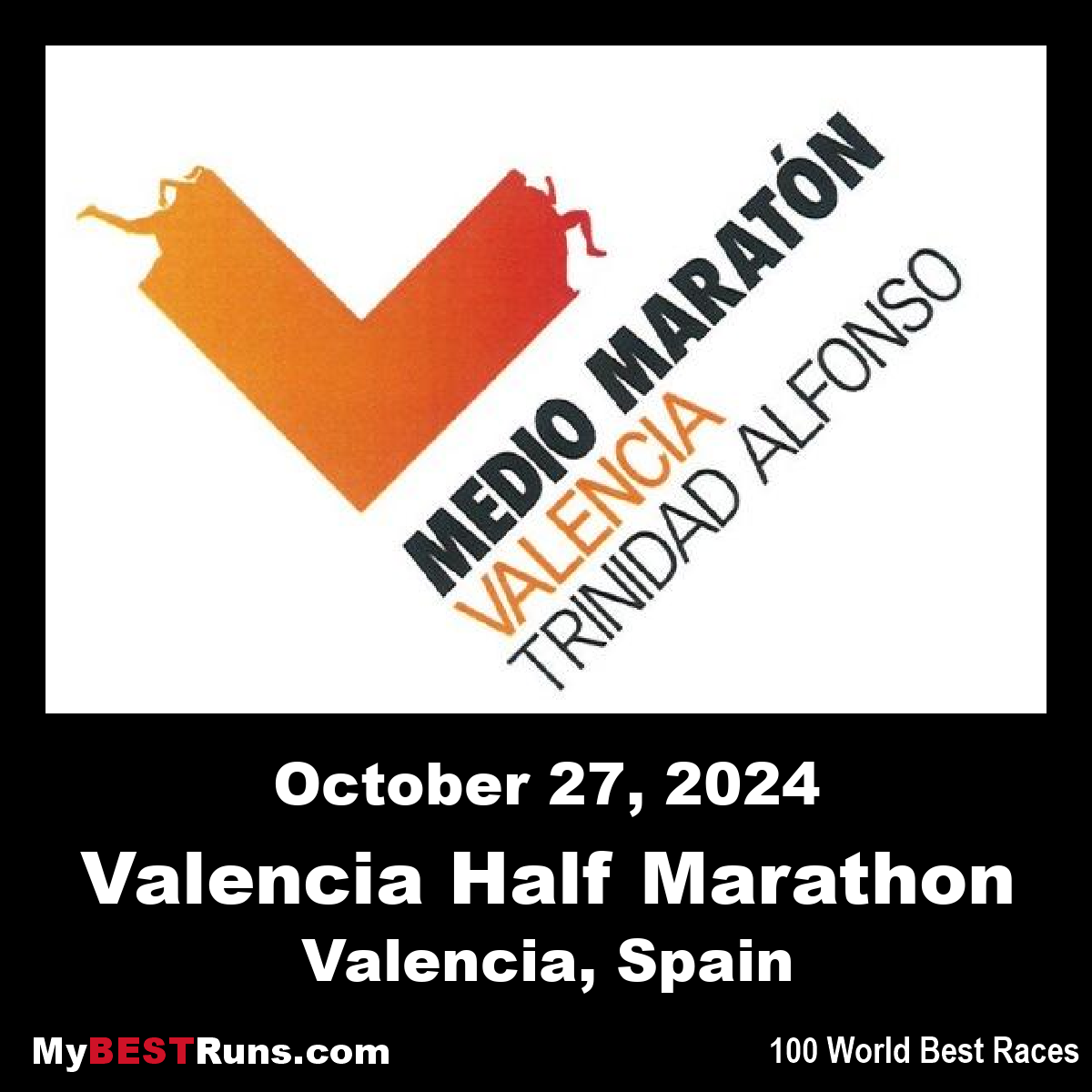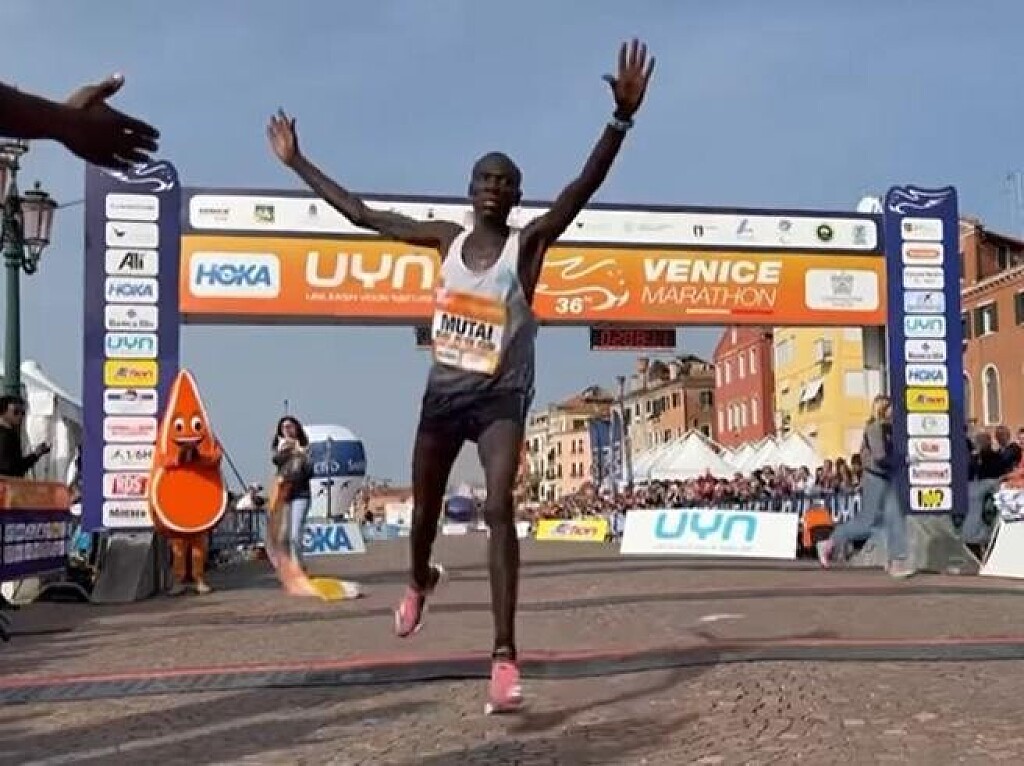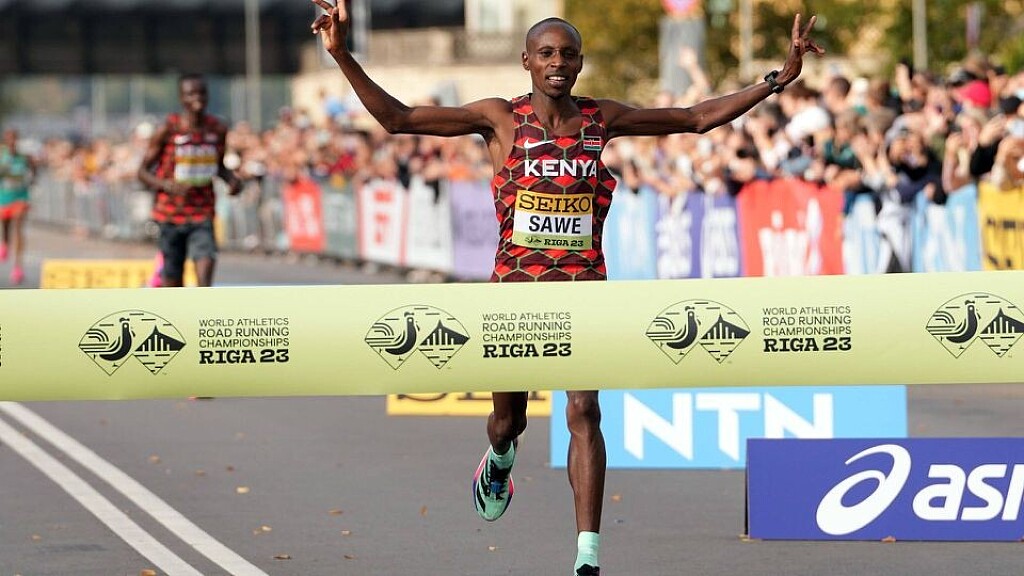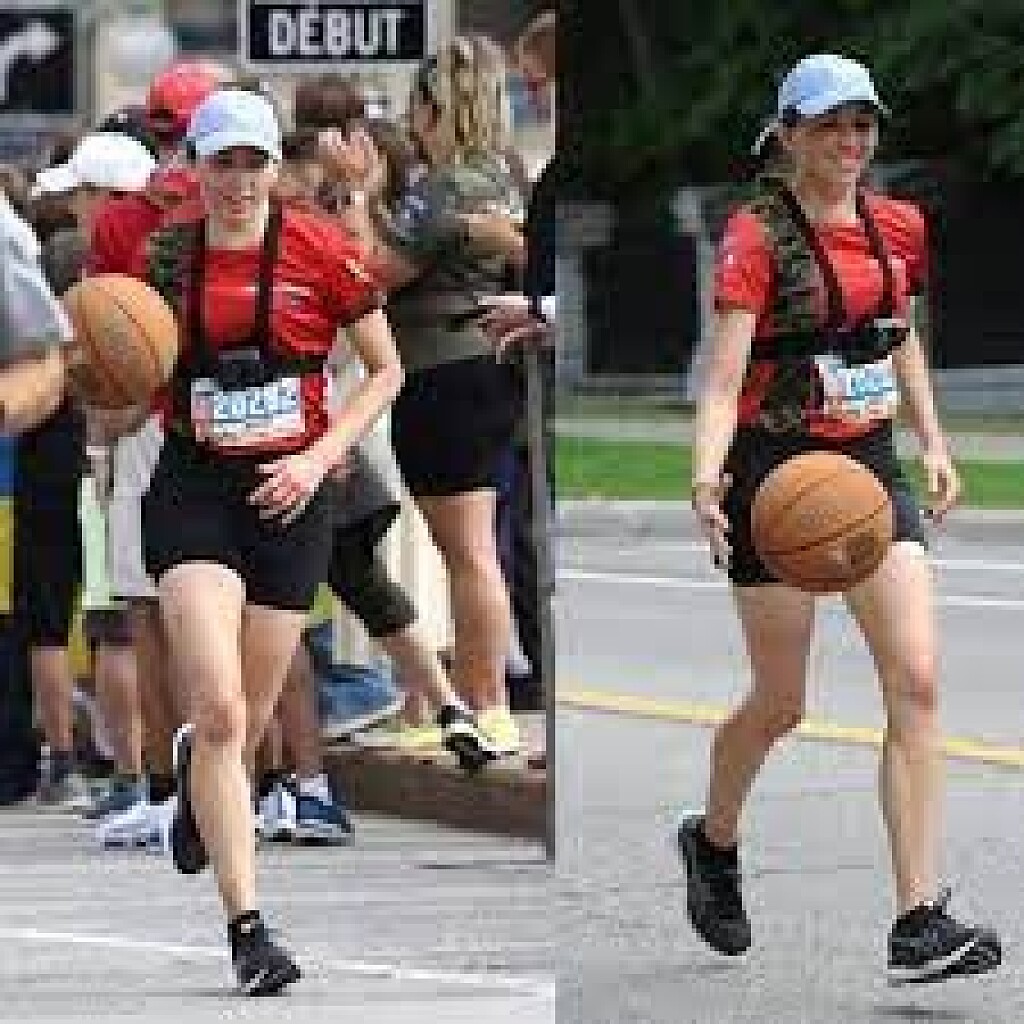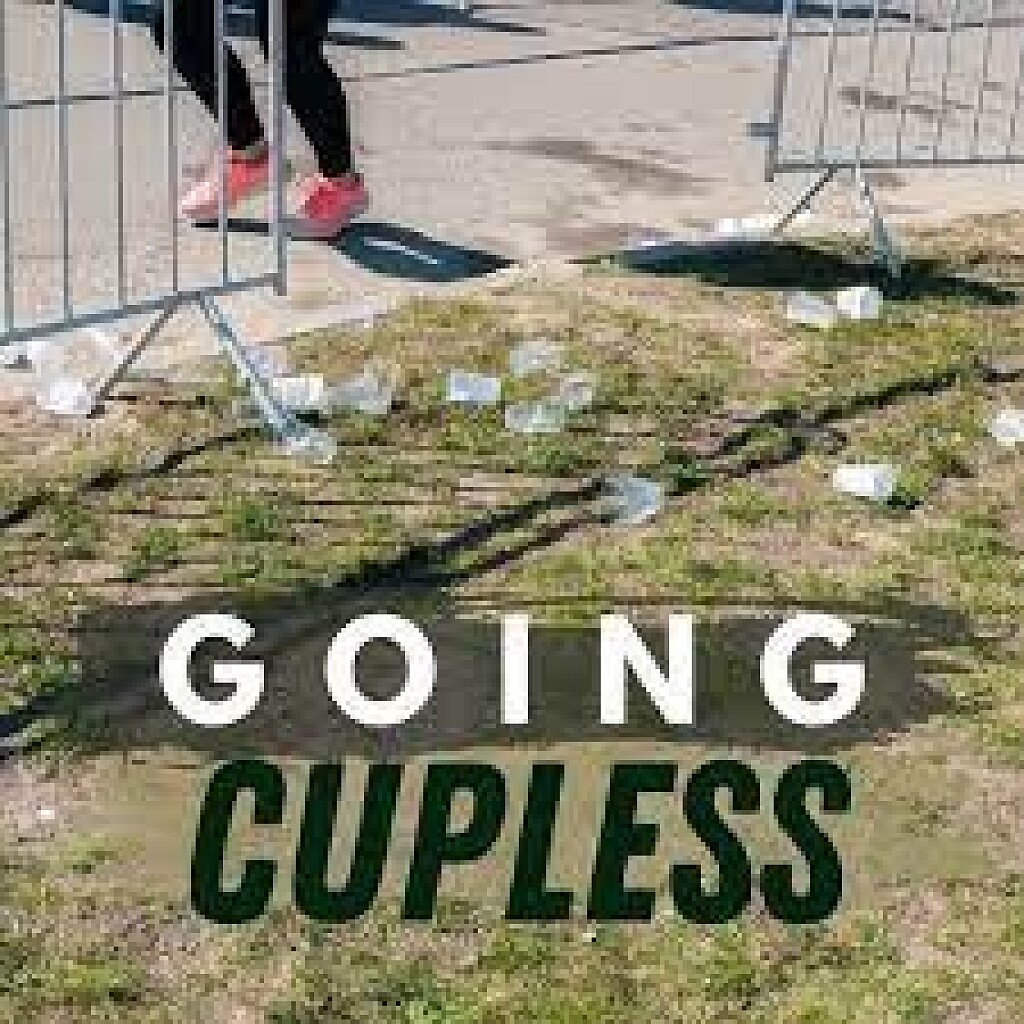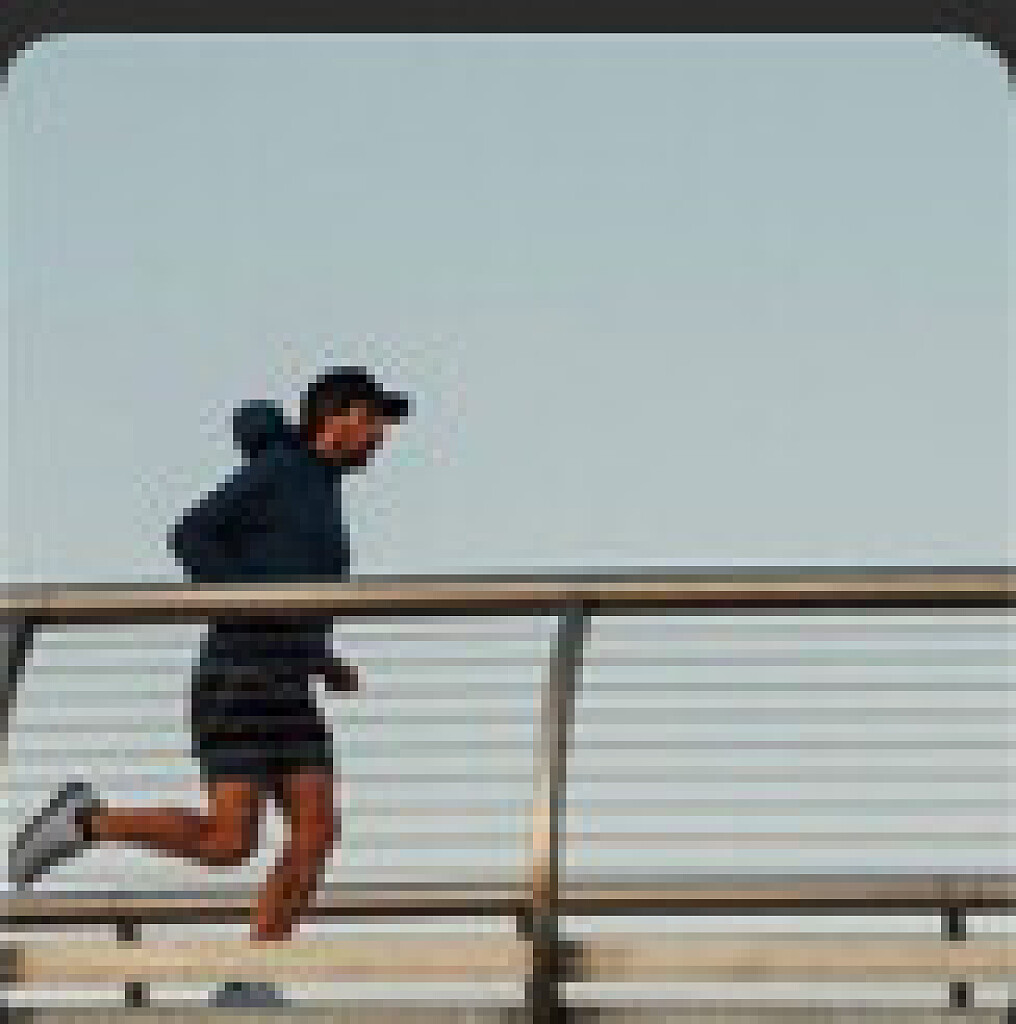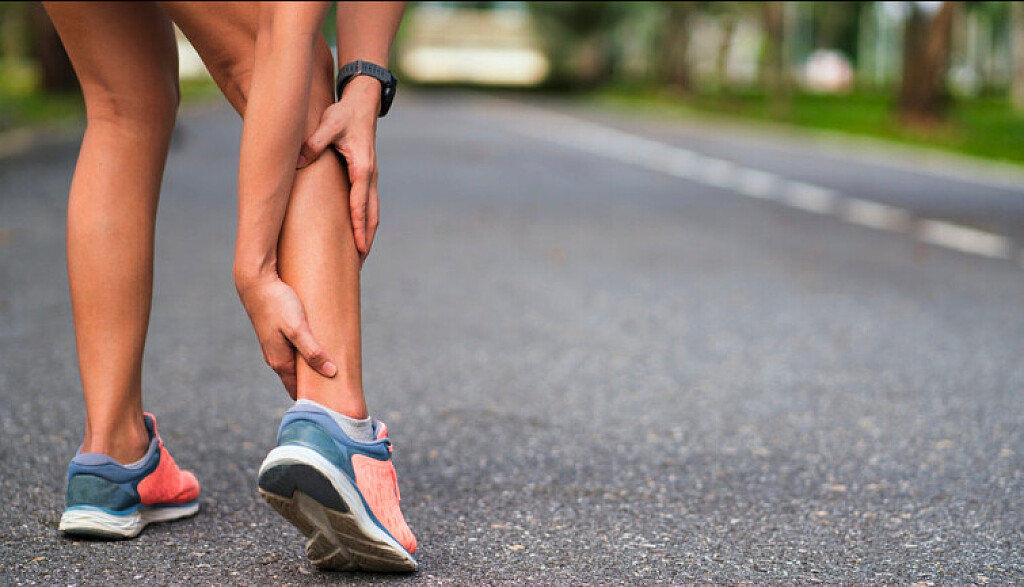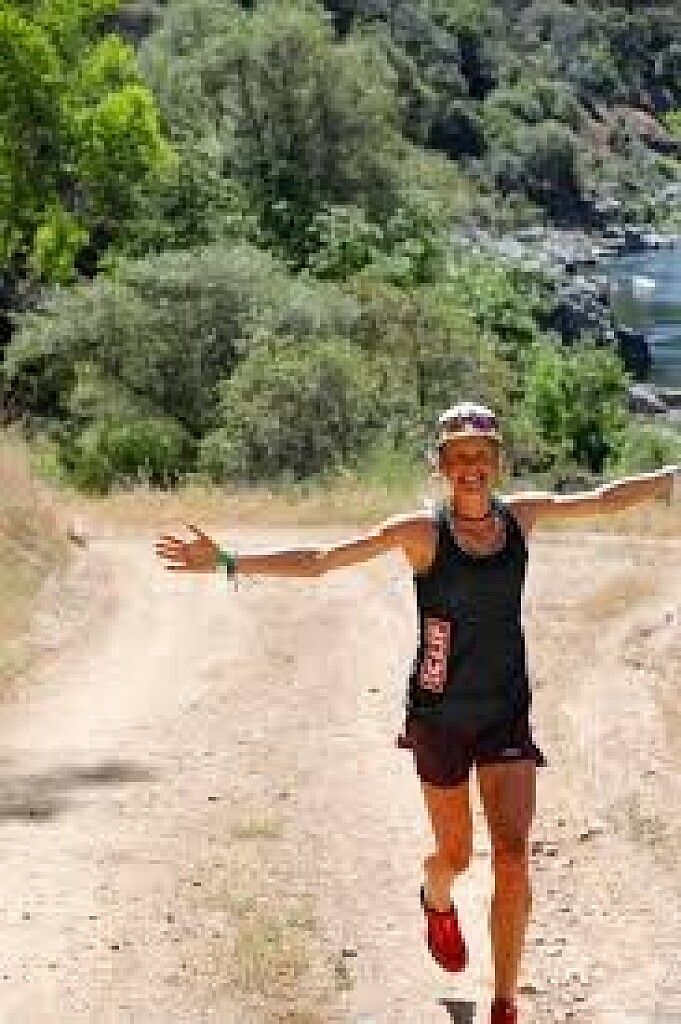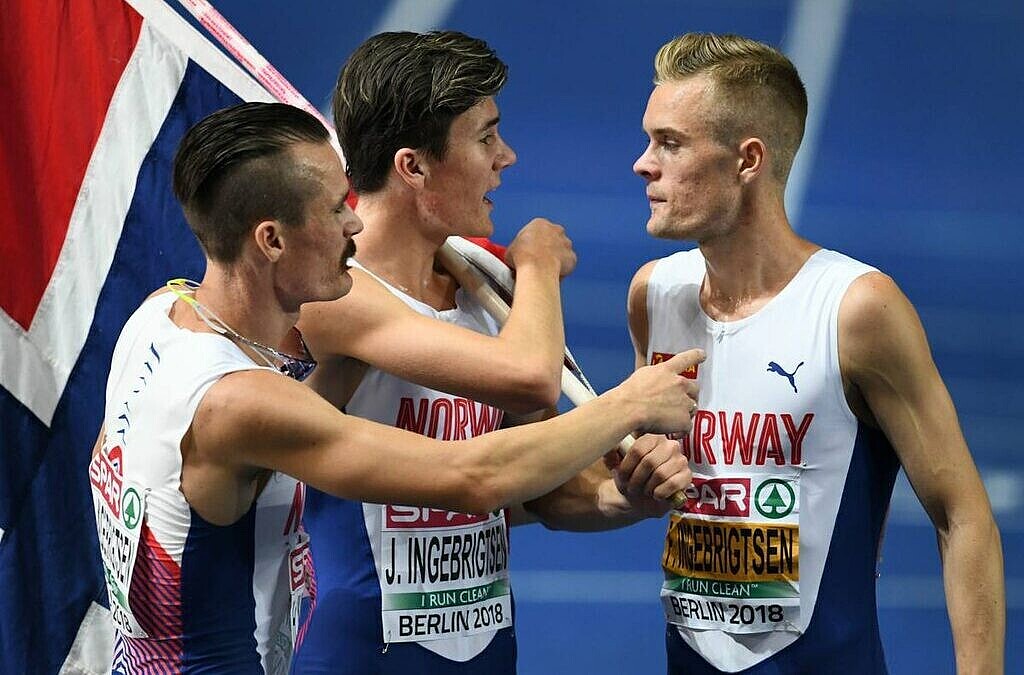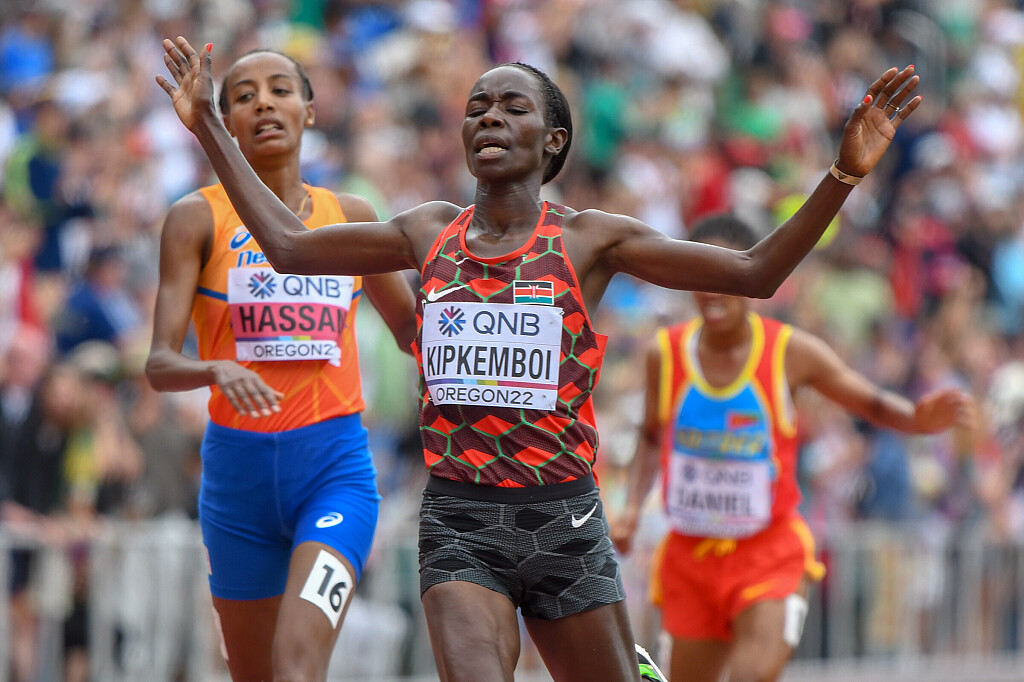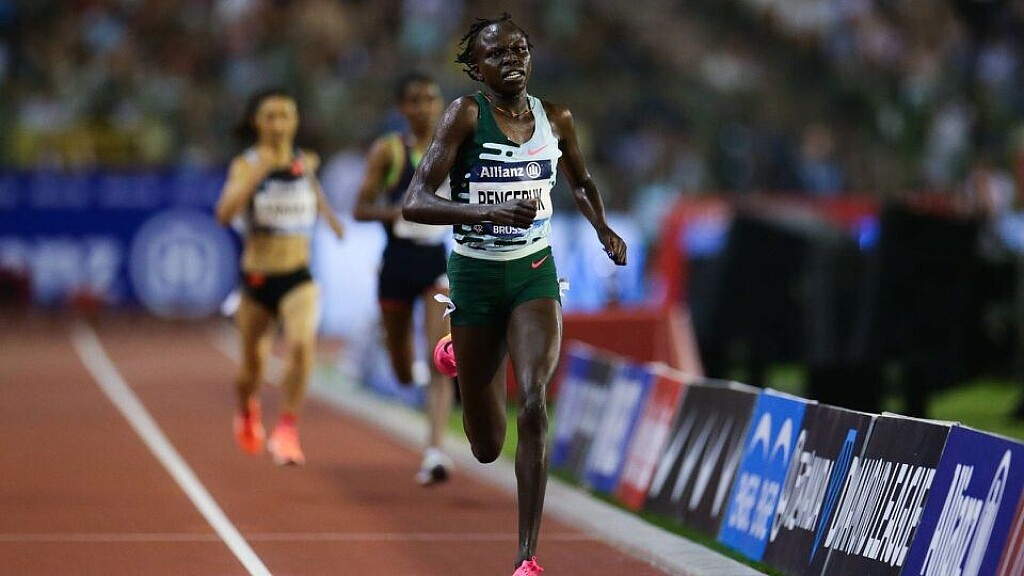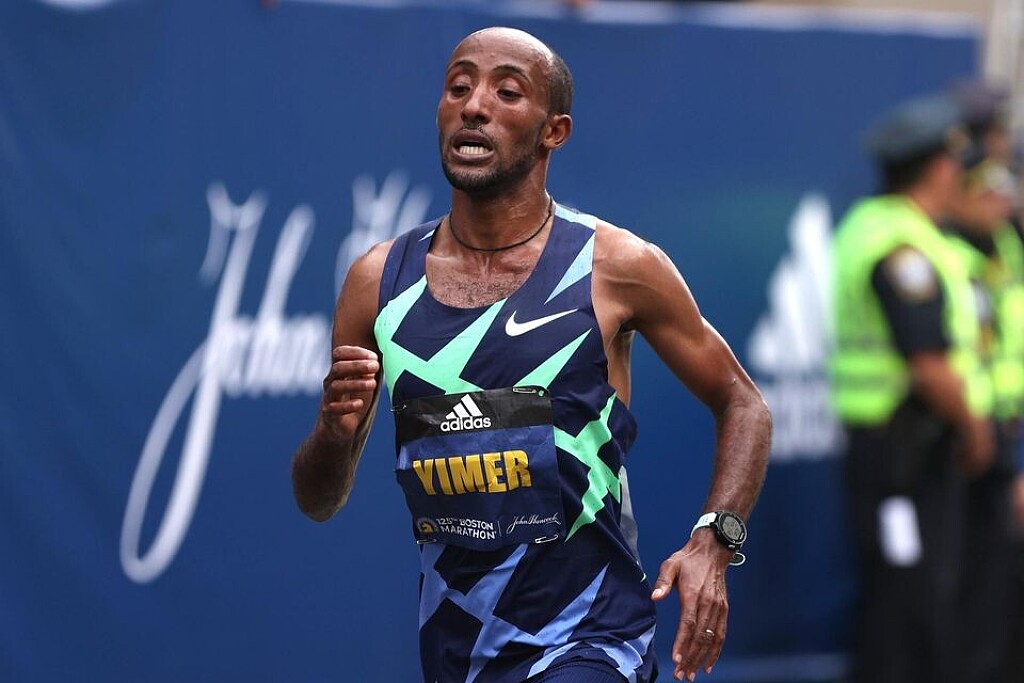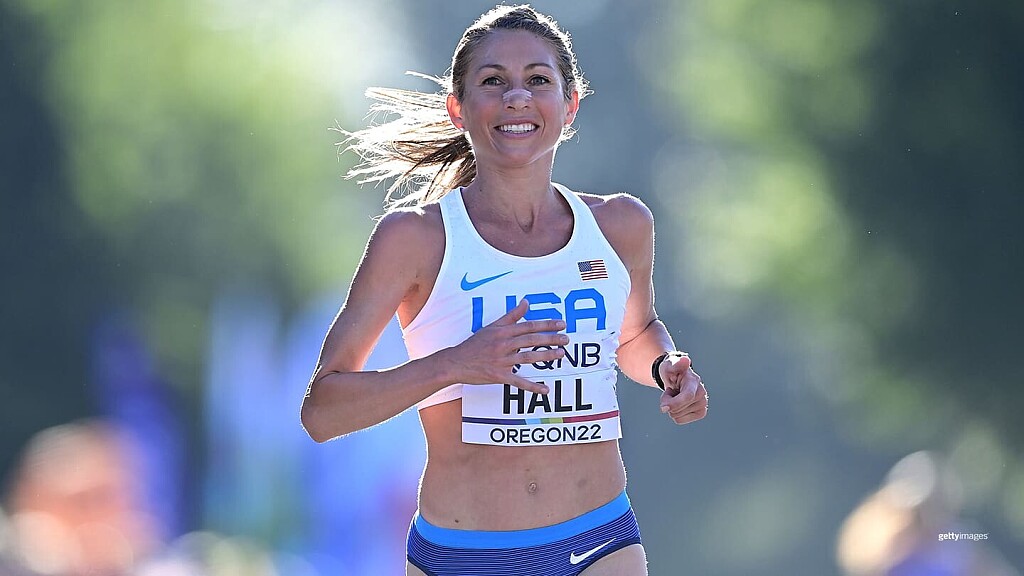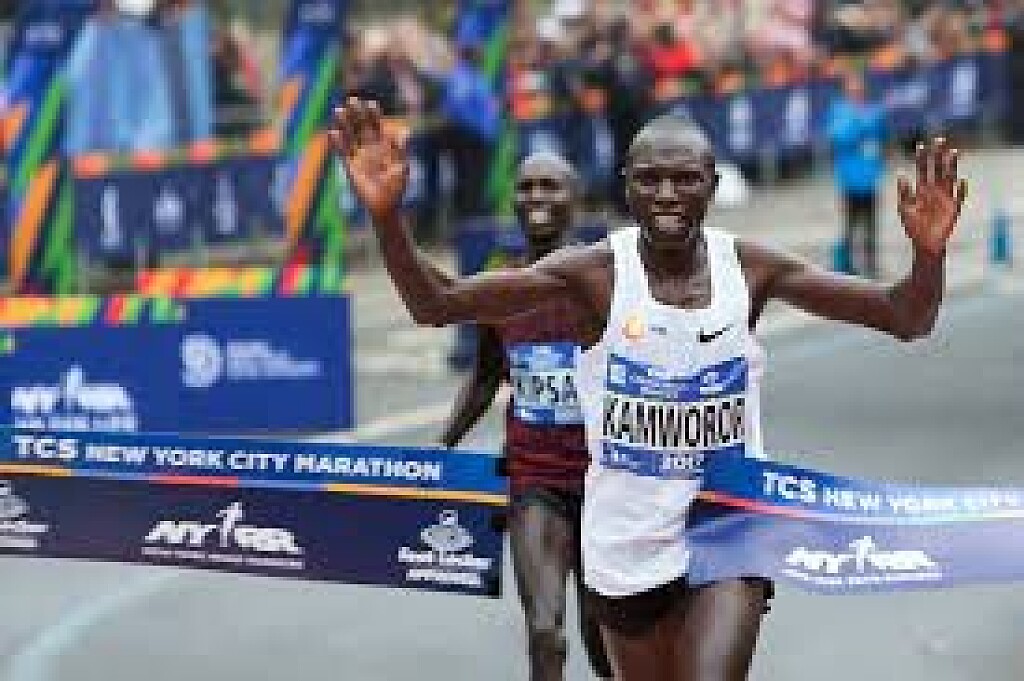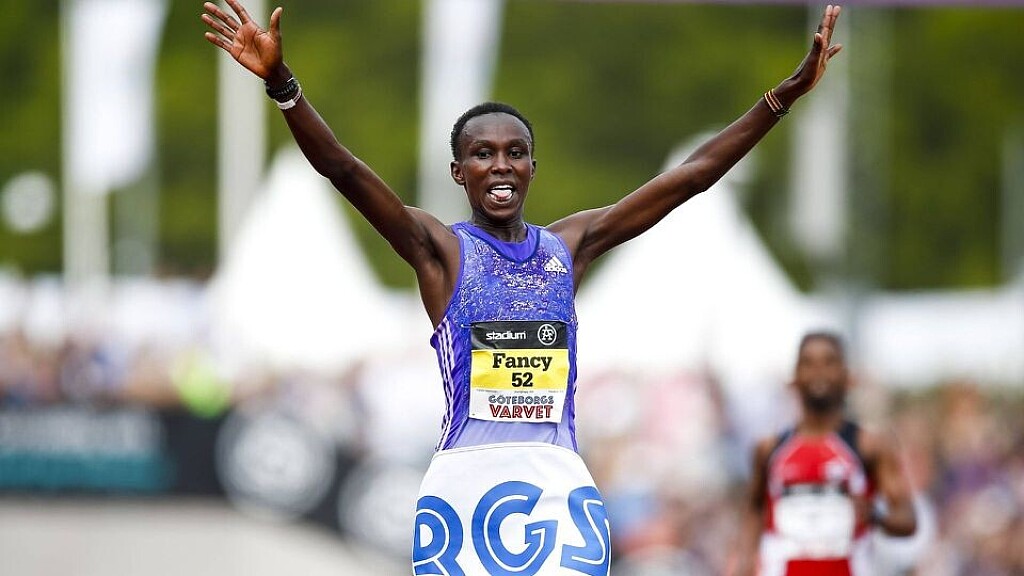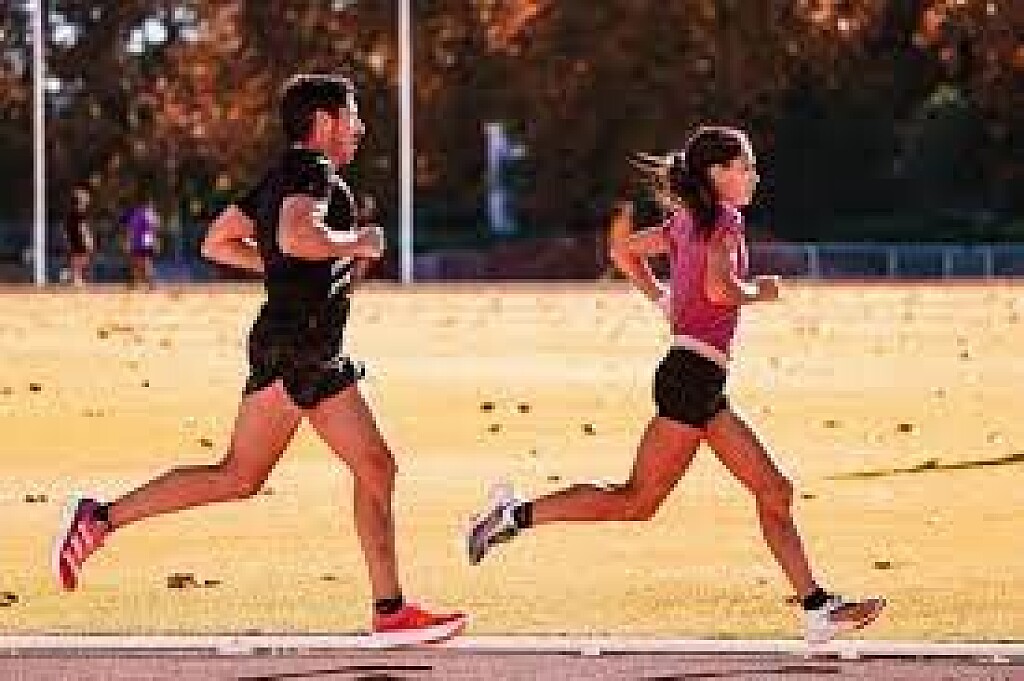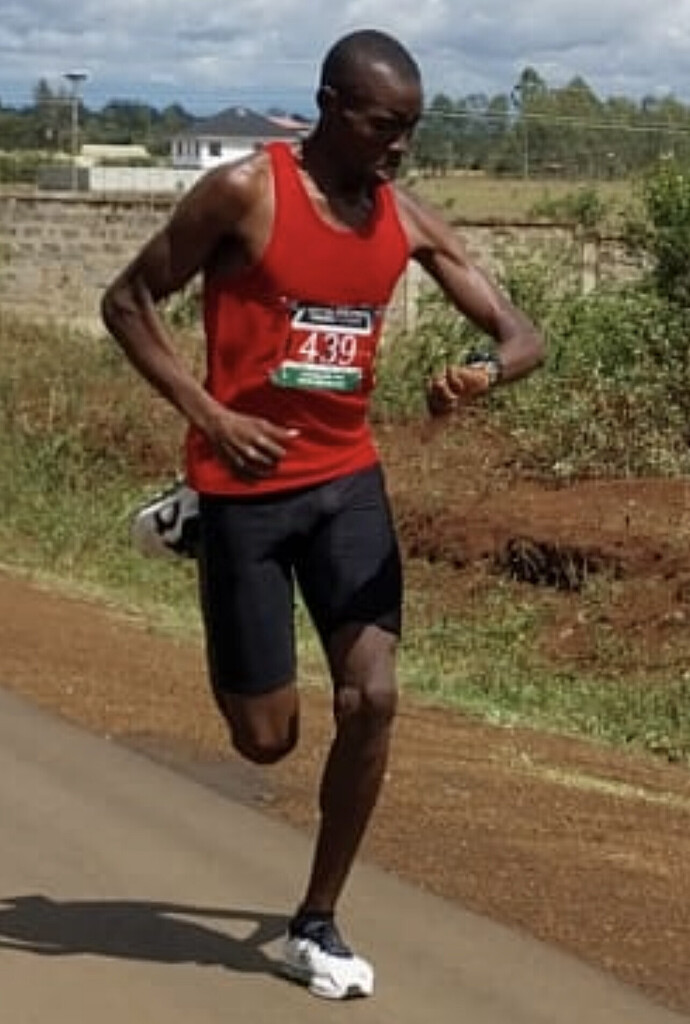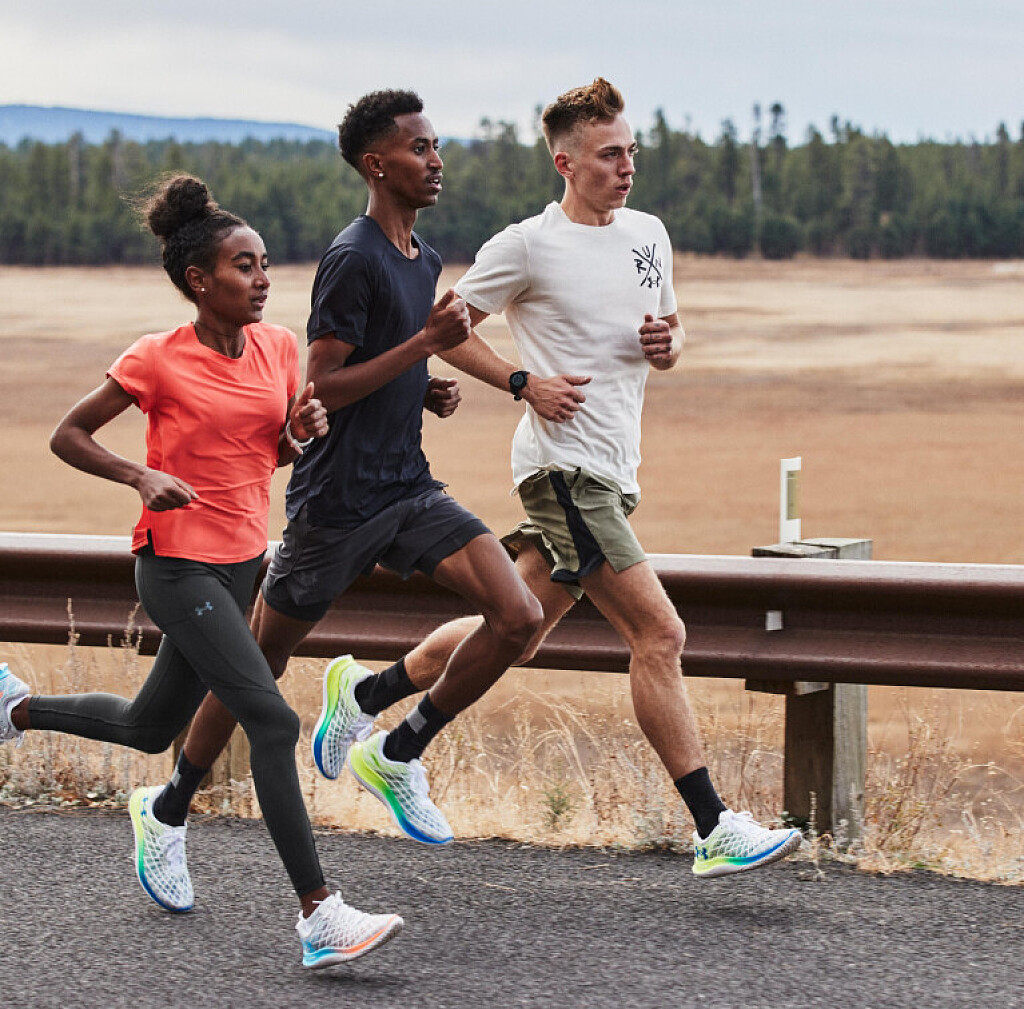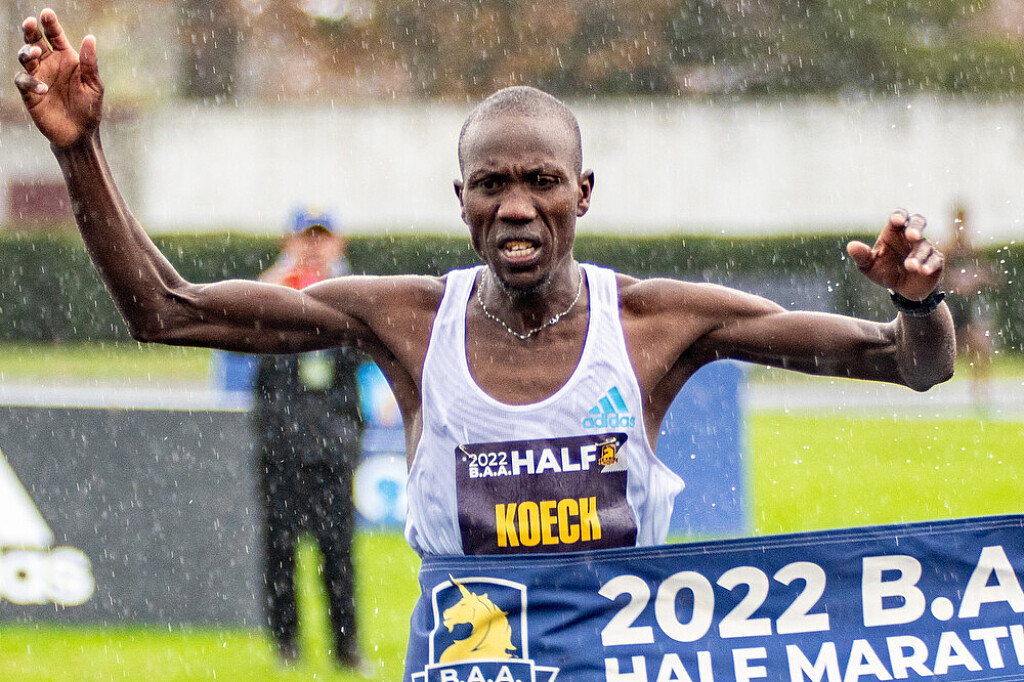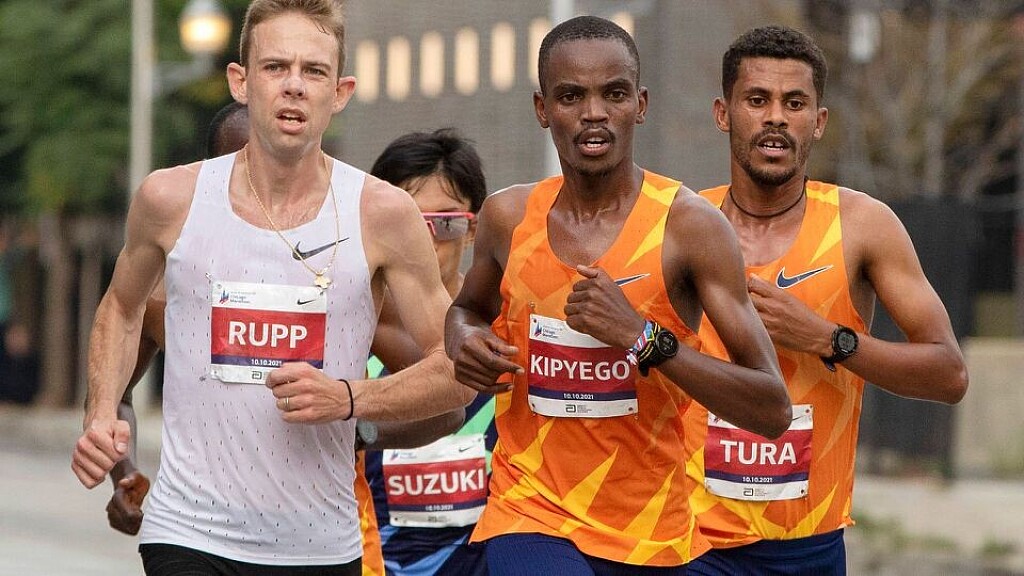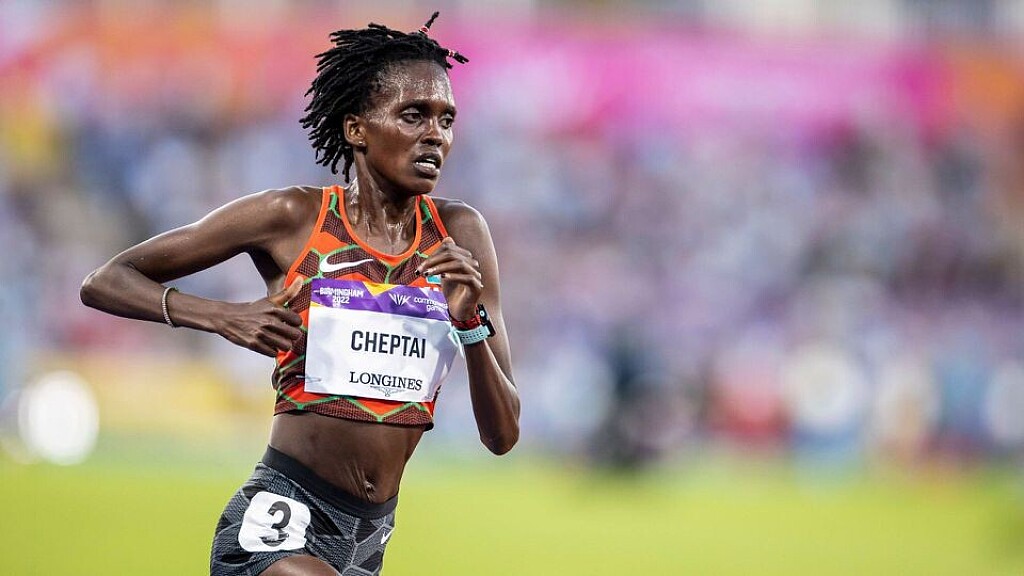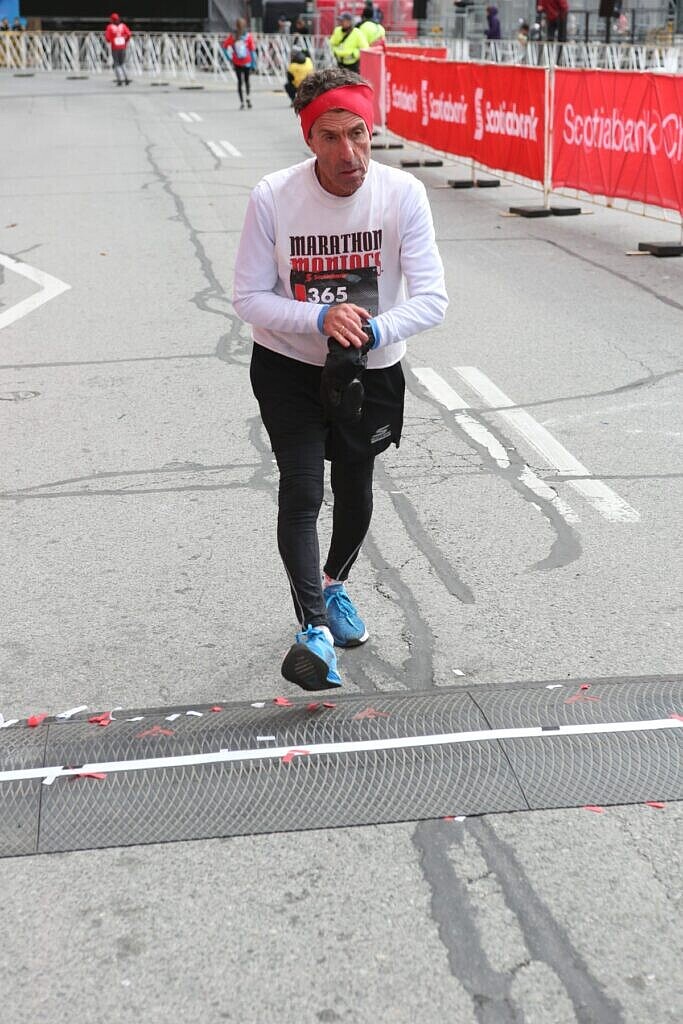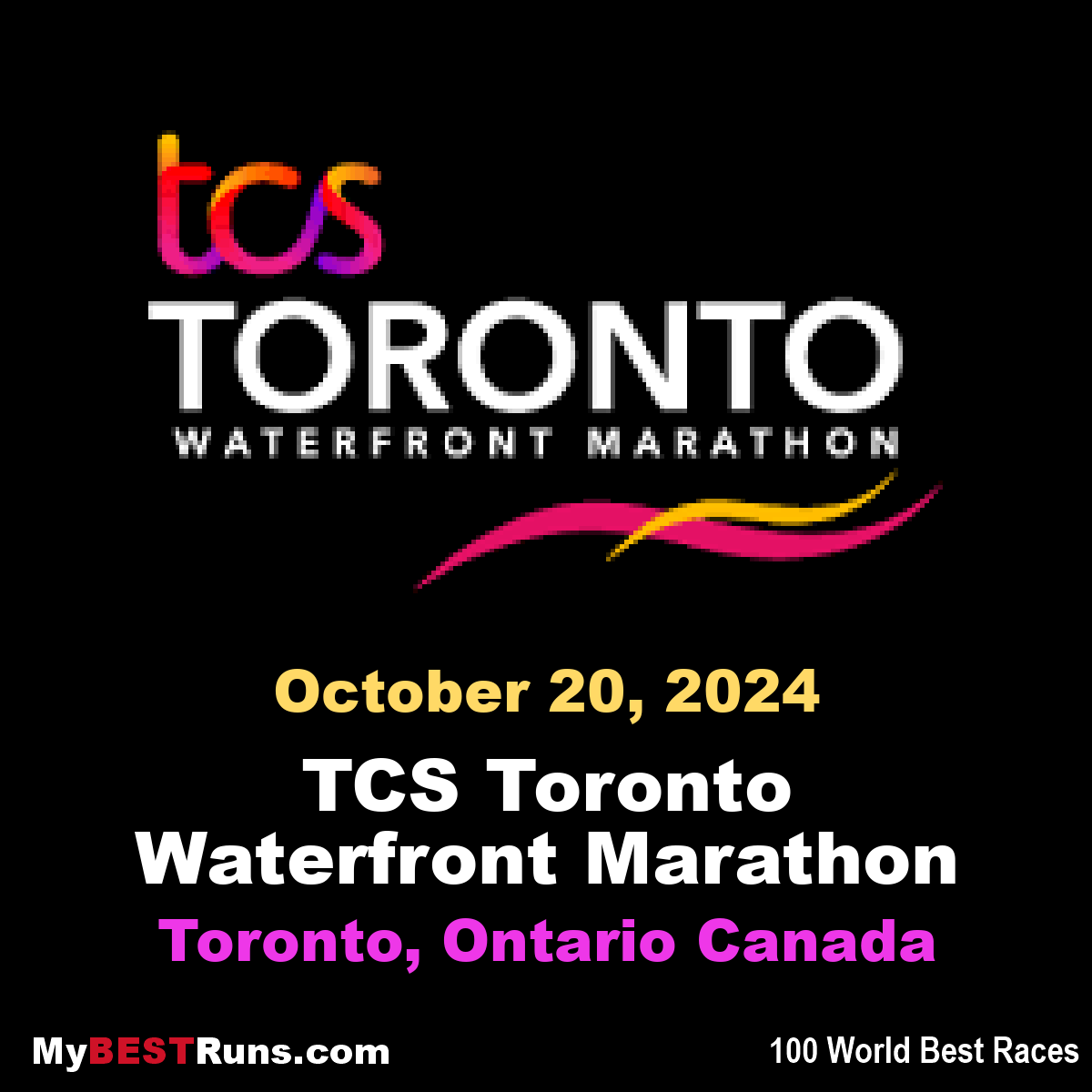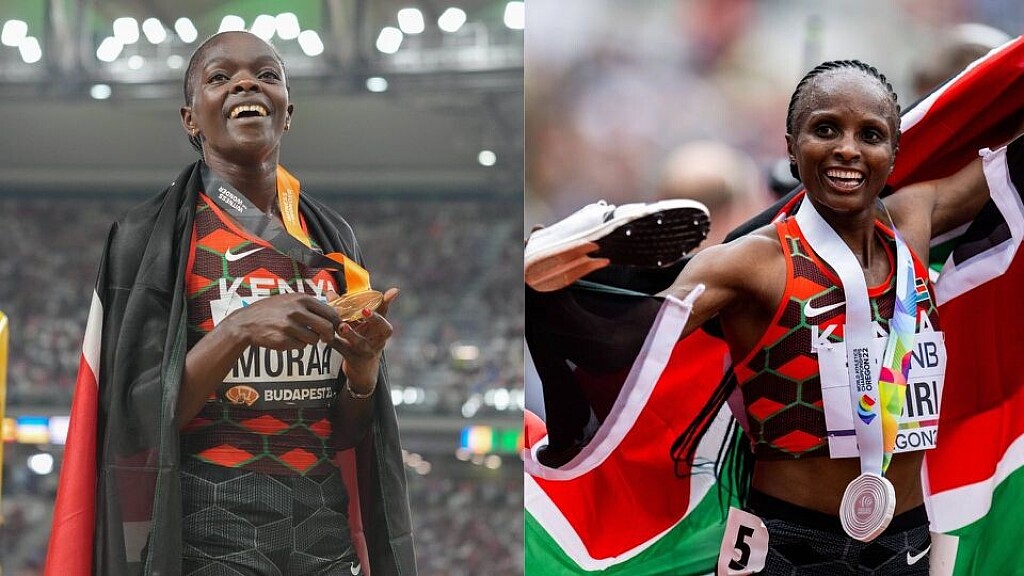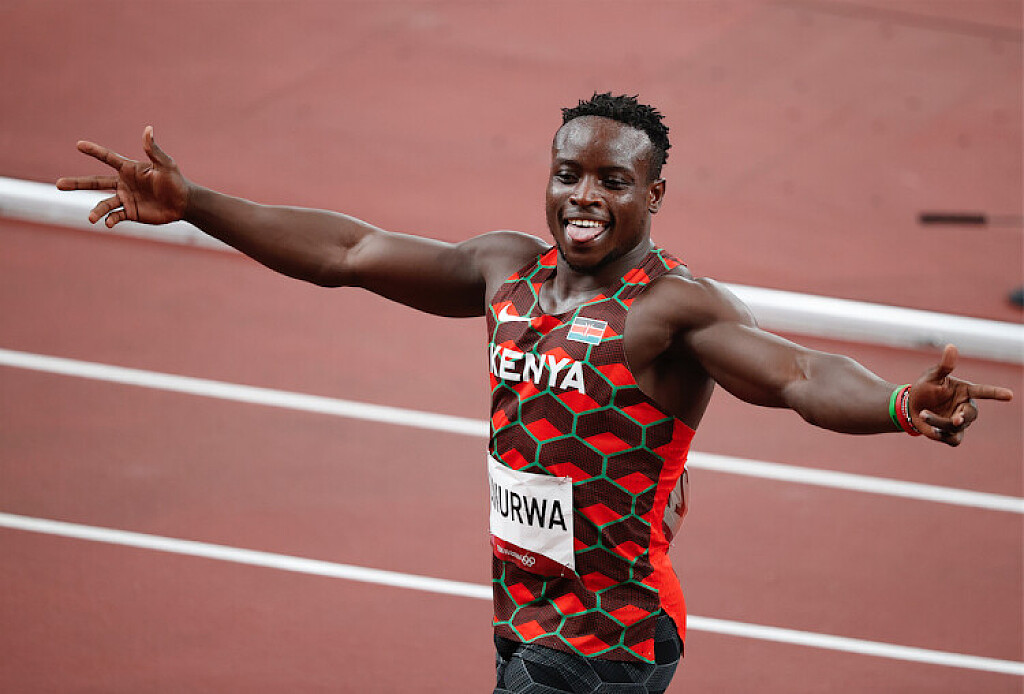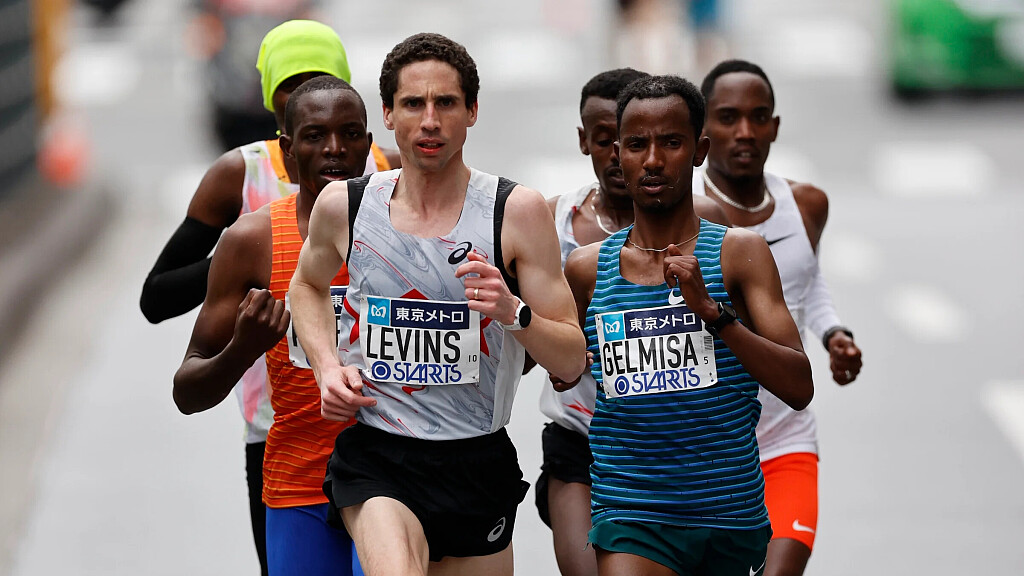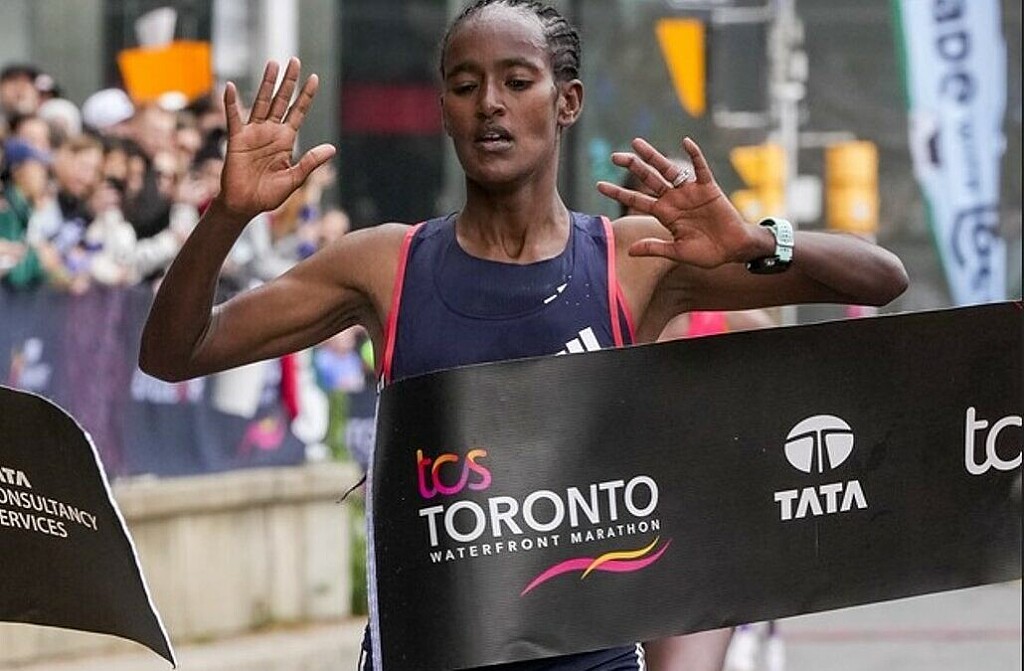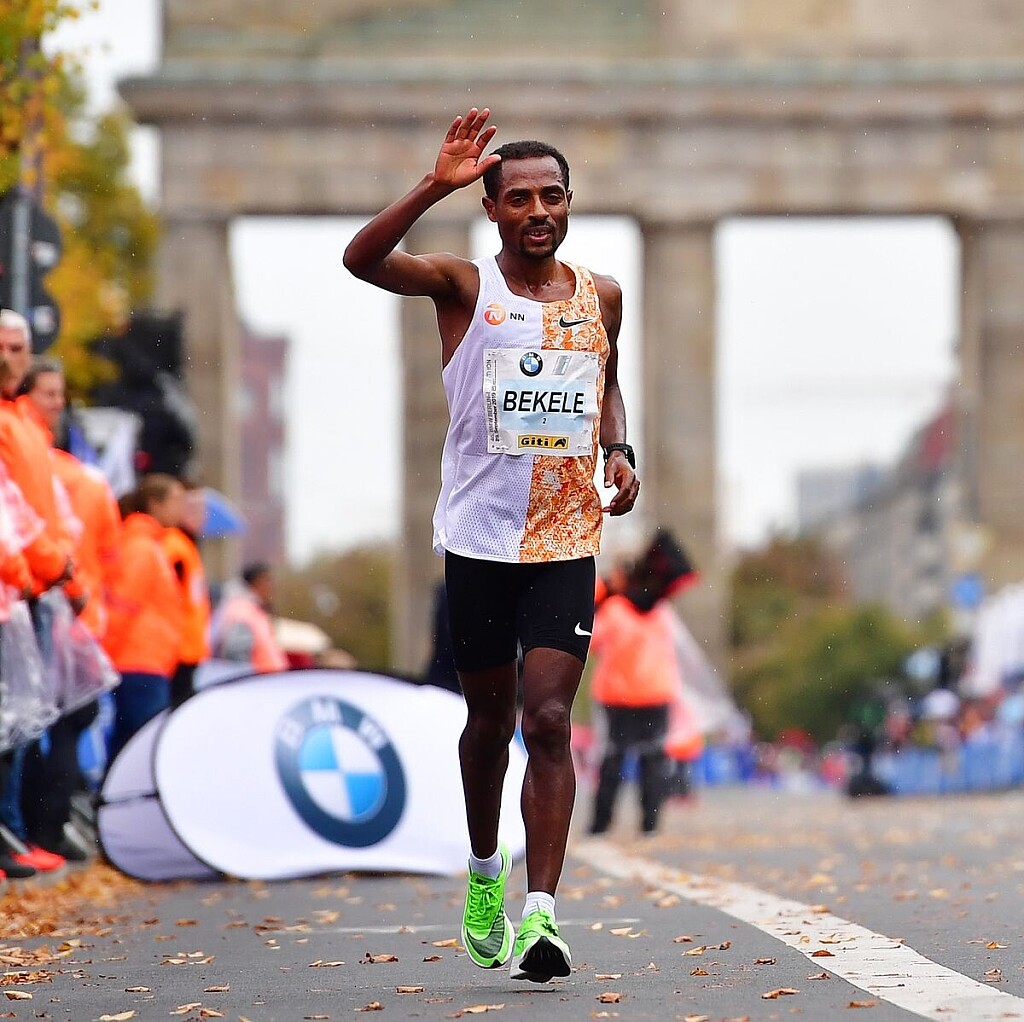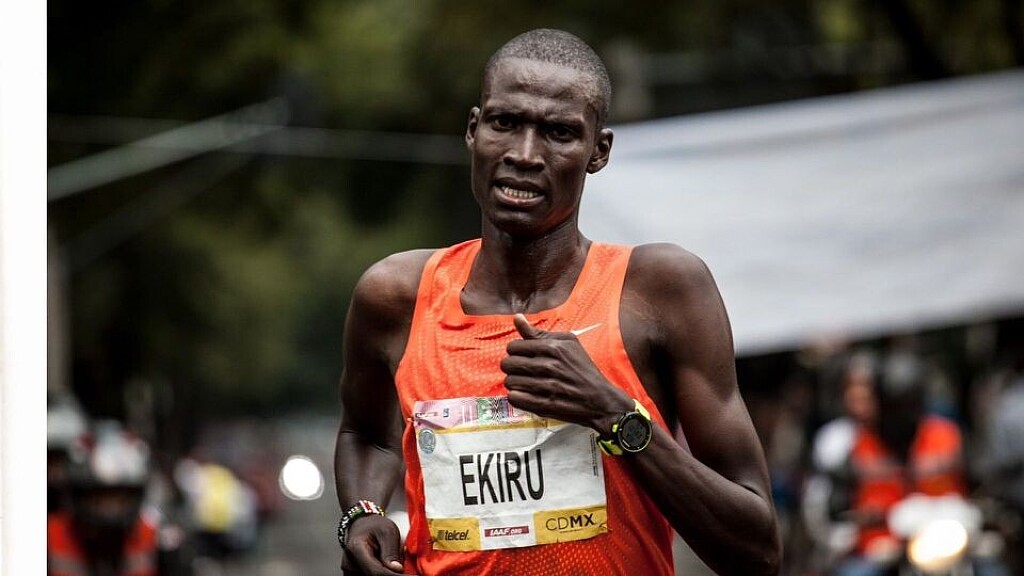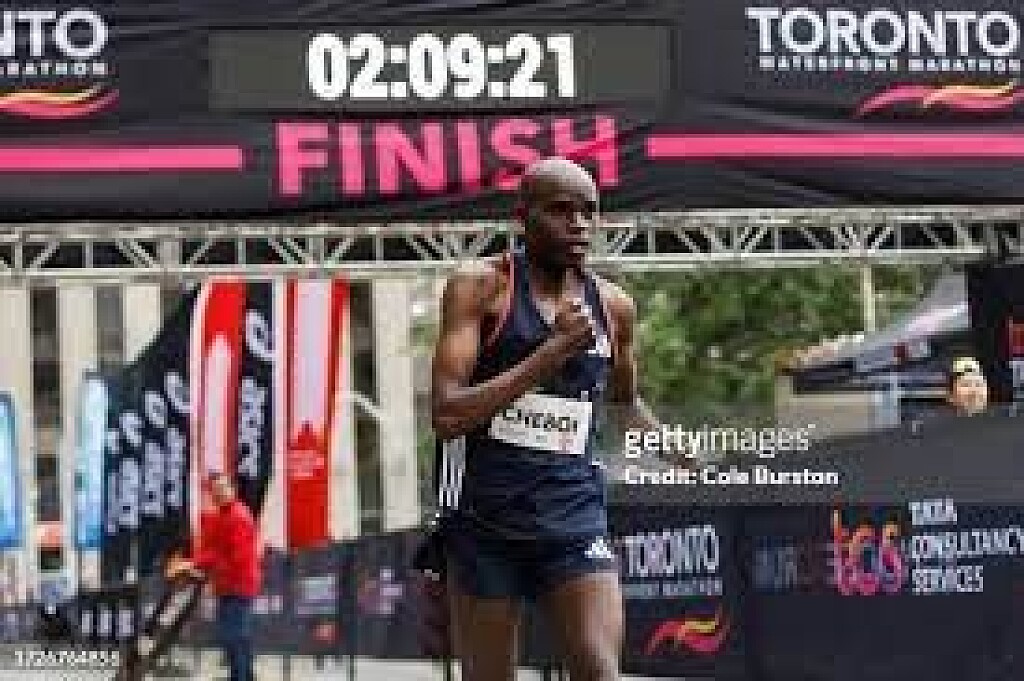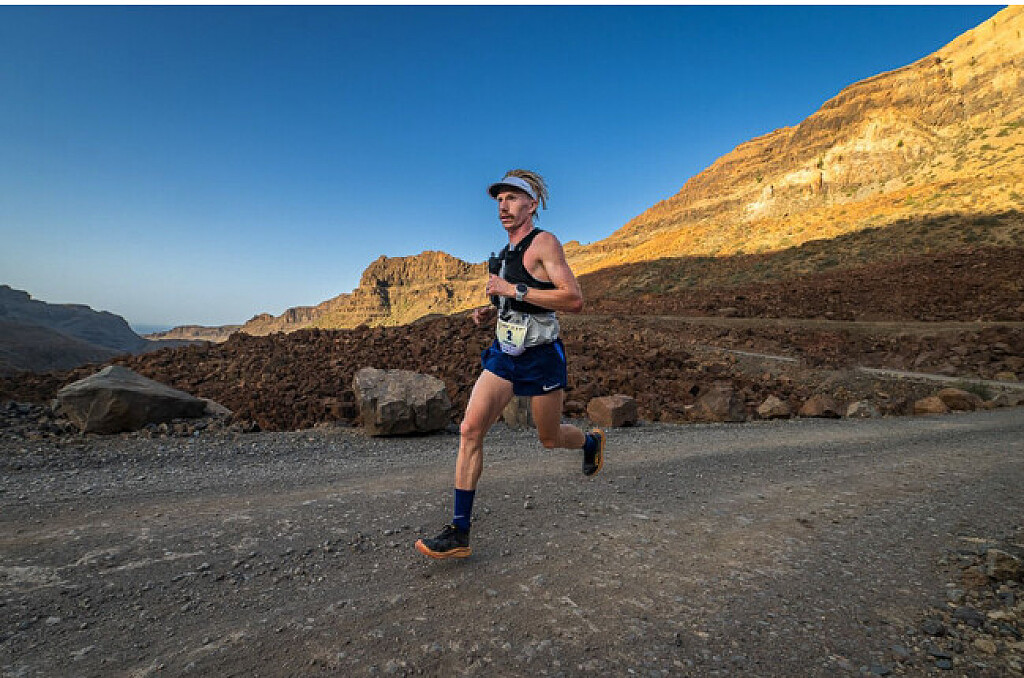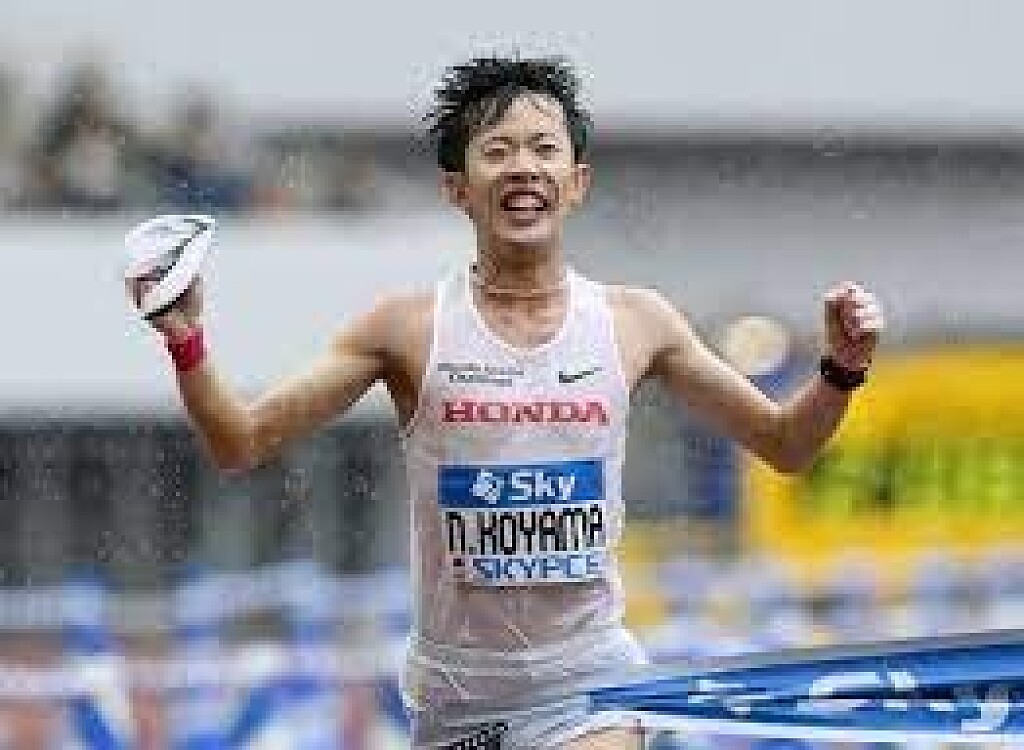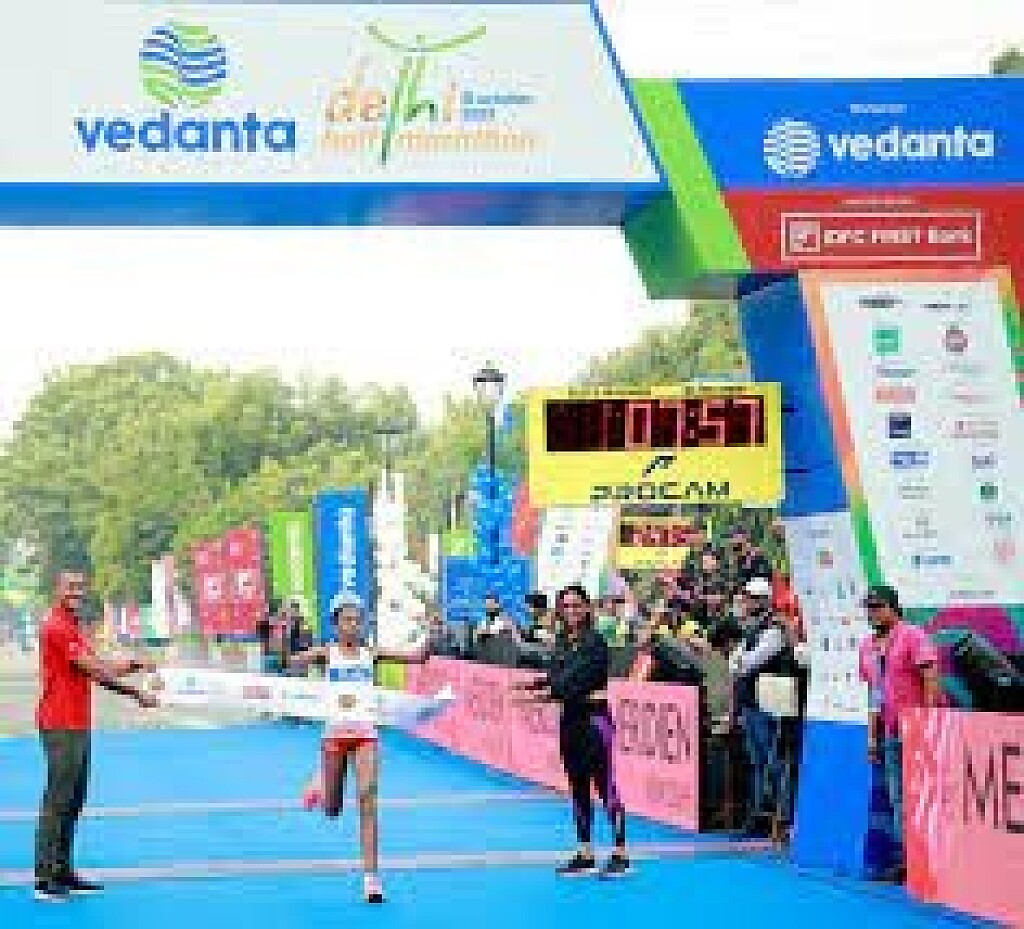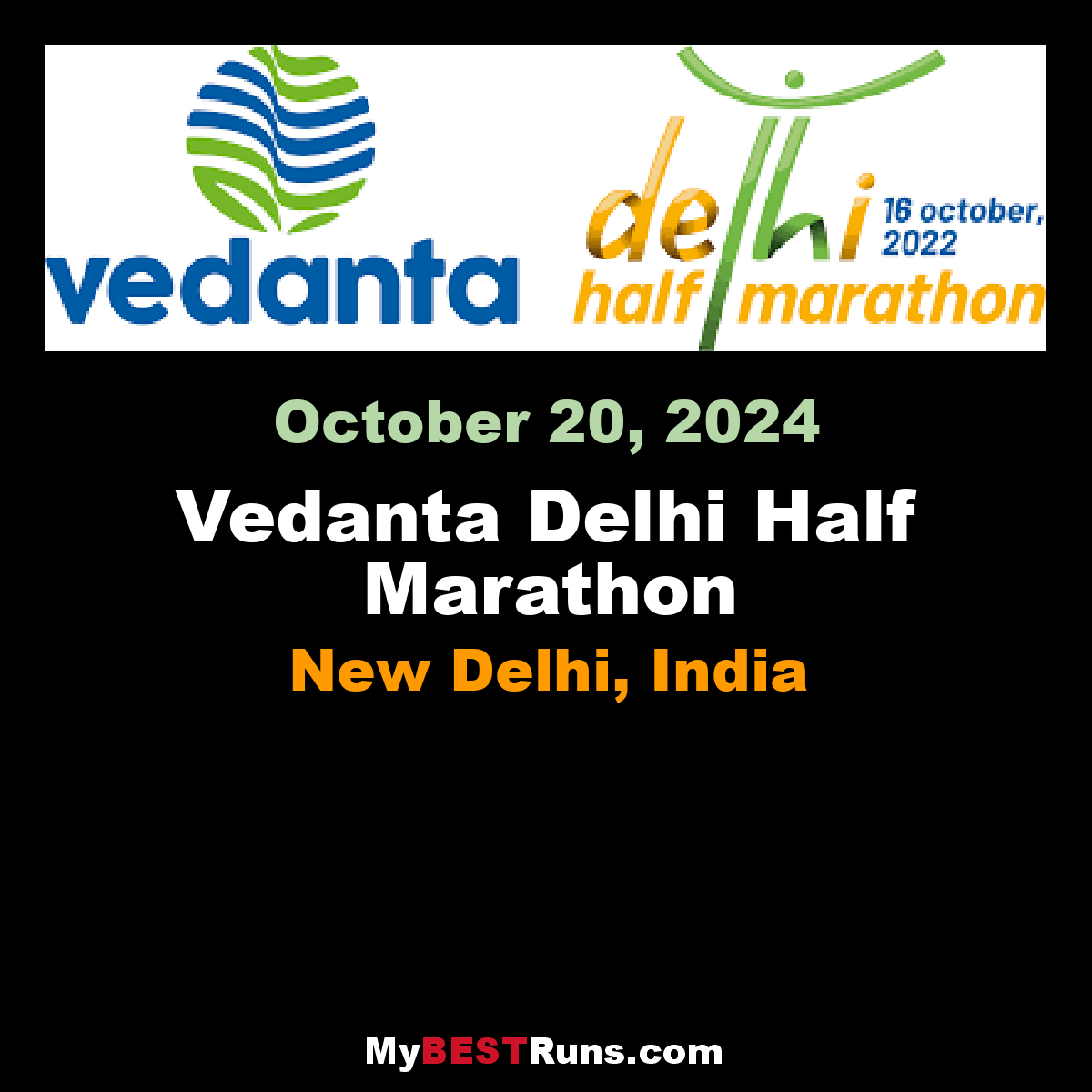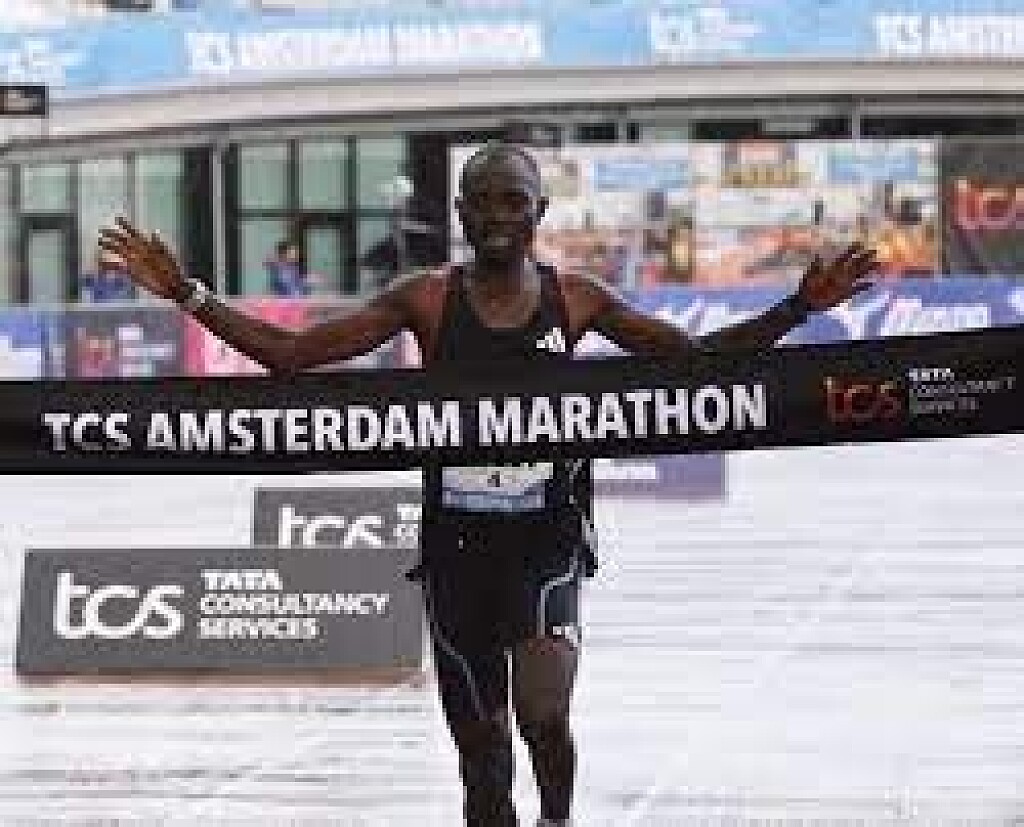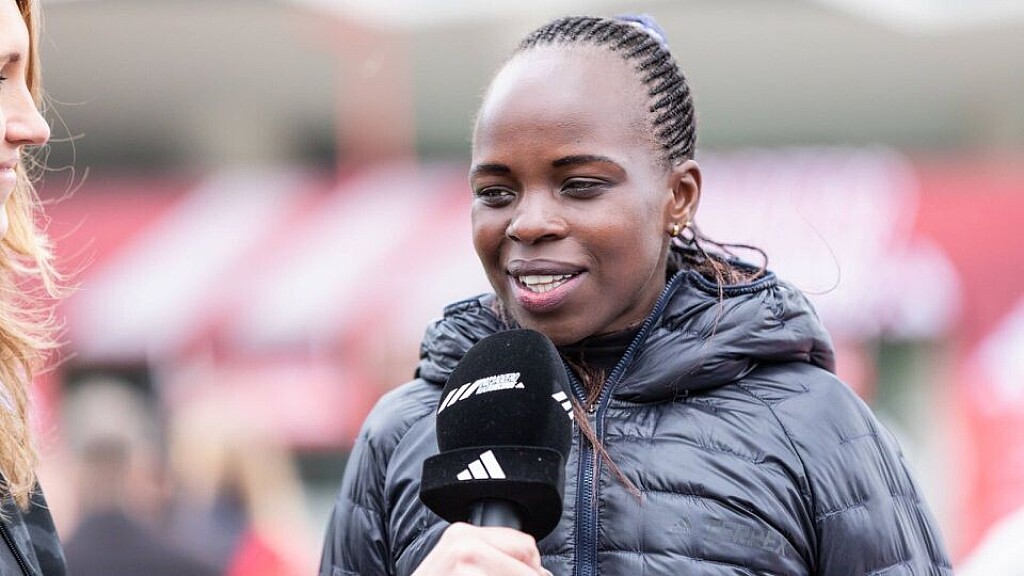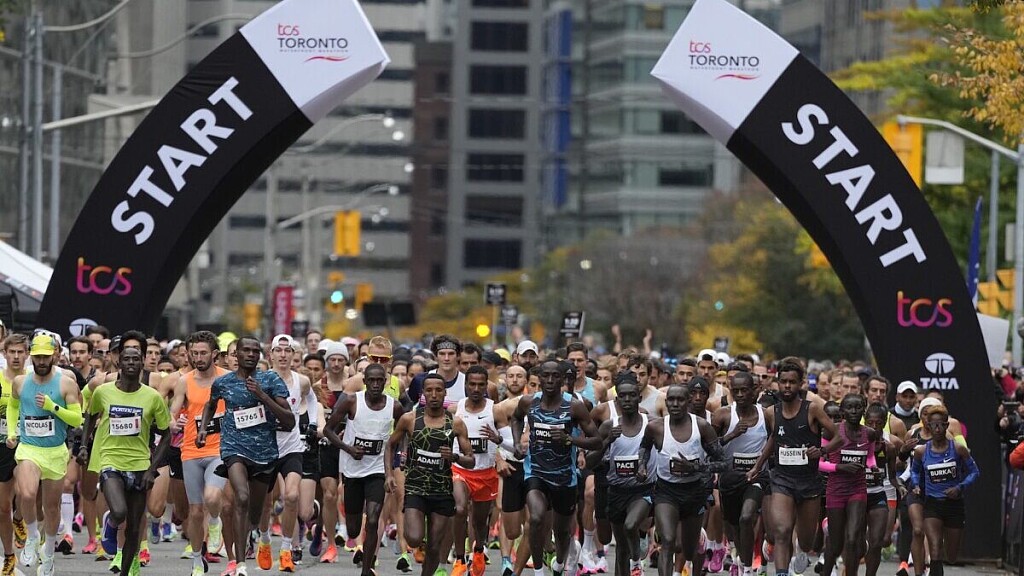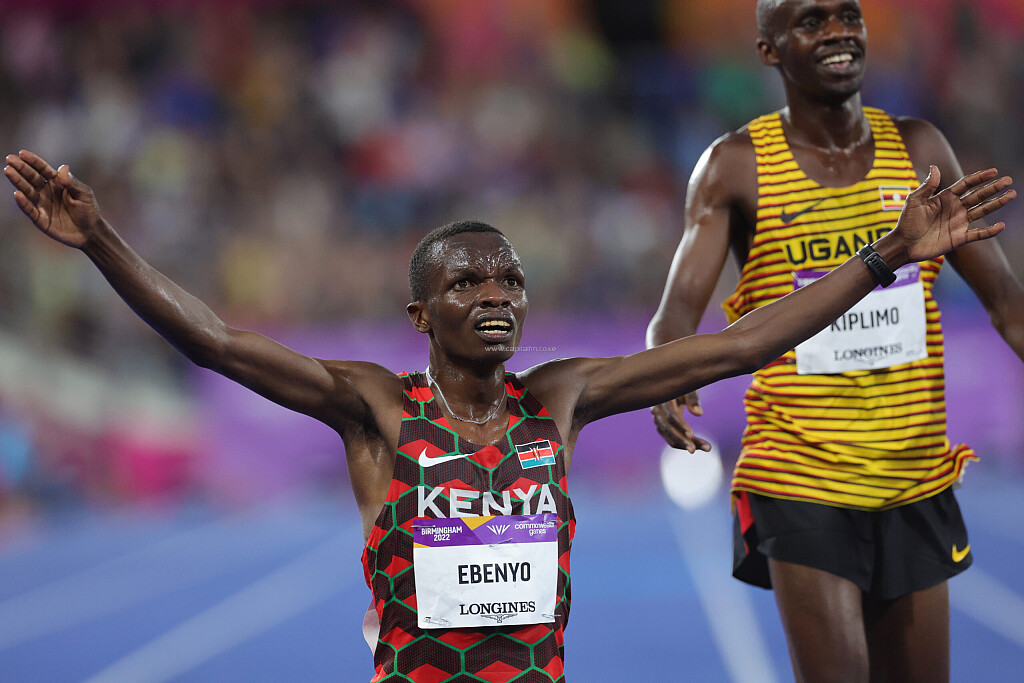Running News Daily
Running News Daily is edited by Bob Anderson in Mountain View, California USA and team in Thika Kenya, La Piedad Mexico, Bend Oregon, Chandler Arizona and Monforte da Beira Portugal. Send your news items to bob@mybestruns.com Advertising opportunities available. Over one million readers and growing. Train the Kenyan Way at KATA Running Retreat Kenya. (Kenyan Athletics Training Academy) in Thika Kenya. Opening in june 2024 KATA Running retreat Portugal. Learn more about Bob Anderson, MBR publisher and KATA director/owner, take a look at A Long Run the movie covering Bob's 50 race challenge.
Index to Daily Posts · Sign Up For Updates · Run The World Feed
Eliud Kipchoge finally comments on Kelvin Kiptum’s world record
For the past decade, Eliud Kipchoge has been a dominant force in the marathon, winning 14 out of the 17 races he’s participated in. The double Olympic champion and now former fastest man consistently set the standard for the distance, until Oct. 8. On that day, his Kenyan compatriot, Kelvin Kiptum, rewrote the history books by shattering Kipchoge’s world record at the 2023 Chicago Marathon.
While fans across the world marvelled at Kiptum’s new record of 2:00:35, Kipchoge remained silent. He did not publicly acknowledge it until two weeks after the race, during a press conference at the 2023 Princess of Asturias Award for Sports in Oviedo, Spain.
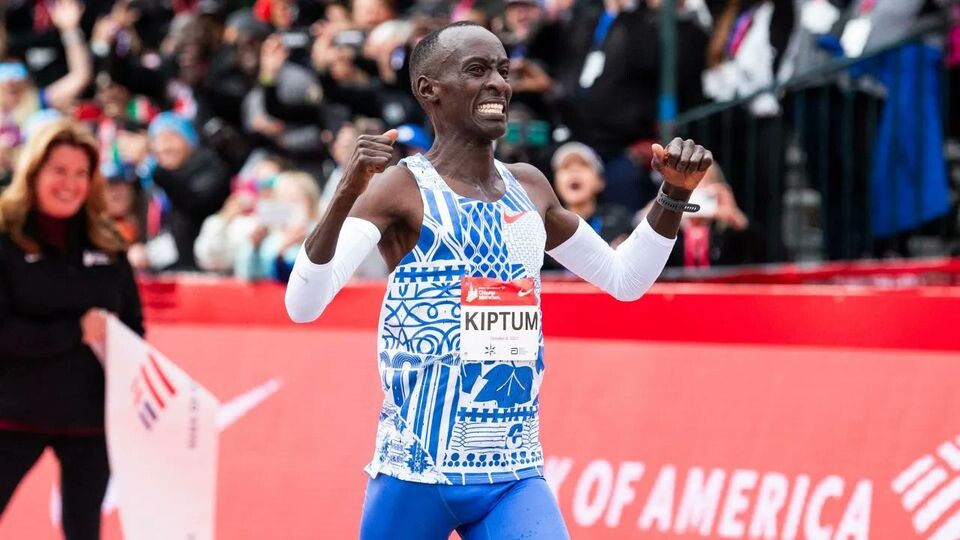
Kipchoge’s comments about Kiptum were in response to a reporter’s question after he received an award for his accomplishments as a runner and his remarkable contributions through his foundation, which focuses on promoting education and environmental protection.
“I was not surprised about (Kiptum) breaking the world record,” Kipchoge said. “I look forward to seeing records being broken because I have shown them the way.”
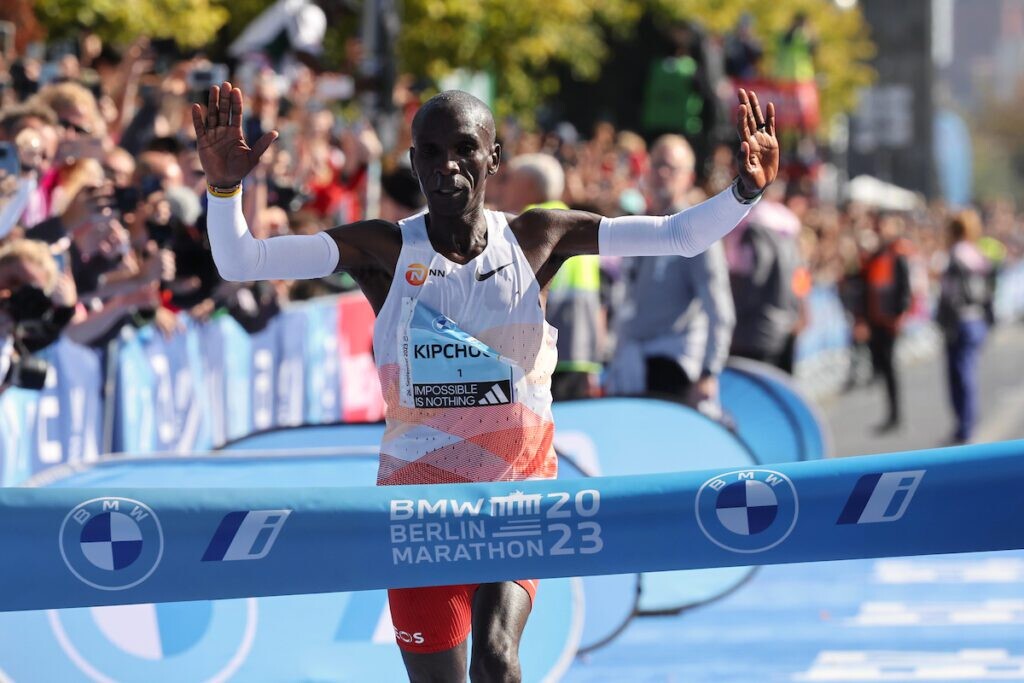
Kipchoge’s two-week silence and decision not to publicly congratulate Kiptum sparked heated discussions online, with some fans labelling the marathon legend as ‘unsportsmanlike.’ The 38-year-old also expressed his excitement about a potential showdown with Kiptum at the 2024 Paris Olympics. Kipchoge aims to become the first man to win three consecutive Olympic gold medals in the marathon event, while Kiptum hopes to win his first.
Kiptum, on the other hand, had high praise for Kipchoge after his record-breaking run in Chicago. “Of course, Eliud is the GOAT; he has achieved a lot, and we hold him in high regard, following his footsteps,” said Kiptum.
The new marathon world record holder will face a tough decision if he wants to race for Olympic gold or chase the world record at the 2024 Berlin Marathon, which is less than six weeks after the Olympic marathon in Paris.
Even though Kipchoge may no longer hold the marathon record, he remains determined to continue making history and inspire the next generation moving forward.
(10/24/2023) Views: 411 ⚡AMPby Marley Dickinson
How Peres Jepchirchir accidentally made her debut over the marathon
Olympic champion Peres Jepchirchir has narrated how she 'accidentally' made her marathon debut at the Kisumu Safaricom Marathon.
Reigning Olympic marathon champion Peres Jepchirchir never intended to make her debut in the marathon back in 2013 since she had just begun her professional career.
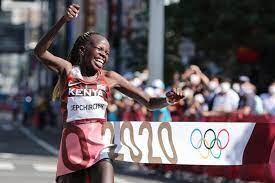
She had started off her professional career with 10km road races in South Africa and had performed pretty well for a newbie.
Jepchirchir, 20 at the time, jetted back to the country for her last race, a 10km road race in Kisumu, the Kisumu Safaricom Marathon but she was shocked on arrival.
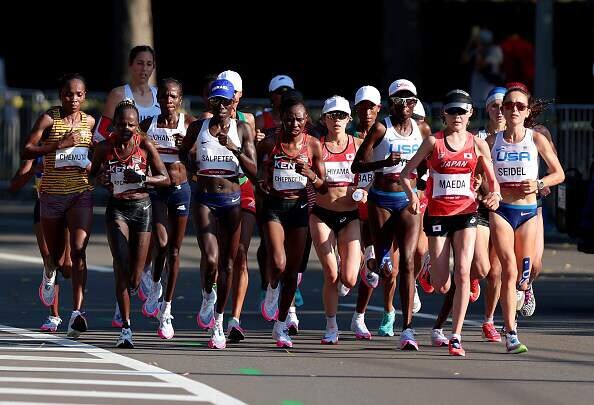
Speaking to World Athletics, Jepchirchir explained that when she got there, she was told the 10km road race was only for the residents of Kisumu and she had to run the marathon.
The former New York City Marathon champion did not disappoint despite being a newbie since she dominated and won the race in fashion. She clocked 2:47:33 to win the race.
“I was going there for the 10k and then I arrived and the 10k was only for people from that area. I remember it a lot because I ran that first marathon without any long runs,” she recalled.
After her triumph at the marathon back in 2013, Jepchirchir did not immediately start running the 42km distance since there was a lot she had to learn.
She became serious about the marathon in 2019 when she ran her second marathon, the Saitama International Marathon, where she won the race dominantly too.
Jepchirchir then went ahead and dominated the Valencia Marathon in 2020 before bagging the Olympic marathon and New York City marathon titles in 2021.
In 2022, she won the Boston Marathon in style and became the first woman to have won the Olympic, New York City, and Boston Marathon titles. After her Boston Marathon triumph, the now 30-year-old suffered an injury setback that saw her pull out of the New York City Marathon.
She opened her season this year with a third-place finish but has since insisted that she is injury-free and will be looking to dominate at the New York City Marathon.
“I was happy because I was able to train for only two months when I was preparing for London, so for me, I was happy because I was coming back," she said.
(10/24/2023) Views: 459 ⚡AMPby Abigael Wuafula
Pan American Games 2023: Peru's Cristhian Pacheco and Mexico's Citlali Cristian claim marathon titles in Santiago
The athletics programme kicked off with the men's and women's marathons in Santiago, Chile, with Peru winning their first gold medal at this year's Games.
Peru's Cristhian Pacheco retained the Pan American Games men's marathon title, while Citlali Cristian of Mexico secured the victory in the women's race at 2023 edition on the streets of Santiago, Chile on Sunday (October 22).
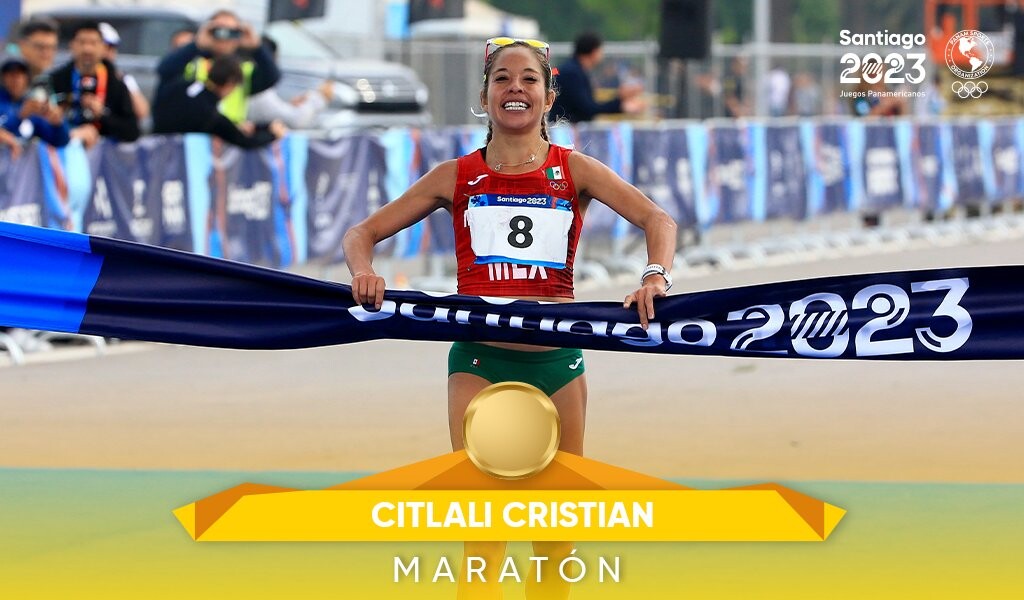
30-year-old Pacheco finished alone at the front in a time of 2:11:14.
His Pan American Games record from 2019 in Lima is 2:09:31.
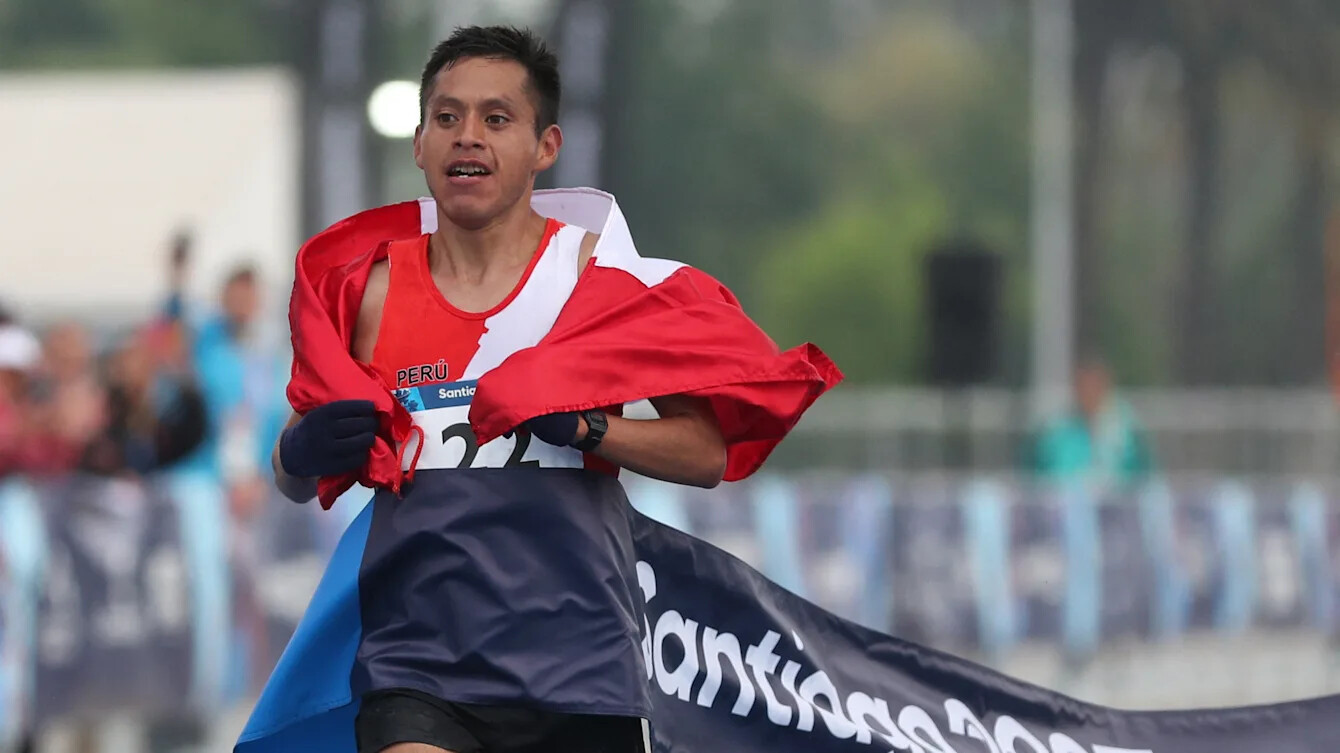
Home favorite Hugo Catrileo came away with silver in 2:12:07. Luis Ostos - also from Peru claimed bronze in 2:12:34.
In the women's race, Mexican Citlali Cristian powered home in 2:27:12, beating the previous Games record by more than three minutes.
Florencia Borelli of Argentina, who was alone in the lead until the last two kilometers, took silver, 17 seconds after the winner.
2019 Pan American Games champion Gladys Tejeda of Peru finished third in 2:30:39.
The track and field athletics events at the Julio Martínez National Stadium in Santiago, Chile start on October 30.
(10/24/2023) Views: 364 ⚡AMPPan American Games
The Pan American Games (also known colloquially as the Pan Am Games) is a continental multi-sport event in the Americas featuring summer sports, in which thousands of athletes participate in a variety of competitions. The competition is held among athletes from nations of the Americas, every four years in the year before the Summer Olympic Games. It is the second...
more...Ngetich vows to break the world 10km record again if not ratified
World cross-country bronze medallist Agnes Ngetich has vowed to set another record if her current world 10km record is not ratified by the World Athletics.
Speaking in Kapsokwony after winning the 10km senior women's title in the second leg of the Athletics Kenya (AK) cross-country meeting at the Kapsokwony High School ground in Bungoma County, Ngetich said it was not her blunder that the course was short.
“If my world record will not be ratified, I still have time to set another one because I did not create the mess that happened on the course,” said the two-time East Africa under-20 champion.
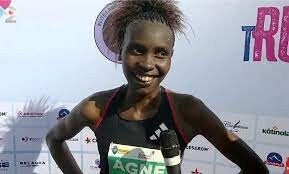
She said even if the course was 25 meters less, she could have either set her personal best or even broken the world record. “I had a chance to go ahead and set the world record because I was not only also in great shape but determined to make history," she noted.
"Even with the addition of the 25 meters, I believe I would have comfortably run 30:00 minutes. All the same, I still have time on my side and I will do it again," she insisted.
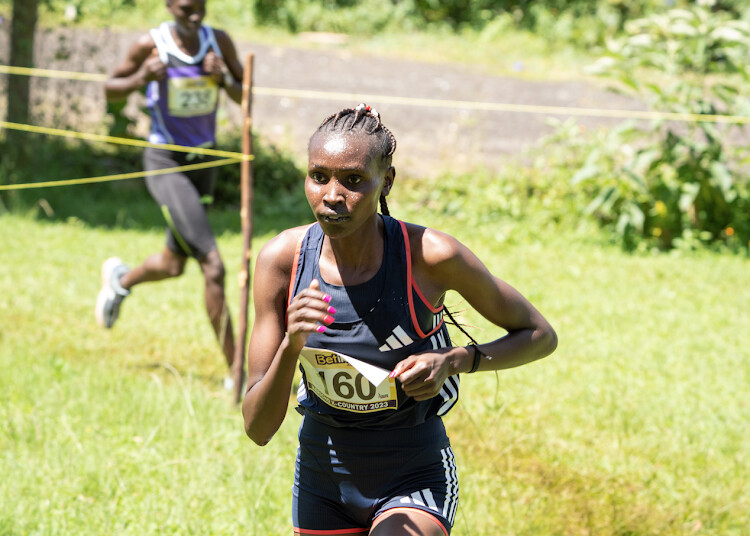
Ngetich broke the women-only world 10km record in the Transylvania 10km in Brasov, Romania, last month after posting 29:24 to surpass the initial time of 30:01 set by the late Agnes Tirop in Herzogenaurach, Germany in 2021.
Meanwhile, former athlete Tegla Sang has welcomed the move by the government to change the name of Kericho Green Stadium to Wilson Kipkurugut Chumo Stadium.
During the Mashujaa Day celebrations held in Kericho County, President William Ruto announced that the facility will now be known as the Kipkurgut Chumo Stadium.
The move is aimed at celebrating the first Kenyan to win an Olympic medal—the 800m bronze —during the 1964 Olympic Games in Tokyo, Japan.
"Allow me to celebrate Kiprugut Chumo, the first Kenyan to win an Olympic medal by renaming the Kericho Green Stadium in his name," he noted.
Sang, a former All Africa Games 400m champion, said the government is doing a good thing to support the legends who brought fame to the country.
“This is a good move to celebrate legends that brought fame to the nation,” said Sang, the first Kenyan to compete for the country at the 1968 Olympic Games in Mexico City, Mexico.
The late Chumo, who was the first Kenyan to win an Olympic medal for the country, died last year aged 84.
Sang said as much as the government's move is good, it's long overdue. " We don't have to wait for some athletes to die to recognize them," she noted.
She said the government should also offer monetary awards to retired athletes because they did not earn much during their time.
“Majority of former athletes did not earn any money from running, unlike the current athletes. With the government handing goodies to any medal winner, they should always remember those who laid that foundation,” she said.
She added that medical insurance for retired athletes would go a long way in cushioning them during their current old age.
Sang cited Nyantika Maiyoro, Amos Biwott, Kipchoge Keino, the late Naftali Temo, Naftali Bon, Ben Jipcho, Lydia Stephens, Elizabeth Jemeli Chesire, Hezekiah Nyamau, and Charles Asati as other deserving cases in as far as recognition and awards is concerned.
(10/24/2023) Views: 373 ⚡AMPby Emmanuel Sabuni
2023 Poznan Marathon with another record
Petro Mamu Shaku from Eritrea and Tseginesh Mekonnin Legesse from Ethiopia won the 22. Poznan Marathon. The Eritrean was the first competitor in the history of the Poznań run who broke the barrier of two hours and ten minutes, setting a record for the event (2:09:57).
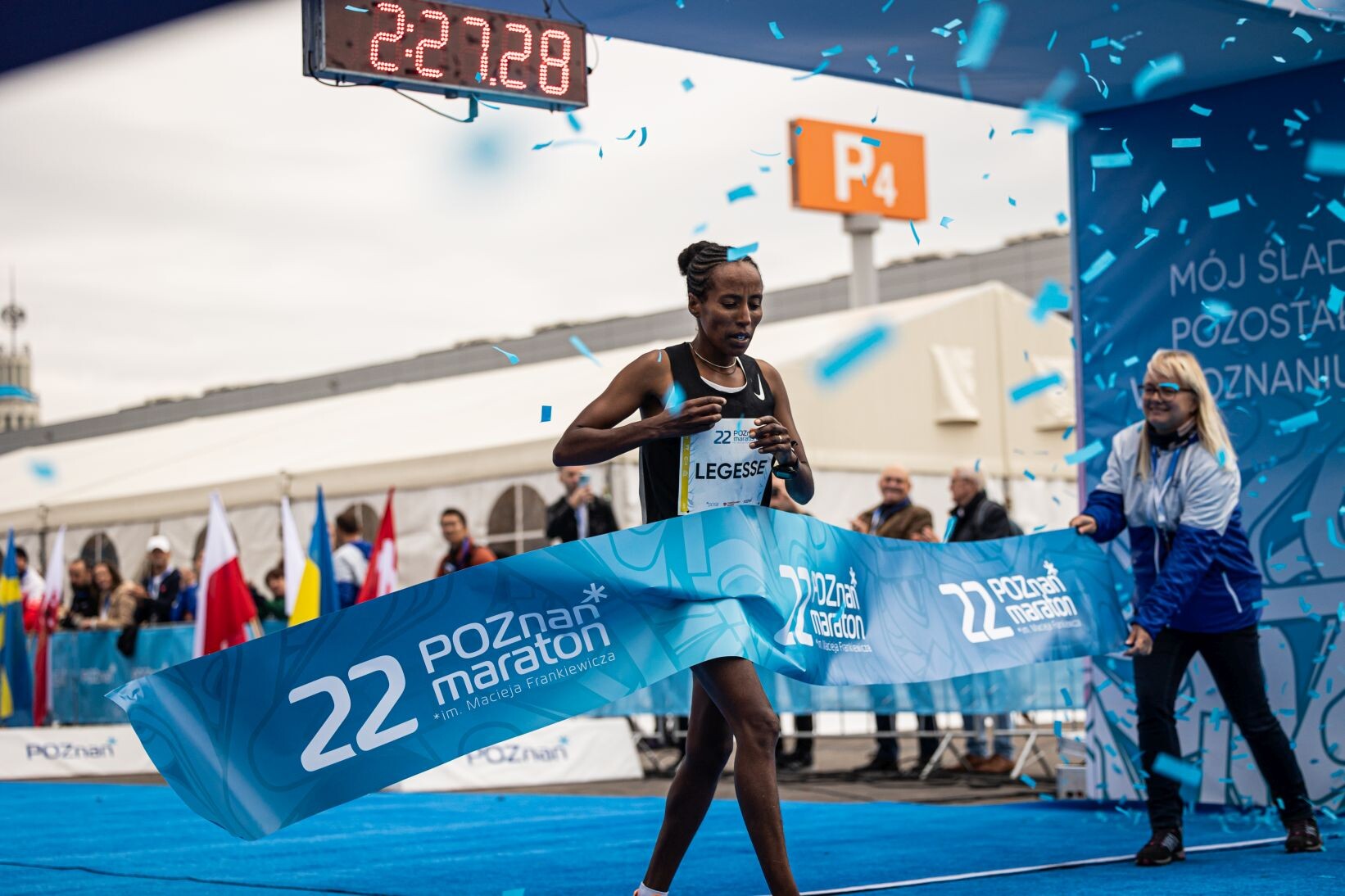
The fight for victory took place in the final meters. The second at the finish line, Ethiopian Tolla Mesfin Nigusu, was only a second slower than the triumphant runner. The order in the men’s PZLA Polish Championships was also decided on the blue carpet before the finish line. The title of Polish Champion goes to Adam Nowicki.
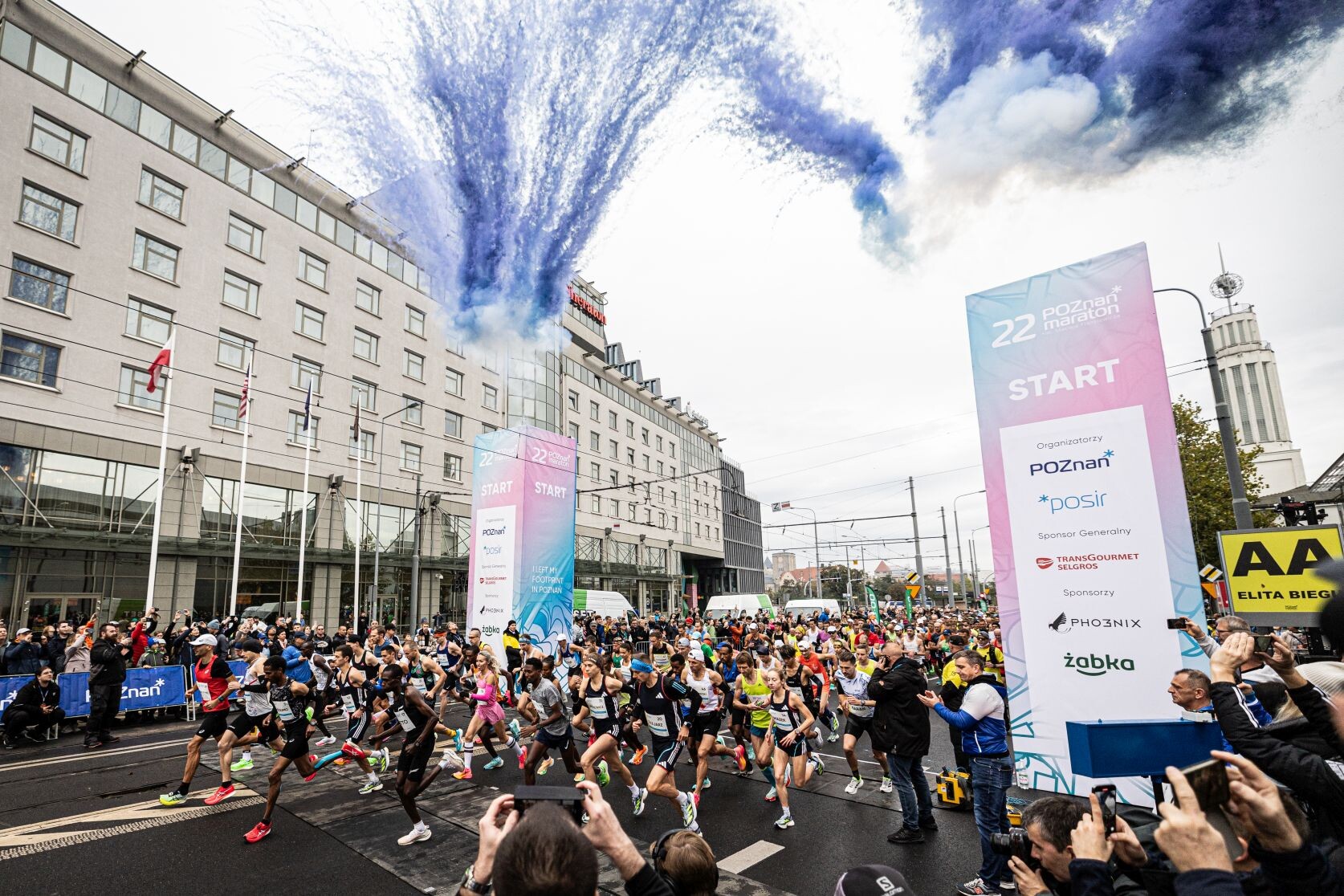
The first woman at the finish line, Ethiopian Legesse (2:27:28) very quickly left her rivals behind and ran more than half of the route only accompanied by a pacemaker. The second step of the podium belonged to her compatriot Birtukan Workineh Belay. Monika Jackiewicz’s third place gave her the title of Polish Champion.
A total of 4,100 athletes completed the 22. Poznan Marathon. They represented 35 countries. We would like to thank the runners for the fantastic atmosphere, numerous participation in the event and great results. Warm thanks are also due to the sponsors for their support and the fans for their wonderful cheering. We hope to see you in future editions!
(10/23/2023) Views: 367 ⚡AMPPoznan Marathon
The Poznan Marathon is an annual road-based marathon hosted by Poznan, Poland, since 2000. It was categorized as a Bronze Label Road Race by the International Association of Athletics Federations and is a member of the Association of International Marathons and Distance Races. The marathon is one of five in the Crown of Polish Marathons program, along with the Debno...
more...Kenyan-born Turkish athlete Yasemin Can reveals reason behind switching allegiance
Yasemin Can has explained the reason behind her changing nationalities from representing Kenya to donning the Turkish jersey.
Kenyan-born Turkish long-distance runner Yasemin Can has disclosed why she decided to switch her allegiance and grow her athletics career.
Can, formerly known as Vivian Jemutai, represented Kenya before March 13, 2016, when she became eligible to feature for Turkey.
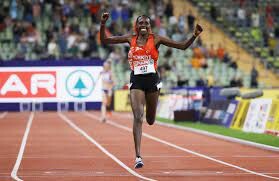
Speaking to Nation, Can explained that she made the decision to switch allegiance because there were many athletes in Kenya and she realised that it would be tough for her to make it.
“I decided to run for another country because we are very many in Kenya. So, I decided to compete for Turkey because I knew it would be easier for me to make it there…I wanted to improve my life,” she said.
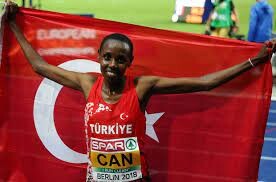
She added that being on the starting line and competing with Kenyans is a bit of a challenge for her but she explained that she has no option but to just live with that.
“I feel like I’m on the right track. However, competing with Kenyans is a bit of a challenge because we train together and we have some fear in us,” she said.
She currently spends most of her time in Kenya but she noted that she will definitely relocate fully to Turkey upon her retirement.
Meanwhile, in her years of representing Turkey, she has been able to achieve great milestones. She is the reigning 10,000m European champion and she is also a six-time European Championship medallist, including three gold medals and the 5,000m/10,000m double in 2016, and a four-time European Cross-Country champion.
She is the current Turkish record holder for the half marathon, and the Turkish indoor record holder for the 3,000m.
(10/23/2023) Views: 345 ⚡AMP
by Abigael Wuafula
Rebecca Tanui outwits Ethiopian duo in 37th Venice Marathon
Kenyan athlete Rebecca Tanui emerged victorious in the 37th edition of the Venice Marathon, held on a Sunday.
During the race, Tanui and Ethiopian runner Kebene Chala ran together and reached the halfway point in an impressive time of 1 hour, 11 minutes, and 37 seconds.
Rebecca Tanui breaks away
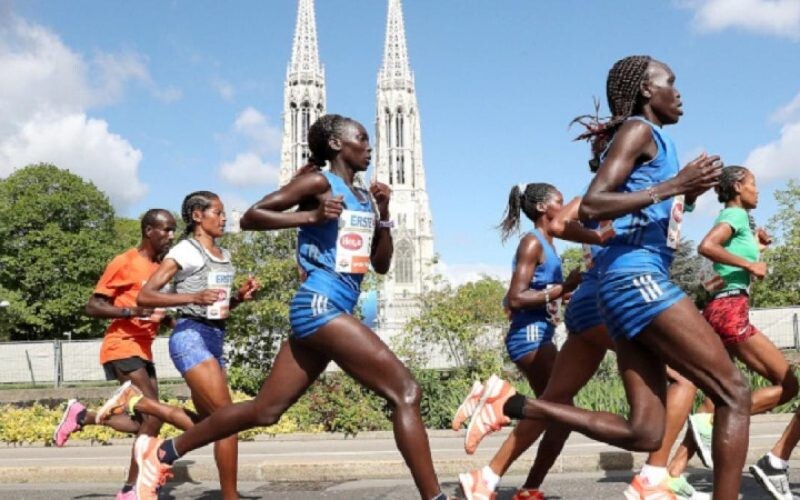
Around the 30th kilometer mark, Tanui launched an attack, pulling ahead and continuing to race solo until reaching the finish line at Riva Sette Martiri.
She completed the marathon in an excellent time of 2 hours, 25 minutes, and 35 seconds.
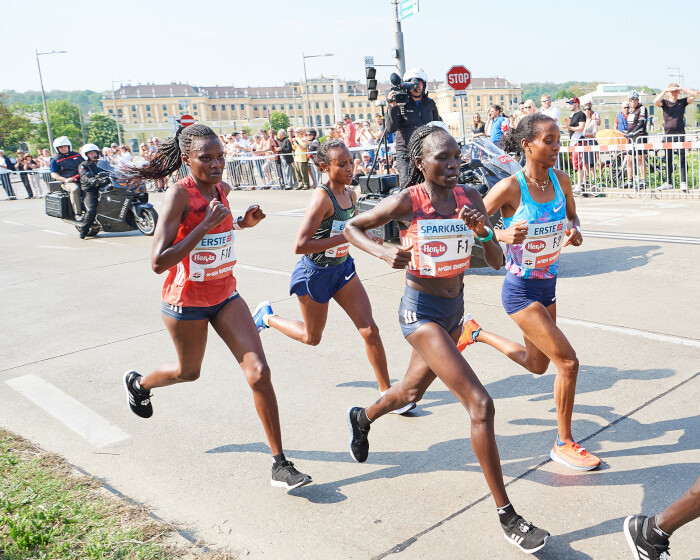
In second place was Chala, who finished with a time of 2 hours and 26 minutes, 38 seconds, significantly improving her personal best by more than 4 minutes.
The third-place finisher was another Ethiopian, Bedada Tigist, who also achieved a personal best with a time of 2 hours and 28 minutes, 6 seconds.
The first Italian athlete to cross the finish line was Giorgia Bonci, representing Gs Lamone, who secured the eleventh position with a time of 3 hours and 11 minutes, 17 seconds.
About Venice Marathon
The Venice Marathon was initially conceived by Piero Rosa Salva in 1986. The inaugural edition of the marathon attracted over 2,000 runners from various nations and was quickly established as one of the season's most significant events. Over the years, it evolved into one of the premier sporting events, culminating in the 37th edition.
The Venice Marathon is recognized internationally and holds the IAAF Bronze Label. The classic distance for this marathon is 42.195 kilometers, making it one of the most revered events in the field of athletics.
Today, the Venice Marathon remains an event of exceptional quality, as reflected in its IAAF Bronze Label. It continues to captivate and draw runners, with demand consistently surpassing the organizer's limit of 8,000 entries. The marathon expo and the race itself attract large crowds, following a captivating course.
(10/23/2023) Views: 447 ⚡AMPby Amanga Collins
Venice Marathon
The Venice Marathon is one of the most beautiful marathons known for the historical, artistic and picturesque surrounding in which it takes place. It starts in Stra, a small village located at about 25 km west of Venice, at the beginning of the Riviera del Brenta, a beautiful area near the River Brenta, where the rich and noble Venetians built...
more...15-minute workouts for when you have no time
Even the most experienced, organized runners get hit by unexpected life events. While it’s always fine to miss workouts here and there when you can’t avoid it, as days of canceled training runs add up, a solid training build can easily be derailed, leaving runners discouraged as they go without their daily physical and mental boost.
Keep these quick, efficient workouts in your back pocket for busy times, since 15 minutes a day is still much better for your health, your training and your longevity than none.Quick fartlek session
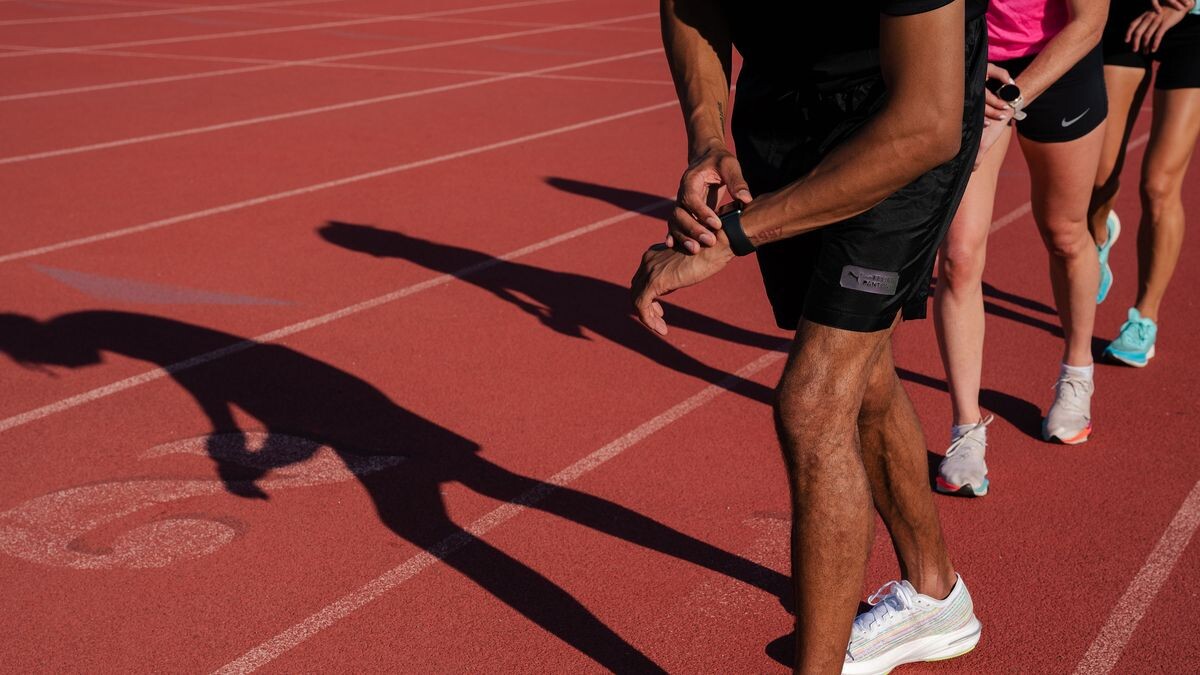
Fartlek (a Swedish word meaning “speed play”) is a run with no predefined pace or intensity. Adjust your run according to how you’re feeling, while making sure to really vary your speed.
Warm up with five minutes of easy running.

Run for nine minutes, playing with pace and intensity. Try choosing something in the distance to sprint to, followed by an easy jog for several minutes to recover, and then run at a medium-hard pace for several minutes, etc.
Cool down with three minutes of easy running.
Sprint workout with increasing effort
Warm up with three minutes of easy running.
Run for 1:30 at around 70 per cent of max effort (a hard effort, but one where you can still breathe without discomfort and aren’t straining).
Pick up the pace for the next 1:30 at around 80 per cent of max effort (breathing should be slightly harder and challenging).
Sprint workout with increasing effort
Warm up with three minutes of easy running.
Run for 1:30 at around 70 per cent of max effort (a hard effort, but one where you can still breathe without discomfort and aren’t straining).
Pick up the pace for the next 1:30 at around 80 per cent of max effort (breathing should be slightly harder and challenging).
Short and not-so-sweet intervals
The 30 seconds of running in each interval should be done at a very high intensity that makes breathing feel challenging.
Warm up with five minutes of easy running.
6 x 30 seconds intense (at an effort that feels very hard without being a full-out sprint) with 30 seconds of walking to recover in between.
Cool down with five minutes of easy running.
Have a little more time? Use the cool-down minutes as recovery, and repeat the more challenging part of the workout. While these short sessions aren’t a replacement for your regular training if you have a goal race or distance in mind, they’ll tide you over until you can pick things back up.
(10/23/2023) Views: 341 ⚡AMPby Keeley Milne
Toronto running quintet sets Guinness World Record in TTC streetcar costume
There were more than 20 Guinness World Record attempts at the 2023 TCS Toronto Waterfront Marathon on Sunday, but one of the most unique records among them was achieved by a group of Toronto runners who dressed up as a Toronto Transit Commission (TTC) streetcar and set the record for the fastest half-marathon in a five-person costume. They completed the race in 1:48:59.
The quintet, consisting of Dekel Chui, Tom Brooks, Andrew Bondoc, Derek Beaton and Jared Nylander, all members of Toronto’s runTObeer run club, crafted their five-person costume from reusable grocery bags, cardboard and blinds from Ikea. They set out to beat the previous record of one hour and 59 minutes, and to their surprise, they achieved their goal by finishing more than 10 minutes ahead of the previous record.
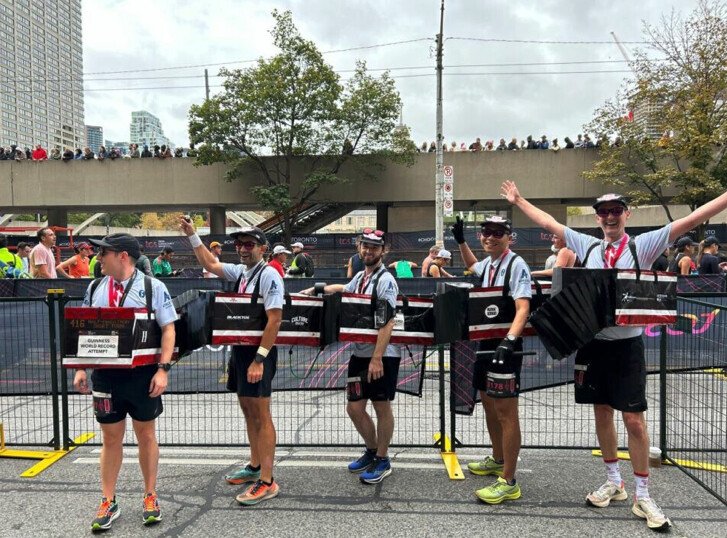
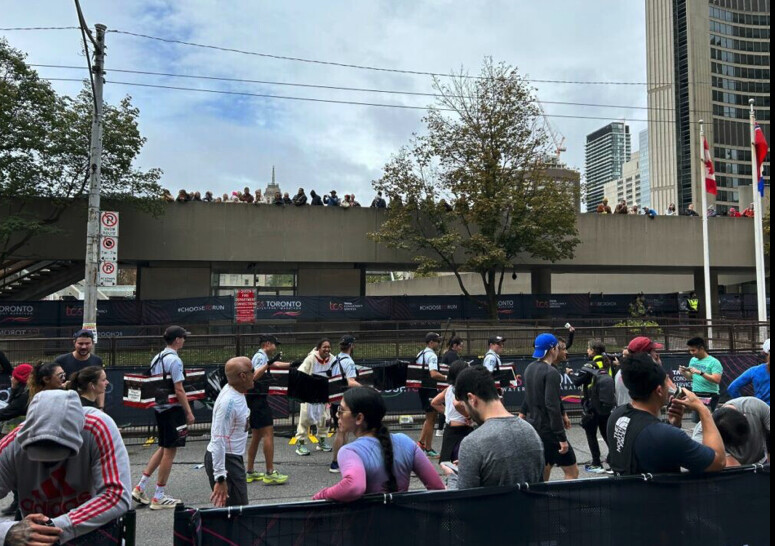
The idea for this unique project came from Brooks, who had previously set a Guinness World Record for running a 100-miler in a penguin costume for charity. Chui said, “He brought the group costume idea to us, and we wanted to pay homage to the city that we know and love. We ended up picking the TTC streetcar.”
Chui and Brooks said in a post-race interview that the five of them did not practise in the costume before race day, relying on “a few warmup kilometres” as their preparation.
Setting a Guinness World Record was not the only achievement the quintet aimed for. They aimed to raise over $1,000 for a local cat rescue shelter in Toronto’s Annex community. Brooks shared, “As a team, we have three rescue cats, one coming from Annex Cat Rescue. They do fantastic work in our community, and we hope we can inspire others to support them.” Currently, they have raised more than $1,300 and counting.
“Toronto man runs entire subway system in cool challenge” — Canadian Running Magazine
The five-person costume half-marathon record was one of 11 Guinness World Records set at the 2023 TCS Toronto Waterfront Marathon.
Experience the 2023 TCS Toronto Waterfront Marathon live from downtown Toronto on Oct. 15. Get the latest race news, updates and live results from Canadian Running with the support of ASICS Canada. Follow us on Twitter and Instagram for all the action.
(10/22/2023) Views: 383 ⚡AMPby Running Magazine
Calgary woman distraught after F-word engraved on marathon medal
A marathon medal represents months of dedication, perseverance and the sense of personal accomplishment that comes from completing 42.2 gruelling kilometres. Adorchita Di Perno of Calgary felt that way about her 2023 Chicago Marathon medal, until she saw that the expletive “F***” had been engraved onto the back of it.
Di Perno had just finished her 22nd marathon in 3:34:29, achieving a Boston-qualifying time. She was able to get 2018 Boston Marathon champion Des Linden to sign the back of her medal and, for the first time, decided to get it engraved. After the race, she dropped it off at the U.S. running chain Fleet Feet Chicago, where she wrote down her name, phone number and bib information for the engraving.
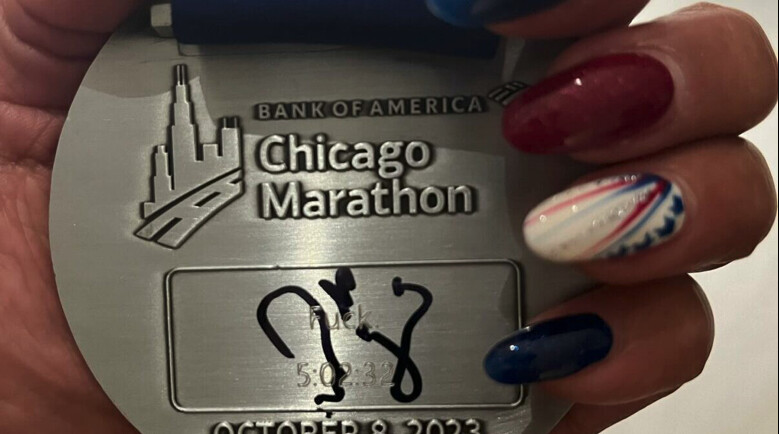
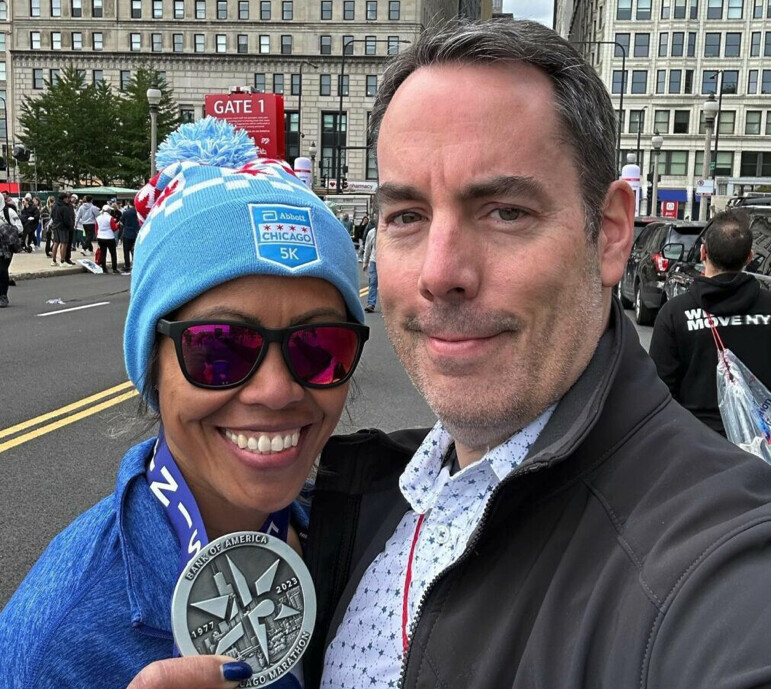
After waiting a few hours, Di Perno arrived back at the store to collect her medal. She wasn’t wearing her glasses at the time, but immediately noticed that it had the wrong time (5:02:32). Then, when she put on her glasses, her heart stopped as she read the profanity engraved onto the medal.
“This is my medal, but this is not my time or name,” says Di Perno. “And I did not ask for the F-word.”
Di Perno immediately spoke to store management, and after much confusion, they apologized for the mistake, giving her the option of a new, untarnished medal. “I did not want to give it up, because I ran for it and earned it,” says Di Perno.
Later that day, staff at the store figured out that Di Perno, whose bib number was 5773, had dropped off her medal at the store at around the same time as another runner, with a bib number 57731, dropped off her own medal, and the engravers got the two customers confused.
We reached the other runner, who told us, “I was supposed to get my medal back on Oct. 12,” and who confirmed that they requested the F-word be engraved on her medal, but declined to say why. “I haven’t heard from [Fleet Feet] and did not know [my medal] was given to someone else,” they said.
When Canadian Running showed them a photo of the medal, they were unhappy about the black marker on it, not realizing it was Linden’s signature.
Looking back on the mishap, Di Perno says she was upset at the time, but now, it’s hard not to laugh about it.
The Calgarian hopes to one day become an Abbott World Marathon Major six-star finisher, and is waiting to hear whether she’s been selected to race the Tokyo Marathon in 2024.
(10/22/2023) Views: 438 ⚡AMPby Running Magazine
The Best Methods for Treating Your Tight Calves
Surprise: You don’t need to do a ton of stretches.
Most runners are familiar with the sensation of tight calves—that achy, stiff feeling that lingers in the back of your lower leg any time you take a step.
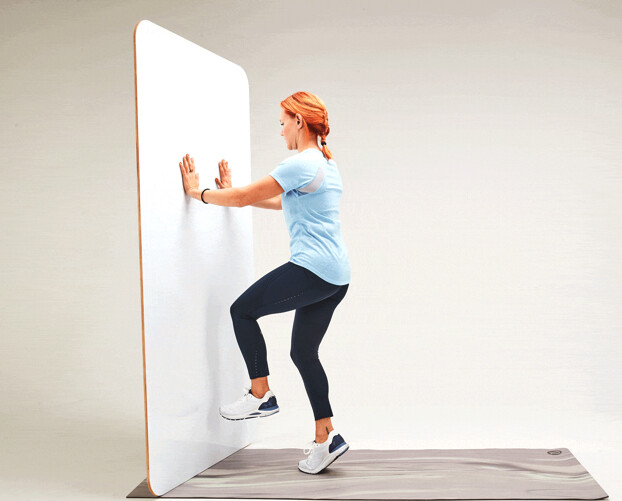
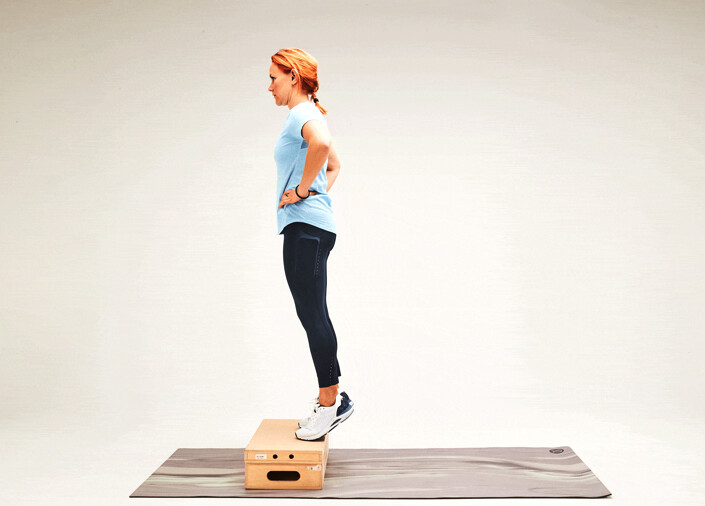
“The feeling of tight calves is pretty common amongst any sort of runner level—anywhere from beginner to ultra distance,” physical therapist Brad Whitley, P.T., D.P.T., cofounder of Bespoke Treatments in San Diego, tells Runner’s World.
That’s because the calves (specifically, the soleus, the lower part of your calf muscle) is the powerhouse of running, Whitley explains. Every time you take a step, the calves work hard to propel you forward. Considering most of us take more than 1,000 steps per mile, it’s no wonder these muscles can feel the effects of all that effort.
When tight calves strike, your natural response may be to bust out a series of calf stretches or reach for the nearest foam roller. But that’s not always the best remedy.
“Oftentimes, a tight calf is barking at you because it is weak and overworked,” physical therapist Anh Bui, P.T., D.P.T., C.S.C.S., certified strength and conditioning specialist and certified run coach in Oakland, California tells Runner’s World. “The solution is not to constantly stretch it, but to strengthen it so we increase the tissue capacity to withstand high loads,” she explains.
Treating tight calves is important, because running through them can cause discomfort and increase the risk of lower leg injury, Bui explains. “Runners who constantly overuse their calf muscles, instead of glutes and hamstrings, to aid in the push-off phase of running will have higher risk of shin splints, achilles tendonitis, and calf strains,” she says.
To help you better treat tight calves, we asked Whitley and Bui for a rundown of what causes this muscle group to feel stiff in the first place and the best ways to alleviate that sensation for good. Here’s what you need to know.
5 Main Causes of Tight Calves
1. Lack of Strength
Perhaps the most common cause of tight calves is a lack of strength in the calf muscles, the gastroc and soleus. “Most runners that experience tight calves haven’t built enough strength in their calves to meet the demands of running,” explains Bui. “The calf muscles play a critical role in shock absorption when we land, and also produce power during the push-off phase or running to propel you forward. When the muscle isn’t strong enough and we overload it with repetitive activity, it’s likely to feel tight.”
2. Overworked Muscles
Some runners have enough strength in their calves, but they don’t allow themselves enough downtime to recover in between workouts or races, which can leave the calves feeling stiff and achy. “Under-recovered muscles can often cause that feeling of tightness,” says Whitely, explaining that in his experience, this is typically the second most common cause of tight-feeling calves.
3. An Anterior Pelvic Tilt
Runners who maintain an anterior pelvic tilt—meaning, their pelvis is tipped forward as they stride, rather than in the ideal neutral position, causing an arch in the low spine—inhibit their glute muscles from firing, which then causes the calves to overcompensate, explains Bui. The end result? You guessed it: Tight calves.
To determine if your calf tightness might be caused by an anterior pelvic tilt, observe your natural posture throughout the day, says Bui. “Do you tend to stand with your low back arched or hyperextended? Do you sit at your desk with your low back arched?” she asks. “Your spine should ideally stay in a neutral position, not too rounded and not too arched.”
4. Limited Range of Motion in the Feet and Ankles
Athletes with limited range of motion in the feet and ankles may have tight-feeling calves as a result. That’s because “muscles attach to tendons, which then attach to bone,” explains Bui. “If a joint is stiff, restricted, and can’t move with full range of motion, the forces get translated to the tendons and muscles, which get worked harder than they should be.”
5. Dehydration, Deficiencies, and Lack of Sleep
Not intaking enough fluids, lacking electrolytes and minerals that help with cramping or tightness (like sodium and magnesium), and even skimping on sleep can all contribute to calf tightness, says Whitley. Central nervous system fatigue, triggered by lack of sleep, can “cause some tightness in the posterior chain,” explains Whitley—which yep, includes the calves.
6 Ways to Treat Tight Calves
1. Incorporate Strength Exercises
Because calf tightness is caused by weak calves, strengthening these muscles can help alleviate stiffness by addressing the underlying issue. As Whitely puts it, unless your calf tightness is caused by overtraining, “doing some strengthening exercises tends to be the lowest hanging fruit.”
Here are calf-strengthening exercises Whitley and Bui recommend. Bonus: The eccentric calf raise does double duty by strengthening and stretching the calves.
➥ Bent Knee Calf Raise With Forward Lean
Stand tall, facing a wall. Place hands on the wall at shoulder height, elbows straight, fingertips at eye level.
Lean forward from ankles, keeping head, neck, and spine in a neutral position.
From here, lift left leg up and bend that knee 90 degrees.
Holding this position, raise up onto right toes
Lower back down.
Repeat. Do 2 sets of 15 reps, 2-3 times a week.
➥ Eccentric Calf Raise
Stand with heels off the edge of a step and come up onto toes of both feet.
Then, lift left foot off step and stand on just right foot. Slowly lower right heel past the edge of the step for a count of five.
Place left foot down to come up onto toes with both feet again
Repeat. Do 2-3 sets of 15 reps, 2-3 times a week.
➥ Single-Leg Calf Raise Progression
This progression involves five different exercises. Start with the first, and aim for 3 to 5 sets of about 15 to 20 reps per side (or as many is needed to really challenge your muscles). If you’re doing the exercises before a run, reduce the volume slightly, says Whitley, who suggests doing just 3 sets per side. Once you can do multiple sets of 15 to 20 reps without cramping or fatiguing, move onto the next exercise in the series.
Single-Leg Calf Raise: Stand on flat ground, lift one leg up, and do a single-leg calf raise on the other leg by pressing up onto toes.
Single-Leg Calf Raise on Decline Board: Perform the exercise described above on top of a decline board where heel drops slightly below toes.
Single-Leg Pogo Jump: Stand on one leg and hop up and down, landing and pushing off on just the toes.
Single-Leg Pogo Line Hop: Pogo hop on one leg forward and backward over a line, and then side to side over a line.
Single-Leg Pogo Hop Continuous Motion: Pogo hop on one leg forward continuously, and pogo hop laterally continuously.
2. Check Your Ankle Dorsiflexion
Because limited range of motion in the ankles can contribute to tight calves, do a quick test to determine if you suffer from stiff ankles. Specifically, test your ankle dorsiflexion with a wall test:
Stand in a staggered stance with left foot positioned a fist width’s distance from the wall. Place both hands on the wall for support.
Drive left knee forward and try to tap the wall, holding for 3 seconds, while keeping heel on the ground.
If you can’t pass this test, perform the test regularly as an exercise to improve ankle dorsiflexion range of motion. Aim for 20 reps, and do this before any run.
3. Practice Pelvic Tilts
Doing pelvic tilts regularly can help you learn what a neutral pelvic position should feel like and thus reduce calf tightness caused by an anterior tilt.
Sit tall in a chair with back slightly arched. This is the starting position.
Pull belly button in towards spine, tilting pelvis backwards and flattening spine.
Hold for a few moments, then return to starting position, arching back.
Aim for 15 reps, 2-3 times a week, or even everyday if you want to practice more often, says Bui.
4. Roll Out Your Calves
Regardless of what’s causing your tight calves, spending a few minutes rolling out these muscles with a foam roller or lacrosse ball can help alleviate the sensation of tightness, says Bui. Aim for two minutes of rolling after every run.
Just keep in mind: Though lengthening your calves with foam rolling and stretches can create create a short-term neurological effect to reduce that tightness, “it doesn't necessarily attack the root cause,” says Whitely, which is why you probably don’t want to rely on this as your only balm for tight calves.
5. Boost Blood Flow to the Calves
If your calves are stiff because they’re under-recovered, focus on increasing blood flow to the area to help loosen feelings of tightness. This could include getting bodywork done by a masseuse or physical therapist; self-massaging with a foam roller, mobility stick, or lacrosse ball; or doing an ice bath or cold plunge.
Be sure to also take an honest look at your training volume to understand why your body is under-recovered, says Whitley. For example, did you just run a marathon and then immediately go back to another 60-mile training week without giving your body a break?
Identifying these overtraining errors can help you avoid similar mistakes in the future. On the topic of adequate recovery, make sure you’re also staying on top of your hydration and getting plenty of sleep.
6. See a Physical Therapist
If your tight calves don’t go away within two weeks, despite your best efforts to solve the issue yourself, consider seeing a physical therapist, says Whitely. Chances are, they can help diagnose and fix your tight calves more efficiently than you can on your own.
(10/22/2023) Views: 343 ⚡AMPby Runner’s World
Stop Falling for These 5 Immunity-Boosting Myths
Don’t let bad advice lead your immune system astray. Find out which immunity-boosting tips are nothing more than myths – and what you should actually do to stay healthy when cold.
If you don’t want an aching throat, stuffed-up sinuses or any of the other hallmark symptoms of cold and flu season, you’ve got to get your immune system in shape. There are plenty of tips, tricks and even over-the-counter remedies that promise to give you better immunity – but that doesn’t mean you should use them. It might surprise you, but some of the best-known immunity-boosting advice is nothing more than a myth.


We’re busting some of the most common immunity myths. Get the facts on how you should eat, fine-tune supplements and adjust your lifestyle to help keep colds, flus and other illnesses at bay.
One of the most prevalent immunity myths out there? Taking a whole bunch of vitamin C will kick a cold before it even begins, or shorten the cold’s lifespan if you’re already sick.
While vitamin C is a great natural immunity booster, it isn’t exactly the cure-all it’s often advertised as. This nutrient does play an important role in immune function, and taking vitamin C supplements can be beneficial. But you don’t want to overdo it, especially if you’re planning to dramatically up your vitamin C intake.
More isn’t always better when it comes to vitamin C. Your body can only absorb so much – and the rest just goes to waste. Stick to the daily recommended dose for adults, which is 60 to 95 milligrams, and don’t go above the upper limit of 2,000 milligrams per day. Getting too much vitamin C can cause problems of its own like nausea, headaches and vomiting.
Plus, research has shown that taking huge doses of vitamin C supplements doesn’t actually help you fight off illness. While this nutrient can be beneficial for immune health overall, it doesn’t have any apparent advantage when you’re trying to keep colds at bay.
Here’s a myth that’s often found alongside the previous: You’ve got to take more zinc if you want to shorten a cold.
Zinc, like vitamin C, can have a positive effect on your immune system. It can help with everything from wound healing to immune cell function. And it’s often touted as one of the best minerals for slashing a cold’s typical lifespan to help you feel better faster.
However, zinc isn’t exactly the cold-curing powerhouse you might think it is. While a research study from 1984 did show that zinc supplements may be able to reduce a cold’s severity, more recent results are mixed. As the Mayo Clinic explains, an analysis of multiple studies found that taking zinc supplements within 24 hours of the first signs of cold may reduce the length of your illness by one day. But all of the studies reviewed were limited – they featured too few participants, used different dosages and forms of zinc, and supplemented zinc for varying amounts of time.
So, there’s no truly conclusive proof that zinc will zap your cold in its tracks. It isn’t a bad idea to take zinc – but there’s no reason to go overboard. Large amounts of zinc can be toxic to the body, so make sure you stick with the daily recommended amount for adults to be safe and get what your immune system needs. 8 milligrams for women and 11 milligrams for men daily is just right.
There’s one more must-remember tip about taking zinc. You don’t want to take this supplement on an empty stomach. Doing so can cause nausea – an added symptom you definitely don’t need if you’re already suffering from a cold or the flu.
Citrus fruits are rich in vitamin C, which we know is a much-beloved immunity-boosting nutrient. But just like you learned above, vitamin C isn’t the be-all, end-all for your health and your immune system’s strength. And it’s certainly no cure-all for colds and flus.
Many people turn to citrus fruit in an effort to increase their vitamin C intake naturally. But while the citrus family does offer a lot of vitamin C, it isn’t the only immunity-boosting powerhouse. There are plenty of other immunity superfoods that can deliver the nutrients you need to stay healthy even during cold and flu season.
Citrus fruits contain plenty of vitamin C – a 100-gram serving of lemon, for example, provides 53 mg while a 100-gram serving of oranges offers 71 mg. But there are other foods, including meat and veggies, that can offer just as much of this key immunity nutrient. Here’s a sample of some other awesome options rich in vitamin C:
Plus, don’t forget that no fruit, veggie or any other food is a cure-all. While vitamin C is a good nutrient to look for, you can also find immunity helpers in foods like chicken (which is rich in zinc as well as vitamin B6), carrots (which contain vitamin A) and even bone broth. It’s a good idea to eat a balanced diet so your immune system gets every one of the nutrients you need for great overall health.
Your diet definitely plays a role in your immune system’s health and function. But believing that you can simply eat a ton of immunity-boosting foods – or take a bunch of immunity-strengthening supplements – to stay healthy, that’s a myth.
While a diet rich in immunity-friendly nutrients is crucially important for keeping your immune system strong, there are a whole bunch of lifestyle factors that can impact your health. And if your lifestyle isn’t also supporting your immune system, you could wind up canceling out all the good that food and supplements can offer.
Sleep and stress are two of the biggest lifestyle factors to pay attention to. If you aren’t getting enough sleep, you’re weakening your immune system, potentially causing inflammation and stressing yourself out. Try our tips to get a better night’s sleep every time you head to bed. And when it comes to stress, missing out on sleep can lead to increased cortisol (the stress hormone). So if you’re already feeling stressed out by work, your busy schedule or your social life, you’ll also weaken your immune system and up your odds of getting sick. Try creating a calming, relaxing ritual at home with essential oils, meditation or other stress-soothing activities you enjoy.
Additionally, it’s another myth that exercising isn’t good for your immune system. Exercise is actually one of the best ways to boost your immunity – working out helps combat stress and benefits your overall health. Try to fit in regular exercise so you’re getting your heart pumping each and every day, even if you’re taking walks or sticking with short bursts of intense activity.
Sure, fresh fruits and vegetables are fantastic for delivering the nutrients you need, whether you’re targeting your immune system or other health needs. But that doesn’t mean you should only consume fresh produce – there are other forms that can offer just as many essential nutrients, and they won’t spoil as quickly.
It’s tough to get your hands on quality fresh produce in the colder months. But you shouldn’t worry about reaching for canned veggies or frozen fruit. It’s a common immunity myth that only fresh produce will do. Both canned and frozen fruits and vegetables are great sources of nutrients, and they can help you ensure you’re getting plenty of healthy variety into your diet.
Plus, as Tufts University explains, frozen can be even better than fresh in some cases. Research has discovered that frozen produce of all different varieties have almost identical nutritional value compared to their fresh counterparts. And while fresh produce can lose vitamins after just 5 days inside your fridge, frozen fruits and veggies maintain their freshness and won’t lose any nutrients. In tests, frozen fruits and vegetables were found to have higher levels of vitamin C – a key immunity booster – along with more antioxidant compounds, lutein and beta-carotene than fresh produce after refrigeration.
Canned fruits and vegetables are similar to frozen varieties. The produce is picked at just the right ripeness, and the nutrients are essentially “locked in” during the canning process when the fruits and vegetables are preserved. This leads canned foods to keep their high nutrient levels regardless of their time on your shelf. Some research has even suggested that eating a good amount of canned fruits and veggies in addition to your usual fresh produce can deliver higher levels of essential nutrients than opting for fresh alone.
Just make sure you’re choosing canned fruits and vegetables that don’t contain additives so you’re getting the nutrients you need without anything else. Look for canned produce in its simplest form, with no additives included in the mix. And don’t forget about BPA. While some canned food manufacturers have begun phasing BPA linings out of their canned goods, it’s still possible to pick up canned produce that includes BPA – so take a close look for a Proposition 65 warning label that can indicate the presence of this harmful substance.
So, while fresh is usually best, it isn’t the only option for a healthy immune system. If you want to stock up while you’re at the store, canned and frozen produce are both solid choices. Or, if you aren’t going to eat your fresh produce ASAP, opt for frozen or canned so you can lock in nutrients without worrying about freshness.
(10/22/2023) Views: 289 ⚡AMPby Outside Online
Kandie and Chelimo victorious in Valencia
Kibiwott Kandie ran the fourth-fastest time in history to win a close men’s race while Margaret Chelimo moved into the all-time top 10 to claim the women’s title and secure a Kenyan double at the Valencia Half Marathon Trinidad Alfonso Zurich, a World Athletics Gold Label road race, on Sunday (22).
Held under ideal weather conditions with a temperature of 15°C at the start and no wind, the men's event saw four athletes break 58 minutes, led by Kandie's 57:40. Making his first appearance over the distance this year, the former world record-holder achieved his third win in Valencia to deny some top-class competition. Ethiopia’s Yomif Kejelcha was second in a national record of 57:41 and he was followed over the finish line by his compatriots Hagos Gebrhiwet, who matched Kejelcha’s time, and Selemon Barega, who ran 57:50 in the second half marathon of his career.
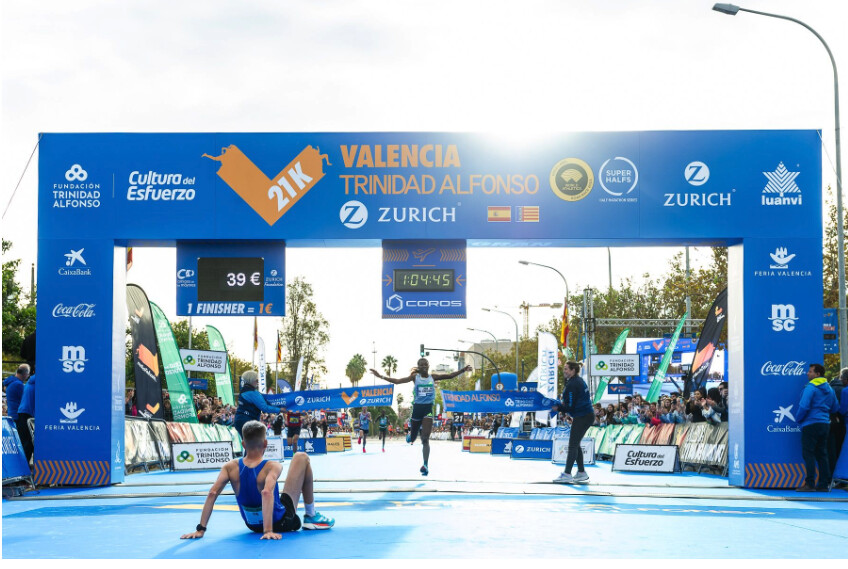
In the women's race, Chelimo dipped under 1:05 for the first time to win in a PB of 1:04:46 ahead of her compatriots Irine Cheptai, who clocked 1:04:53, and Janet Chepngetich, who ran 1:05:15.
Hat-trick for Kandie
The pacemakers went out at a steady 2:45/km pace to target a finish time of around 58 minutes as agreed at the pre-race technical meeting. But Kandie clearly had other ideas and just before the 5km checkpoint the defending champion overtook the pacemakers after unleashing a devastating change of speed which saw him cover that kilometre in a frantic 2:39 to reach 5km in 13:43.
Only two athletes could live with that pace: the gold and silver 5km medallists at the recent World Road Running Championships in Riga, Gebrhiwet and Kejelcha. Surprisingly, world half marathon champion Sebastian Sawe remained in the chasing group, while Olympic 10,000m champion Barega managed to rejoin the leading group one kilometre later.
Kandie pushed hard to cover the next 3km split in a blistering 8:08, always with the threatening Ethiopian trio on his shoulder. They went through the 10km mark in 27:15, a time that predicted a 57:29 finish to indicate that the world record of 57:31 set by Jacob Kiplimo in Lisbon in 2021 was feasible. Kandie was just one second slower than Kiplimo’s mark when he broke the world record to win in Valencia in 2020.
Some 31 minutes into the race, Barega moved to the front for the first time. The fast pace maintained, with several kilometre splits of 2:42, but after a 13th kilometre covered in 2:50, Kandie regained the lead as he tried to leave his rivals behind before the closing stages.
The lead quartet cruised through the 15km point in 41:01 following a slower three kilometre split of 8:24 to forecast a 57:39 final time, but the possibility of a world record and a thrilling finish was still there as four top athletes remained in contention.Barega was the first to drop as he began to lose ground just before the 19th kilometre and shortly afterwards Kejelcha – the world indoor record-holder for the mile – took the lead to go through that 19th kilometre in 51:52, just three seconds outside of the required world record pace. From there, the race turned into a tactical affair as victory became the priority of the leading trio.
At that point, the race looked like it might be between Kejelcha and Gebrhiwet, given their track credentials, but it was Kandie who found another gear with some 380m left to run and his Ethiopian opponents could not replicate his sudden burst of speed.
Kandie crossed the finish line in 57:40, the second-fastest time of his career behind his former world record of 57:32. He now has two of the four fastest half marathon times in history and the performance is a world lead of almost one minute.
Kejelcha kept Gebrhiwet at bay to get some revenge following his defeat in Riga as he shattered his own Ethiopian record by 51 seconds. Gebrhiwet and Barega completed a classy top four, while the world champion Sawe was never a threat and finished fifth in 58:29.
“Honestly, I was not aiming for the world record today but I felt strong throughout and pushed hard for most of the race,” said Kandie. “I promise to return to Valencia and regain the world record anyway. I'll next focus on my build-up for the Valencia Marathon on 3 December.”
Spain's Carlos Mayo erased Fabian Roncero's 22-year-old national record thanks to a 59:39 time that placed him 13th, while Portugal's Samuel Barata smashed the 26-year-old Portuguese record with 59:40 in 14th. Italy's Pietro Riva also dipped under the one hour barrier for the first time with 59:41.
Chelimo proves strongest
The women's contest kicked off at an even 3:06/km pace with six athletes at the helm: Kenya's Chelimo, Cheptai and Chepngetich, plus Ethiopia’s Gotytom Gebreslase and Tigist Gezahagn, and Germany's Melat Kejeta.
(10/22/2023) Views: 383 ⚡AMPby Emeterio Valiente for World Athletics
Valencia Half Marathon
The Trinidad Alfonso Valencia Half Marathon has become one of the top running events in the world. Valencia is one of the fastest half marathon in the world. The race, organized by SD Correcaminos Athletics Club, celebrated its silver anniversary in style with record participation, record crowd numbers, Silver label IAAF accreditation and an atmosphere that you will not find...
more...Race organizers are bubbling with confidence ahead of staging the 37th edition of the Venice Marathon
Stage set for 37th edition of Venice Marathon as 16,000 athletes register.
Curtains have already been raised for the 37th edition of the Venice Marathon scheduled for Sunday, October 22.
It has been confirmed that a total of 16,000 athletes are to take part in the three race categories which include the marathon, half marathon, and the 10km race.
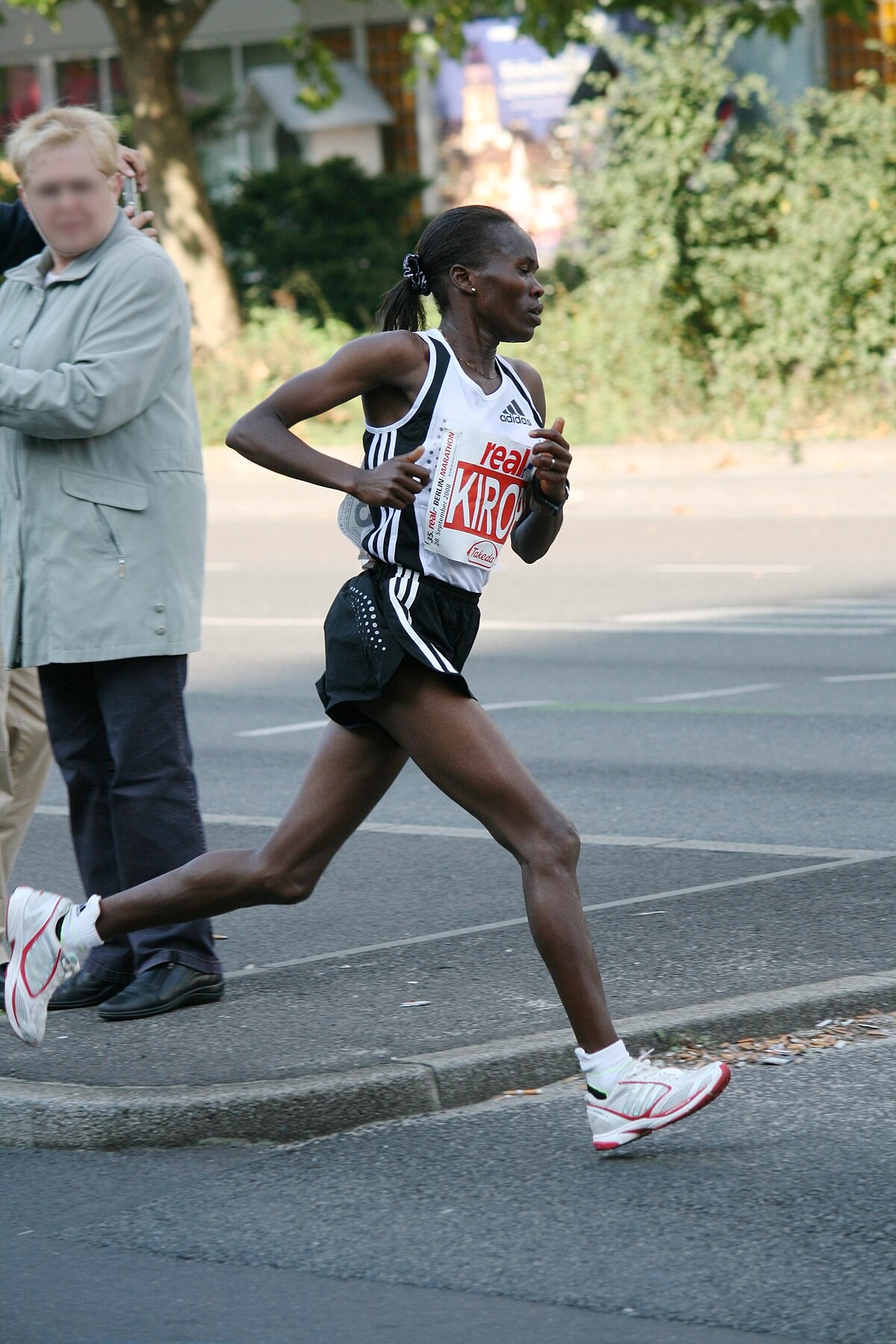
The men’s field is led by Uganda’s Solomon Mutai, the reigning champion after his triumph in the lagoon with a course record of 2:08:10. He returns to Venice to try repeat his success and further improve the record of the race.
However, he is bound to face a stern test from Kenya’s Emmanuel Rutto Naibei who finished second last year. Ethiopia’s Bekele Mesfin Teshome, the 2016 Dubai Marathon champion, will also be in the mix.
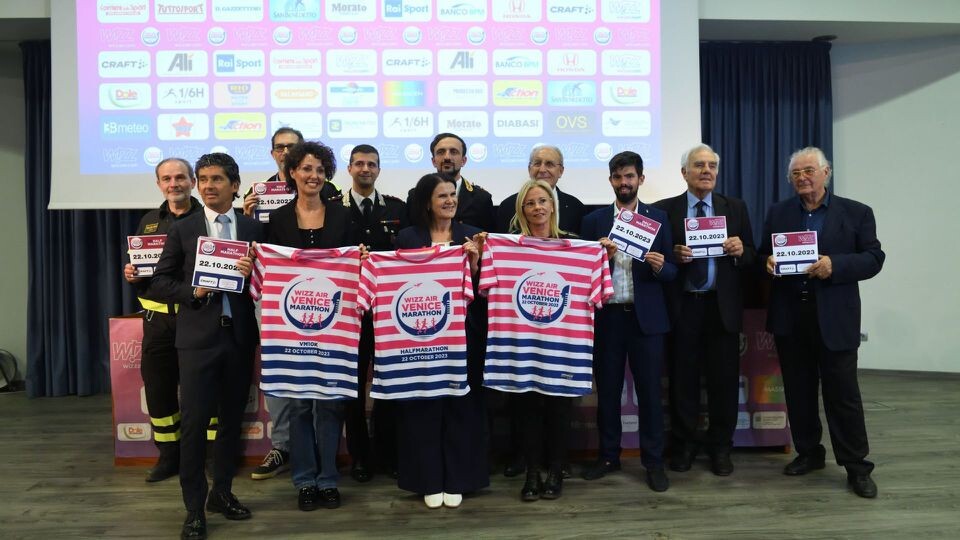
Naibei will enjoy the company of Noah Kigen Kiprotich who won last year’s Màlaga Marathon. Fans will witness the debut of the Italian-Moroccan steeplechase and middle-distance runner Abdoullah Bamoussa.
Meanwhile, the women’s field will be a race to try to lower the race record of 2:23:37 set way back in 2011 by Kenyan Helena Kirop.
Kenya’s Rebbeca Sirwanei Tanui, winner of the San Sebastiàn marathon (Esp) last year with a personal best of 2:23:09, and the very strong Kenyan Shamilah Tekaa Kipsorir, winner of the half marathon this year, will try to attack the race record.
Elsewhere, the president of the Venice marathon Piero Rosa Salva focused on the metropolitan aspect in his speech made during the press conference.
“We present the Venice marathon in one of the venues of the Metropolitan City of Venice as our event becomes more and more metropolitan every year, due to its ability to involve all the realities of the territory not only with the splendid route from Brenta to Venice but also with the stages of the Alì Family Run.
"The Venice marathon therefore represents the perfect combination between grassroots promotion, and therefore between young people, schools and families, and the elite sporting aspect".
(10/21/2023) Views: 440 ⚡AMP
by Abigael Wuafula
Venice Marathon
The Venice Marathon is one of the most beautiful marathons known for the historical, artistic and picturesque surrounding in which it takes place. It starts in Stra, a small village located at about 25 km west of Venice, at the beginning of the Riviera del Brenta, a beautiful area near the River Brenta, where the rich and noble Venetians built...
more...Sabastian Sawe and Kibiwott Kandie face stern test in deep Valencia Marathon field
The duo of Sabastian Sawe and Kibiwott Kandie are bound to face tough opposition as they eye victory at the Valencia Half Marathon.
World Half marathon champion Sabastian Sawe is not resting on his laurels as he eyes more glory at the Valencia Half Marathon Trinidad Alfonso on Sunday, October 22.
The men’s event has witnessed a world record in the recent past and it will be no surprise when another record is set in the streets of Valencia. The previous world record was set by Kibiwott Kandie, who clocked 57:32 to win the race in 2020.
Sawe is among one of the favourites primed to do well in the Spanish city, owing to his dominant win at the World Road Running Championships in Riga earlier this month.
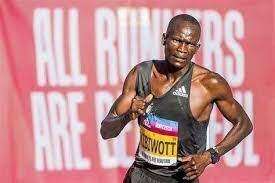
He clocked 59:10 to win the race and he leads a strong men’s line-up. The Berlin Half Marathon champion is reportedly in the form of his life and is undefeated on the roads this year. His target for this weekend will be to maintain that winning streak while also improving on his Personal Best time of 58:02.
However, he is bound to face opposition from his compatriot Kibiwott Kandie, who goes into the race as the defending champion.
Sawe is among one of the favourites primed to do well in the Spanish city, owing to his dominant win at the World Road Running Championships in Riga earlier this month.
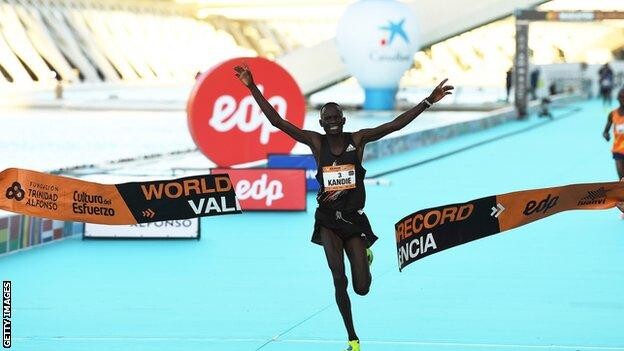
He clocked 59:10 to win the race and he leads a strong men’s line-up. The Berlin Half Marathon champion is reportedly in the form of his life and is undefeated on the roads this year. His target for this weekend will be to maintain that winning streak while also improving on his Personal Best time of 58:02.
However, he is bound to face opposition from his compatriot Kibiwott Kandie, who goes into the race as the defending champion.
Kejelcha won the Valencia Half Marathon in 2019 with a PB of 58:32 and he will be looking to replicate the same performance.
Also, in the deep field is another Kenyan, Matthew Kimeli, who clocked 58:43 in Valencia in 2021. Stephen Kiprop is also in the mix and he will be lining up with a PB time of 58:42 that he set when winning the Ras Al-Khaimah Half Marathon.
Tadese Worku will also be looking to challenge the strong athletes and make an impression since her made a promising half marathon debut in Valencia last year in 58:47.
(10/21/2023) Views: 434 ⚡AMPby Abigael Wuafula
Valencia Half Marathon
The Trinidad Alfonso Valencia Half Marathon has become one of the top running events in the world. Valencia is one of the fastest half marathon in the world. The race, organized by SD Correcaminos Athletics Club, celebrated its silver anniversary in style with record participation, record crowd numbers, Silver label IAAF accreditation and an atmosphere that you will not find...
more...Eight post-race reflection questions for every runner
You’ve crossed the finish line of your goal race, the dust has settled from your post-race celebrations, and now it’s time to do some reflecting. Taking time to look back on both your training and your race to assess what worked well and what didn’t is an important step if you want to continue to improve. These eight questions will help get you started.
1.- What can I celebrate?
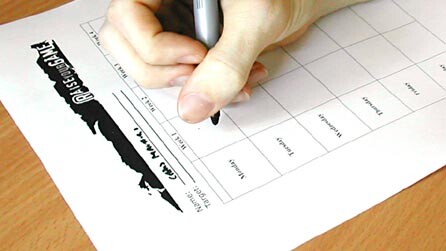
Before you dissect anything too much, take a minute to celebrate what you accomplished. Even if your race didn’t go as well as you’d hoped, try to pick out one or two things that you’re proud of.
Maybe you didn’t hit your goal time, but you’re proud of yourself for not giving up when things weren’t going well–and that deserves recognition. Or maybe you finally nailed your fuelling strategy or managed your pre-race nerves better than before. Whatever your wins were, write them down and celebrate them.
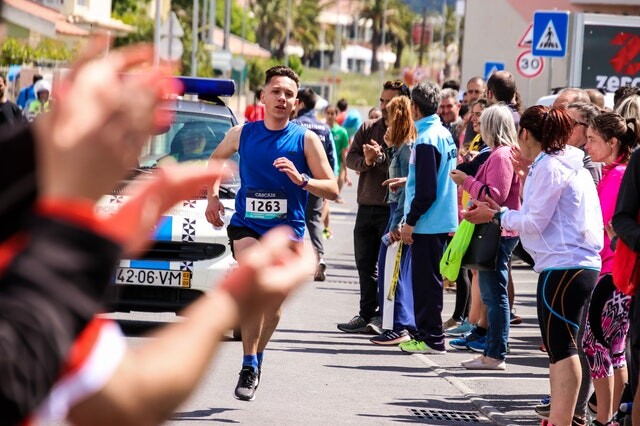
2.- How did your race play out vs. your race plan?
If you executed your race plan perfectly, great job! Answering this question will be easy. If not, ask yourself why it didn’t, and whether those factors were within your control. It’s one thing if the weather went sideways on race day, or if you tripped and fell halfway to the finish line. It’s another thing if you look back on it and realize that maybe your race plan wasn’t realistic, or you made some early pacing mistakes that cost you your goal time. If it’s the latter, then great–those things can easily be fixed for next time.
3.- What did you learn during your training and race?
This question is intentionally broad, and will likely overlap with some of your other answers, but it’s a great way to get you to start thinking more analytically about your race buildup. Was there anything that surprised you during your training or on race day? In what ways did reality differ from your expectations?
4.- Did you enjoy your training and race? Why or why not?
It’s really important to be honest when answering this one. Of course, you likely didn’t enjoy every aspect of training, but try to identify what you did like and what you didn’t. If, for example, you hated getting up early to run by yourself in the dark, maybe next time you can join a group to train with or enlist a running buddy to do some early morning runs with you.
5.- What parts were tough?
This is especially important to think about in the context of your race. Did you struggle with a big hill in the middle of the course? Maybe you should do more hill work during your next training cycle. Was your race fuel not going down so well? Perhaps you should experiment with some different options next time around. Did you struggle with jet lag during your destination race? You might need to plan a little differently next time you travel for a race.
6.- What did you do well?
Although it sounds similar, this is different than celebrating your wins. Go more granular here–you hit your goal time, but why? What did you do during your training or race that helped you accomplish that? You maintained a more even pace throughout the entire run, rather than slowing down in the middle or end–how come? What did you do in your training that improved your endurance?
7.- Where is your biggest opportunity to grow?
Now is the time to decide what your main focus will be during your next training cycle. This could be anything from improving your consistency to changing up your routine so you have more fun with your training.
8.- Where do you want to be six months to a year from now?
Envision the runner you want to be in the future, and adjust your approach accordingly.
(10/21/2023) Views: 388 ⚡AMPby Brittany Hambleton
Teacher Dribbles Way to Guinness World Record Marathon Finish
Maria Babineau dribbled a basketball for 26.2 miles, finishing the Toronto Waterfront Marathon in her debut at the distance.
Over the weekend, the Toronto Waterfront Marathon saw its fair share of excitement, with Ethiopia’s Buze Diriba Kejela winning the women’s race with a personal-best time of 2:23:11 for the women’s race, while Elvis Kipchoge Cheboi took the win in the men’s field with a time of 2:09:20.
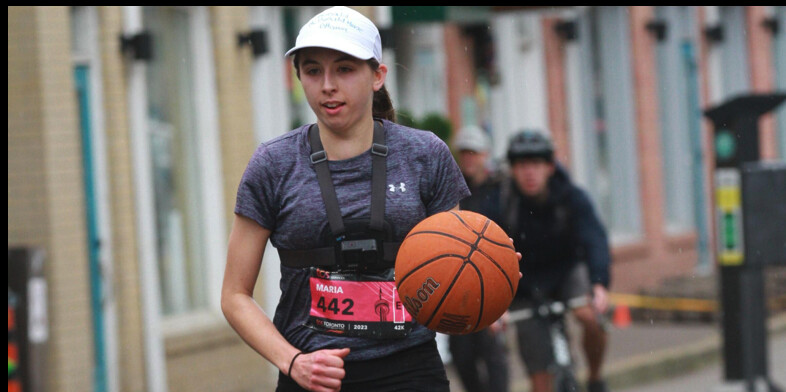
While no course records were broken, the event did see an incredible 20 Guinness World Record attempts, with everything from the fastest half marathon in a five-person costume to the quickest half marathon by a female dressed as a crustacean. But one impressive attempt was a total slam dunk: elementary school teacher Maria Babineau broke the record for the fastest female running a marathon while dribbling a basketball, finishing the race in 3:57:40.
My students knew I loved basketball, so they encouraged me to break a basketball world record,” Babineau told Runner's World. “The enthusiasm the students shared for attempting the record was amazing. I wanted to show them that anything is possible.”
Video from the race shows Babineau running while dribbling the ball, alternating between her hands as she confidently breezed past her competition. “During the marathon, there were points of the race where my arms were cramping a little,” she said. “The cheering of the spectators and the positive comments from all the runners around me are what helped me get through it.”
The race, surprisingly, was Babineau’s first marathon, completed after about seven weeks of training. “During my training, I ended up having quite a few dogs try to steal the basketball,” Babineau said. “I also had to practice wearing a GoPro on my chest to record the attempt.”
The record attempt, which Guinness is still reviewing, was for more than just cheers from the crowd—Babineau ran in support of a charity she volunteers with, Ronald McDonald House Ottawa. Her goal was to raise $1,000 CAD to help the organization (which provides a home for families with sick children) buy an adjustable basketball net so families can play together. Babineau donated $1 for every kilometer she ran as part of her training, and ultimately, she raised more than her goal, presenting the basketball net and her record-achieving basketball to the house.
Marinella Satta of Italy set the previous record for the fastest female dribbling a basketball in 4:28:11 during the Giro D’Italia Run in Turin, Italy, back in 2010, finishing 25th out of 38 runners.
For any men who feel inspired by this feat, the current Guinness record for the fastest marathon while dribbling a basketball for men was set in 2021 by Steffan Reimer, who ran a 2:50 marathon while bouncing the ball along the course.
(10/21/2023) Views: 379 ⚡AMPby Runner’s World
Reusable Aid Station Water Cups Are Gaining Traction at Races
Hiccup is a service that has been used at Grandma’s Marathon and the Chicago Marathon start line. Now it’s partnering with NYCRUNS, which hosts over 75,000 runners each year.
Race organizers around the world have been making strides in recent years to reduce waste—from making T-shirts and medals optional (or eliminating them completely), to providing digital-only swag bags, to offering compostable or reusable water cups. But there’s still a long way to go to make running events more environmentally sustainable.
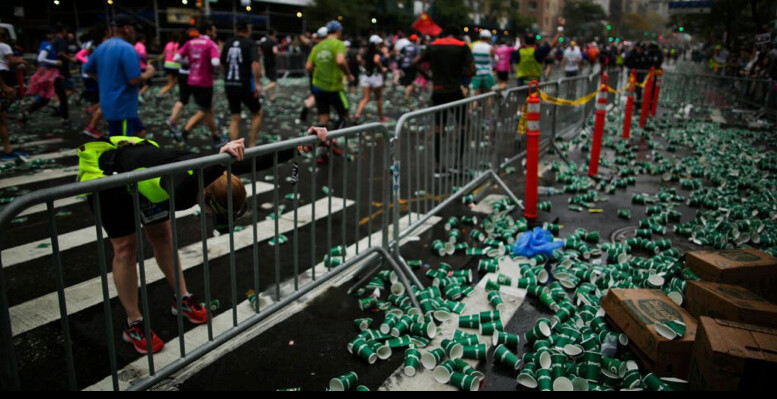
In 2020, Kristina Smithe started her reusable cup service, Hiccup, because she was astounded by the amount of waste she saw at running events and wanted to do something about it. Hiccup provides 8-ounce silicone cups at race aid stations as an alternative to disposable cups, and washes and sanitizes them afterwards so they can be used for future events. So far, Hiccup has partnered with races in nine states, for small town turkey trots to major events like Grandma’s Marathon and the Chicago Marathon start line.
Now, thanks to a new partnership with NYCRUNS, Hiccup is making its way to one of the biggest running cities in the world, adding the Big Apple to the list. The running group’s first event using the cups will be the Haunted Island 10K and 5K races NYCRUNS is hosting on October 28 and 29 on Governors Island.
In an email introducing the Hiccup concept to participants, the NYCRUNS team included instructions: “Do not take the cup away from the water station and do not keep it as a souvenir (as tempting as it may be!) ... Toss the cup in one of the designated bins when you are finished.”
NYCRUNS estimates that by using Hiccup, they will prevent over 10,000 cups from going to the landfill at their Haunted Island races alone. There’s heaps more work to be done for the running industry to become more sustainable, but the impact of just this one New York City racing org switching over to reusable cups is not negligible. NYCRUNS hosts about 20 running events per year for over 75,000 athletes. All those cups and all that rubbish adds up.
MORE FROM RUNNER'S WORLD ON APPLE NEWS
(10/21/2023) Views: 426 ⚡AMPby Runner’s World
The Physiology of Training Plateaus
Scientists want to know why we don’t keep getting bigger and stronger forever
The law of diminishing returns, in the sports and fitness context, is not particularly controversial. When you’re a neophyte, small amounts of training produce big gains. When you’re a hardened vet, huge training loads are needed to squeeze out tiny gains. Eventually, and inevitably, you hit a ceiling. We’re so used to this pattern that we seldom stop to ask a very basic question: Why?
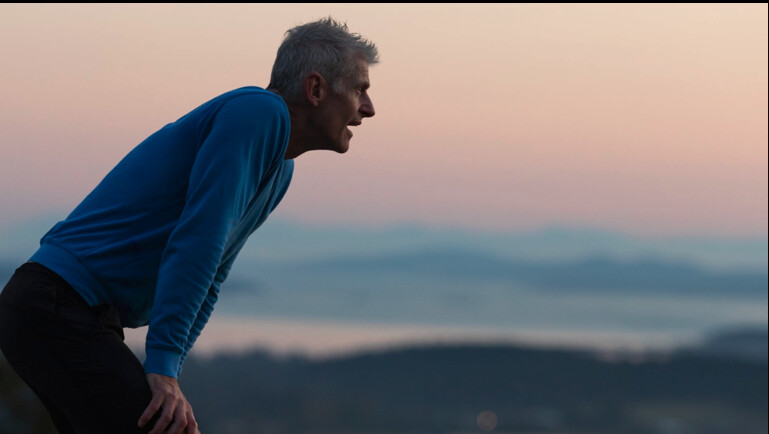
A major new review paper from Jeremy Loenneke’s research group at the University of Mississippi, published in Sports Medicine, takes on this question in the context of strength training. What, if anything, prevents us from continuing to get bigger and stronger indefinitely, assuming we’re willing to keep upping the training dose? Despite how obvious the question seems, the answers remain elusive. There are several theories, though, which offer some insight about how to push your own plateau a little higher.
The most obvious explanation for training plateaus is that you let the workouts get too easy. A few years ago, I wrote about a surprisingly effective ultra-minimalist once-a-week strength training routine. People who followed it made substantial gains in the first year or so of training, but only marginal gains thereafter. That seemed like a perfect illustration of failing to progress workout volume and difficulty. But the authors of that paper pushed back against this assumption. Data from powerlifters, they pointed out, showed similar plateau effects on a similar timeframe, even though the powerlifters were presumably following much more rigorous and sophisticated training programs.
Loenneke and his colleagues suggest four different mechanisms that might constrain maximal muscle growth. The first is that training eventually makes your muscle cells less responsive to the signals that usually trigger muscle growth. New muscle proteins are synthesized in response to various triggers including food, hormones, and the mechanical stress that strength training imposes on muscle fibers. There are various lines of evidence suggesting that well-trained people produce less new muscle protein in response to a given trigger than untrained people. No one’s entirely sure why, but the end result is that it gets progressively harder to ramp up the production of new muscle as you get fitter.
The other half of this equation is how quickly the muscle proteins you already have are being broken down. The general thinking is that this is less of a factor than how quickly you’re synthesizing new muscle protein, but one clear finding is that you break down protein at an elevated rate when you’re in caloric deficit. This doesn’t seem like a fundamental barrier, but it does suggest that getting enough calories in might be an increasing challenge as you get bigger and bigger.
The third possibility is that there’s a fundamental limit on how big muscle cells are allowed to get relative to their nuclei. The “myonuclear domain hypothesis” posits that each nucleus can only synthesize enough muscle protein to support a given cell volume. Unlike most cells in the body, muscle cells can have more than one nucleus, which enables them to get bigger with training. But the creation of new muscle cell nuclei is a complicated and poorly understood process, so it may eventually put a cap on how big a given muscle cell can get. There are also some other homeostatic mechanisms that may act to keep muscle cell size within a tight range: myostatin, for example, is a growth factor that hinders muscle growth, and whose resting levels get higher in strength-trained people.
The fourth and final mechanism is anabolic resistance, which is the gradual diminution of response to muscle-building triggers with age. This one sounds a lot like the first mechanism: less muscle-growth bang for your stimulus buck. But the difference is that it’s caused by the mere passage of time, rather than in response to prolonged strength training. There are various possible mechanisms: epigenetic changes, lower levels of sex hormones like testosterone and estrogen, insulin resistance, and so on. The idea here is that if you could magically stay 21 forever, you’d be able to keep getting bigger and stronger semi-indefinitely, but the passage of time means that the gradual accumulation of training gains is always competing with the inexorable creep of anabolic resistance.
So which is it? You’ve probably figured out by now that no one is really sure, and the answer is likely a mix of these and other factors. More research is needed. Still, it’s an interesting question, because understanding what general factors limit muscle growth might shed some light on why those limits differ so much among individuals. And it does suggest a practical takeaway: to raise your ultimate ceiling, hit the weights when you’re young, before anabolic resistance kicks in. Even if you slack off in middle age, there’s evidence that the extra cell nuclei you form when packing on muscle will stick around if you detrain and the muscle cells shrink. These dormant nuclei will make it easier to add muscle again later, a form of muscle memory that might help you defy the tyranny of age. And it’s not an all-or-nothing proposition: anabolic resistance is a long, slow process, so those of us no longer in the first flush of youth are still better able to put on muscle today than we will be tomorrow.
In practice, I’m pretty sure that most training plateaus, whether in muscle size, marathon time, or other fitness goals, don’t actually reflect some immutable biological law. We slip into comfortable routines, repeating the same workouts even though our bodies have already adapted to them. We settle for incremental goals instead of dreaming of quantum leaps. We get hurt or stressed out at work or distracted by other priorities. But there’s also some biology at work in the law of diminishing returns. Understanding that biology might eventually help us break through plateaus—or at least accept them gracefully.
(10/21/2023) Views: 340 ⚡AMPby Outside Online
Does Acupuncture Help With Sports Injuries? Experts Weigh In.
More athletes are turning to the ancient tradition for relief from pain. But does it actually work?
When your lower back or glutes flare up painfully after going too hard trail running over the weekend, your default instinct might be to add some extra stretching to your routine or schedule some time with your massage therapist or chiropractor. If the pain is excruciating, you might even consult with a sports medicine doctor.

But there’s another accessible and effective treatment option for aches and pains. One that has only limited side effects and that’s been practiced for thousands of years.
It’s acupuncture. And although the mechanisms through which acupuncture works in the body aren’t fully understood, and there may be a placebo effect in play, research repeatedly indicates that acupuncture is effective at treating various forms of pain, including those related to myofascia, the back, and osteoarthritis.
Here’s what you need to know about acupuncture’s potential role in treating sports injuries.
Acupuncture is a practice in Traditional Chinese Medicine (TCM) that involves inserting small, thin needles through the skin and often into the superficial layers of the muscle to relieve pain and address health conditions like menstrual cramps, migraines, and arthritis. The points where needles are inserted are pathways, each corresponding to a particular organ or system, along which energy, or qi, is believed to travel. According to TCM, the needle helps unblock meridians.
From a Western medicine perspective, it’s believed that the needles stimulate the body’s muscles, connective tissue, and central nervous system, which can help with recovery from illnesses and pain. “Basically, what we’re doing with acupuncture is we’re using your body’s inherent means of healing itself,” says David Mann, DO, who is a primary care and sports medicine physician and licensed acupuncturist at Houston Methodist.
Sports medicine acupuncturists specifically treat sports injuries using the same foundations of TCM, but also incorporate functional anatomy, muscle testing, and range of motion testing. “Using this approach, I can precisely identify complex injuries and their sources, especially when checking for posture issues during various movements,” explains sports medicine acupuncturist Kevin Menard.
Hilary Patzer, a doctor of Chinese Medicine and licensed acupuncturist who works with the Minnesota Vikings, believes combining TCM and sports medicine really helps nudge the body along on the path to healing. “The body wants to be in harmony, it wants to be balanced, it wants to be functional,” she says. “But sometimes it has to be told what to do because it’s gotten out of alignment.”
Acupuncture is used to treat all sorts of sports injuries, including joint problems, muscle sprains and strains, tight muscles and trigger points, lower back pain, cervical and lumbar herniations, and many other conditions. “It’s just so incredibly helpful because we can treat the whole body effectively in that one treatment,” Patzer says. “Those needles are like little magic wands.”
This broad approach means that when treating something like a quadriceps strain, an acupuncturist will also assess and potentially address other muscles around that injury that may be compromised or compensating. “If you don’t treat anything around [the injury], they’re going to continue to have that quad injury and it’s not going to heal nearly as fast as if you treat upstream and downstream as well,” Patzer explains.
Here are a few ways that acupuncture can be useful when treating sports injuries, according to the experts:
Acupuncture is frequently used to reduce various types of pain and is increasingly recognized as a non-drug alternative to painkillers. One reason for acupuncture’s pain relieving effect is that it’s known to release endorphins, which can help decrease pain and lift your mood. “By boosting the production of endorphins, acupuncture directly counters pain, a primary concern with sports-related injuries,” Menard says.
Acupuncturists commonly use the practice to reduce inflammation following injuries. Menard explains that acupuncture improves blood circulation to targeted muscles, fascia, tendons, and ligaments, which helps reduce swelling and repair injured tissues.
A recent study published in the journal Nature found that acupuncture can trigger an anti-inflammatory response and suppress inflammation through the involvement of a nerve pathway between the vagus nerve and the adrenals called the vagal-adrenal axis. Other studies show similar findings, with acupuncture reducing or controlling inflammation by stimulating various pathways that connect the nervous and immune systems, both of which are known to play a role in the body’s inflammatory response. It’s important to note that these studies were conducted on mice, which isn’t always an exact predictor of human response.
Another study found that acupuncture may reduce inflammation by stimulating the vagus nerve, which is part of the parasympathetic nervous system and plays a large role in the body’s stress response.
Acupuncture can enhance proprioception—meaning the body’s sense of its position and movement—by addressing trigger points and knots in the muscle tissue, Menard says. For athletes, proprioception is really important because it plays a role in balance, coordinating movements, and adjusting muscle activity. When proprioception is low, sports injuries may be more likely to occur
“These knots, if untreated, can hinder muscles and their counterparts from functioning correctly, leading to imbalances and further complications,” Menard explains. “Acupuncture’s ability to identify and treat these points can provide immediate relief, helping athletes regain their proper form and function.”
Patzer compares muscle functioning to a slinky—when a muscle is functioning properly it opens and closes like a spring, and that’s a good thing. But if it’s pulled too long or locked up too tight, it may not perform at its best. Left untreated, this can sometimes lead to problems with nearby muscles, tendons, and joints. “With acupuncture, I’m able to help the muscle get that kind of proper movement and function back,” Patzer says.
Many acupuncturists may be able to help someone with a sports injury, but if you’re an athlete and experiencing pain, Patzer says it’s best to see someone who specializes or is certified in sports medicine acupuncture. If you have an X-ray or MRI results, bring a copy to your appointment to help inform treatment. “It’s essential to accurately diagnose each condition to tailor the most effective acupuncture treatment to the patient’s specific needs,” Menard says.
Keep in mind that acupuncture likely isn’t going to be a one-stop cure for any sports injury that arises, and it’s often most effective when used in conjunction with other types of treatment. Acupuncturists will even refer patients to other care facilities or professionals, like hospitals, chiropractors, physical therapists, and massage therapists. “We work in tandem, ensuring every patient gets the holistic care they need,”Menard says.
(10/21/2023) Views: 333 ⚡AMPby Outside Online
Australian ultrarunner makes history by racing UTMB and Ironman World champs
Ultrarunner Lucy Bartholomew made running and triathlon history on Sunday, becoming only the second woman ever to finish the 171-kilometre Ultra-Trail du Mont-Blanc (UTMB) as well as the Ironman World Championships in the same year.
Bartholomew ran remarkably well at both events, taking a tenth-place finish at UTMB in 27:39:22, and completing what was only her second Ironman in 10:43:41, with a 3:31 marathon time.
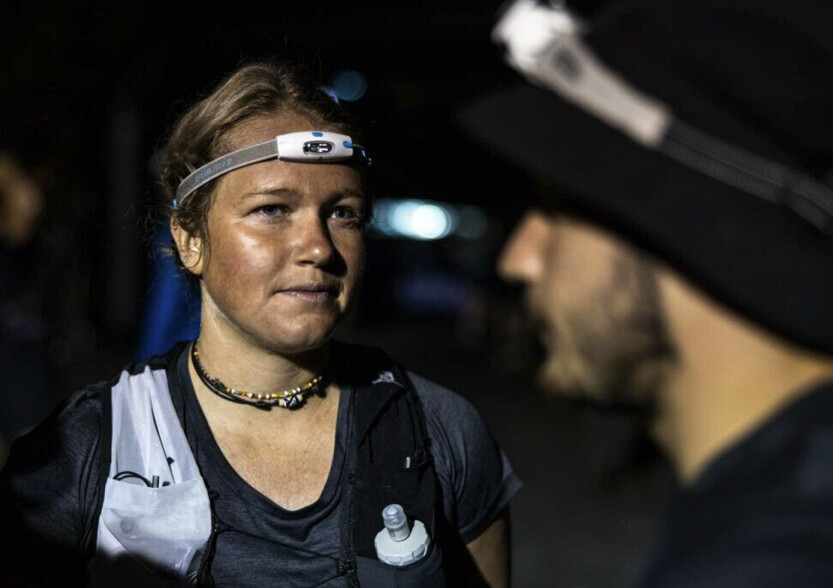
The double–nearly 400 kilometres of challenging racing–has only been conquered by one woman before Bartholomew: Ireland’s Diana Hogan-Murphy, in 2014. Bartholomew is also the fastest person of any gender to have completed both events in the same year.Bartholomew shot to fame in the ultrarunning world in 2018, when she was the third female at the Western States 100. The runner shared on social media that she lost some of the joy in racing in the years following her WSER podium, and after her 2022 race ended in a DNF, she wasn’t sure if she’d race 100 miles again.
“You show up (almost) every day to run so that you can run even more on the race day, finish and not be able to run, only to want to run, and then run to aid in the recovering of the running and to prepare for more running,” Bartholomew explained. “To take myself out of this cycle I decided to tick a bucket list idea to do an IRONMAN triathlon. It was a ‘one day, someday’ objective that I pulled forward to help pull me out of feeling stuck.”Bartholomew’s first Ironman, in Western Australia in December 2022, qualified her for the Kona World Championship event in Hawaii.
While the runner had only planned to complete one Ironman, she felt she couldn’t miss the opportunity to race in Hawaii. “Not being one who steps down from a challenge, it seemed right to go one more,” she said.
“I’ve swum, biked and run my way to fantastic recovery from UTMB and moderate triathlon fitness for Kona,” Bartholomew said pre-race. “It was a fun, fine balance to play with these two big events so close to each other.”
(10/21/2023) Views: 375 ⚡AMP
by Running Magazine
Ingebrigtsen brothers speak out against their father and former coach
The Ingebrigtsen brothers have been involved in a long-standing conflict with their father and former coach, Gjert Ingebrigtsen. Earlier this week, the tension reached a high point when the Norwegian Athletics Association denied Gjert accreditation for major championships in the upcoming year, including the World Indoor Athletics Championships and the Paris Olympics.
Last year, the brothers revealed that Gjert would no longer coach his sons, Jakob, Filip and Henrik, for health reasons. Later it came out that Gjert was not granted accreditation at the 2023 World Championships in Budapest and did not attend Jakob’s wedding in September, and Norwegian media dove into the feud.
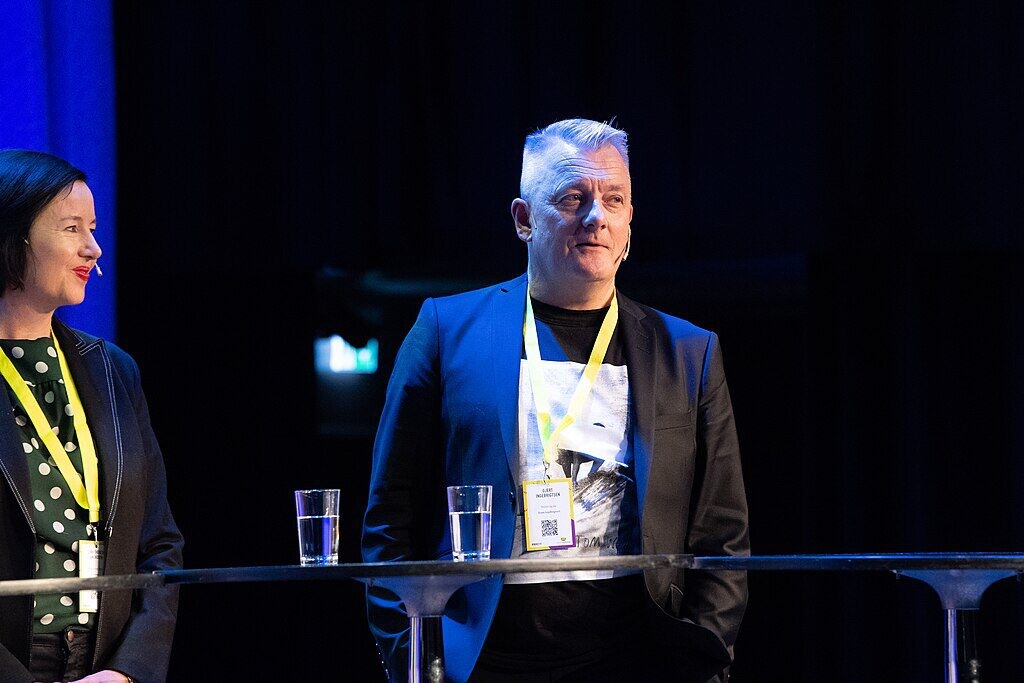
The Ingebrigtsen brothers have been involved in a long-standing conflict with their father and former coach, Gjert Ingebrigtsen. Earlier this week, the tension reached a high point when the Norwegian Athletics Association denied Gjert accreditation for major championships in the upcoming year, including the World Indoor Athletics Championships and the Paris Olympics.
Last year, the brothers revealed that Gjert would no longer coach his sons, Jakob, Filip and Henrik, for health reasons. Later it came out that Gjert was not granted accreditation at the 2023 World Championships in Budapest and did not attend Jakob’s wedding in September, and Norwegian media dove into the feud.
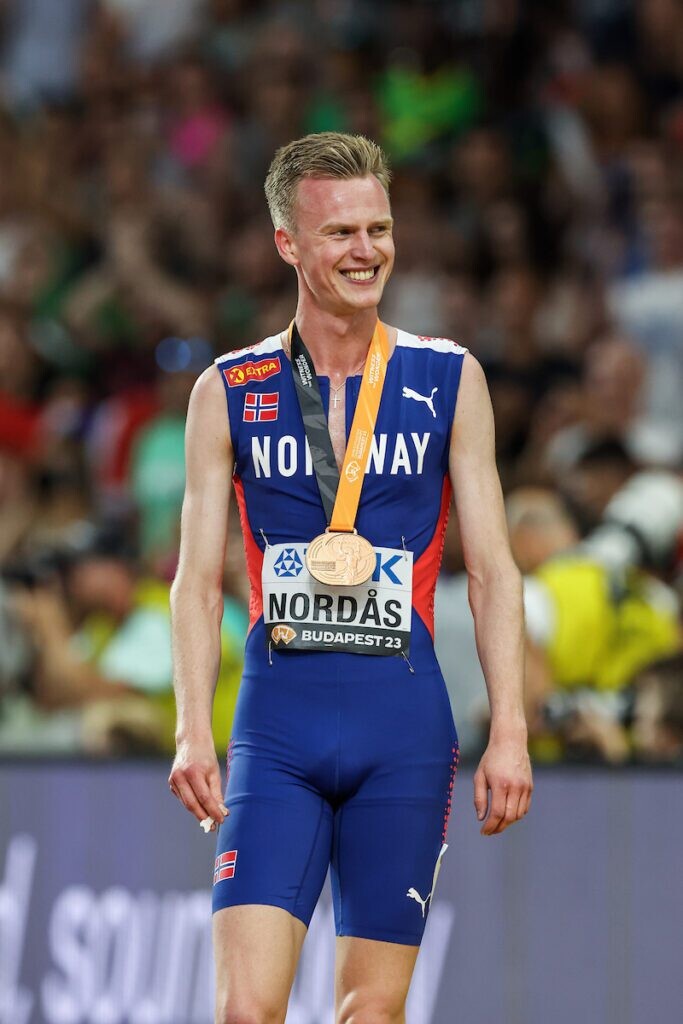
“We should have helped stop the situation earlier,” the brothers wrote on VG. “The fact that we didn’t weighs on us. Two years ago, we had enough. The situation we have been through in the family has taken an enormous toll. In the midst of this, we have tried to perform, but the joy of playing sports is gone.”
The brothers asked the Norwegian Athletics Association for safety from Gjert and not to be put in situations where they may see or have to face their father. “We do not have the capacity or desire to deal with him. Not now,” said Henrik.
“On the basis of Jakob, Philip and Henrik’s statements today, we promise to provide a safe environment and a healthy performance environment for our athletes,” the Norwegian Athletics Federation wrote in a response to their statement.
Gjert is still very much associated with Norwegian athletics as the coach of high-profile middle-distance runner Narve Gilje Nordås, who won bronze in the men’s 1,500m at the world championships in Budapest, finishing on the heels of his compatriot, Jakob Ingebrigtsen, and the new world champion, Great Britain’s Josh Kerr.
Gjert responded to these claims through his lawyer on Thursday, denying the allegations of violence:
“The statements they make are baseless. I have never used violence against my children. That I have had weaknesses as a father, and to a great extent been a coach, is a realization I have also come to – albeit far too late.
“I’m far from perfect as a father and husband, but I’m not violent. First and foremost, this is a tragic situation for my family–we have reached the point where we are spreading false accusations against each other in the media. It makes me deeply unhappy. How we’re going to get past this, I don’t know, but we’ve got to try.”
The brothers concluded their statement by saying that they want to get back to the joy of playing sports and representing Norway “with the flag on their chest” without the shadow of their family conflict. “There are many people who want to talk to us about this matter. We don’t want that. This case has cost too much already, and now we want to move on,” they wrote.
(10/20/2023) Views: 400 ⚡AMPby Marley Dickinson
Kenyan Margaret Chelimo to battle Melat Kejeta at Valencia Half Marathon
World Road Running Half Marathon silver medalist, Margaret Chelimo will lead a strong deep field at the 17th edition of the Valencia Half Marathon slated for Sunday in Valencia, Spain.
The 30 year-old who is also the 2019 World 5000m silver medalist will partner with her compatriot Janeth Chepngetich as they try to dethrone the seven Ethiopia’s who will be led by the former world marathon champion, Gotytom Gebreslase, who comes to this race with the third fastest time on paper of 1:05.36 that she got two years ago at Bahrain Night Half Marathon where she took the honors.
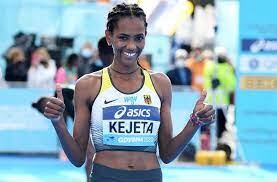
Chelimo who is also the 2022 World 10,000m bronze medalist, will have to get past the current European record holder over the half marathon distance, Melat Kejeta from Germany who holds the fastest in this field of 1:05.26 that she got at the 2020 World Half Marathon Championships, where she finished in second behind Peres Jepchirchir.
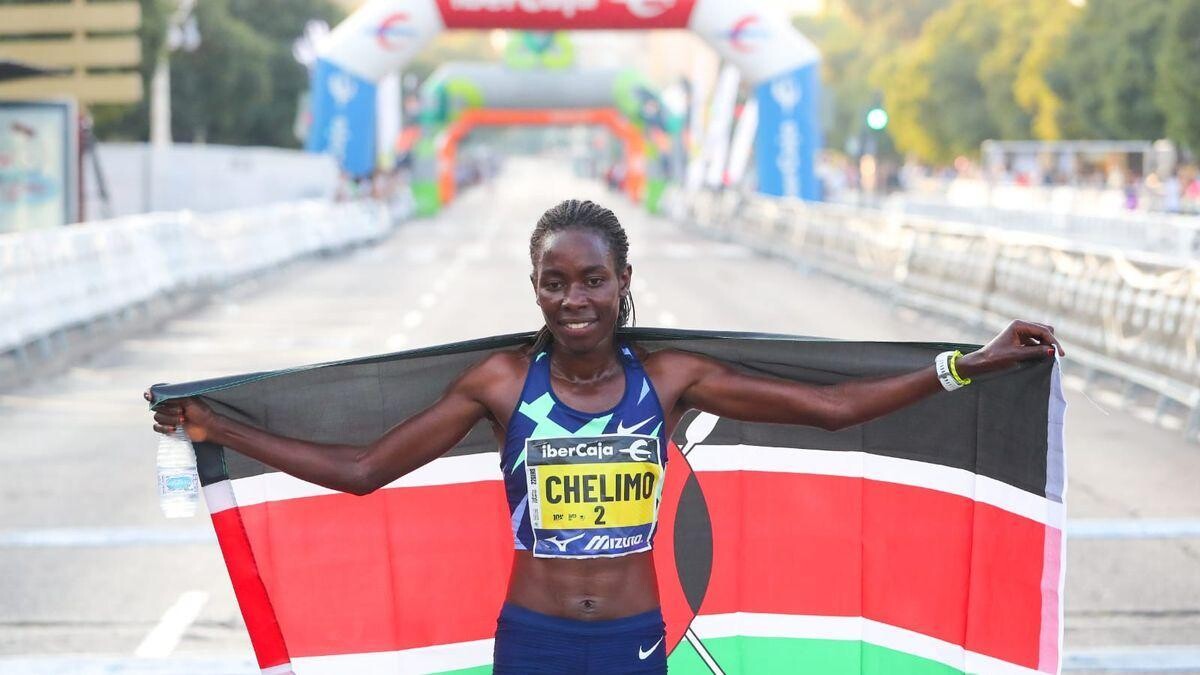
The World Cross Country silver medalist, Tsigie Gebreselama and World Indoor 3000m champion Lemlem Hailu both from Ethiopia will also be fighting for the top podium finish.
The race director Marc Roig expresses his anticipation for the event, saying, “Valencia proves once again to be the race of choice for the world’s elite athletes looking to break records. “The return of last year’s winner in the women category is a testament to the race’s popularity. We expect to witness remarkable records, national records, and potentially the fastest world records of the year”.
(10/20/2023) Views: 343 ⚡AMPby John Vaselyne
Valencia Half Marathon
The Trinidad Alfonso Valencia Half Marathon has become one of the top running events in the world. Valencia is one of the fastest half marathon in the world. The race, organized by SD Correcaminos Athletics Club, celebrated its silver anniversary in style with record participation, record crowd numbers, Silver label IAAF accreditation and an atmosphere that you will not find...
more...Lilian Kasait reminisces on season comeback after doping ban
Lilian Kasait has given a candid assessment of her season after completing her doping ban in February.
Lilian Kasait is one of the few athletes who bounced back after a doping ban threatened her career and she has come out to give an assessment of her 2023 season.
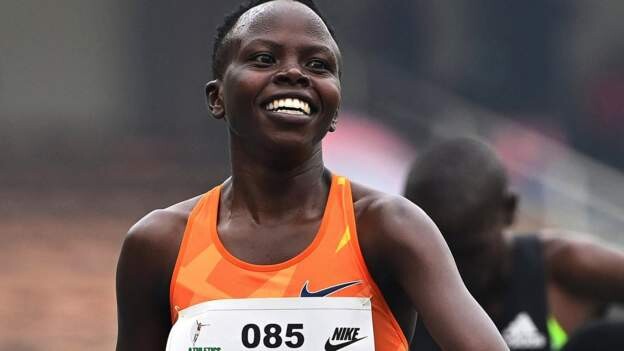
According to reports by BBC, the Kenyan runner was banned for 10 months for the use of the hormone therapy drug Letrozole.
The former world Under-18 3,000m champion had her results annulled on January 20, 2022, the day she provided her positive sample. Her suspension ran from April 2022 to February 2023 after admitting to her guilt.
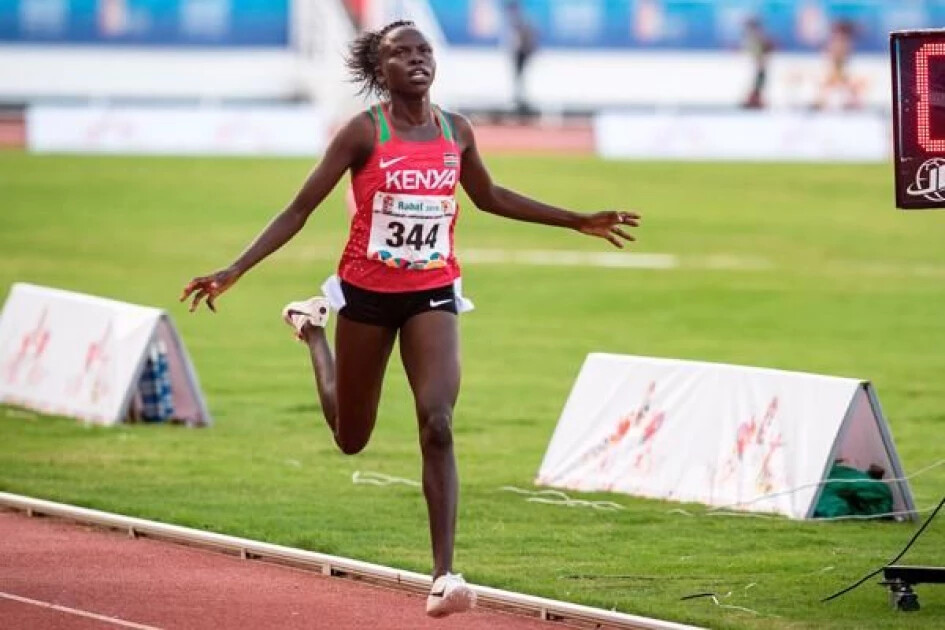
Speaking to Nation Sport after ending her season at the World Road Running Championships, Kasait expressed her delight to have made a comeback and ended her season on a high. She bagged a silver medal at the global showpiece where she was debuting.
“I’m very happy because I’ve ended my season with a medal. The road race was my first and I just went there hoping for the best,” she said.
Kasait opened her season with a fourth-place finish at the Kip Keino Classic before proceeding to reign supreme in the 1500m and 5000m at the Kenya Prisons Championships.
She then began her Diamond League Trophy campaign at the Meeting in Paris where she finished fourth in the 5000m before heading to the Meeting in Oslo where she competed in the 3000m and finished second.
The former All Africa Games champion then jetted back to the country for the National Championships and World Championships National Trials. She secured a ticket to the global show in the Hungarian capital and managed to finish 10th.
She soothed her World Championships heartbreak with a win at the Diamond League Meeting in Brussels before closing her track season at the Prefontaine Classic with a fourth-place finish.
(10/20/2023) Views: 354 ⚡AMPby Abigael Wuafula
Always learning, Jemal Yimer refocuses after Riga with marathon success in his sights
For as long as he can remember, Jemal Yimer has been a student of the sport.
The 27-year-old grew up in the Amhara region of Ethiopia, without any running background in his family, but that didn’t stop him idolising the greats. “Haile Gebrselassie,” he says quickly, when asked about his childhood heroes.
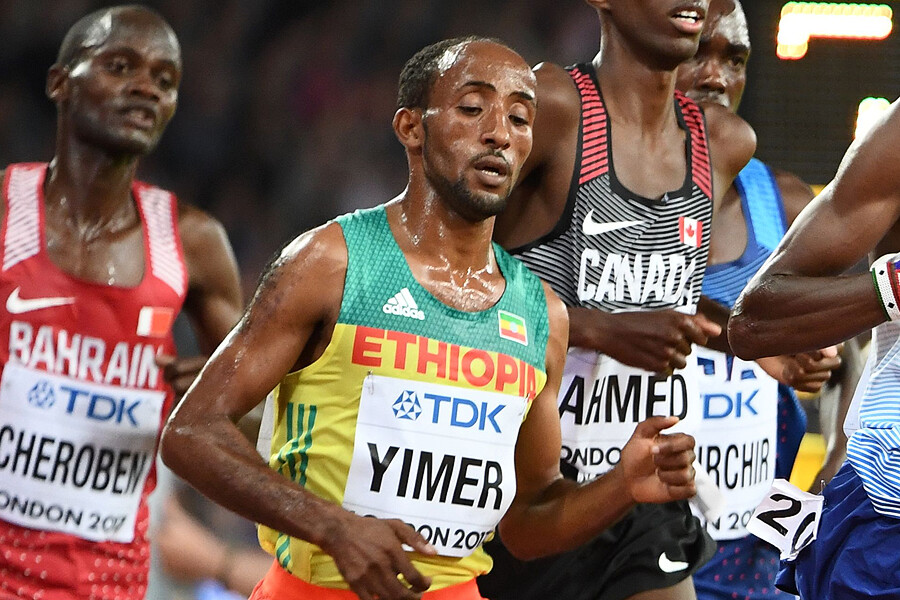
Yimer began running at school, juggling football and athletics in his teenage years before deciding to give the latter his full focus. Since 2016, it has consumed him and when he’s not running twice a day – which he does every day except Sunday – one of his hobbies is to watch documentaries about the greats of the sport.
“Sometimes it’s (Eliud) Kipchoge, Gebrselassie, or Kenenisa (Bekele) – we see the life history of strong athletes, their races,” he says. “That is the backbone of me; it’s motivation for me.”
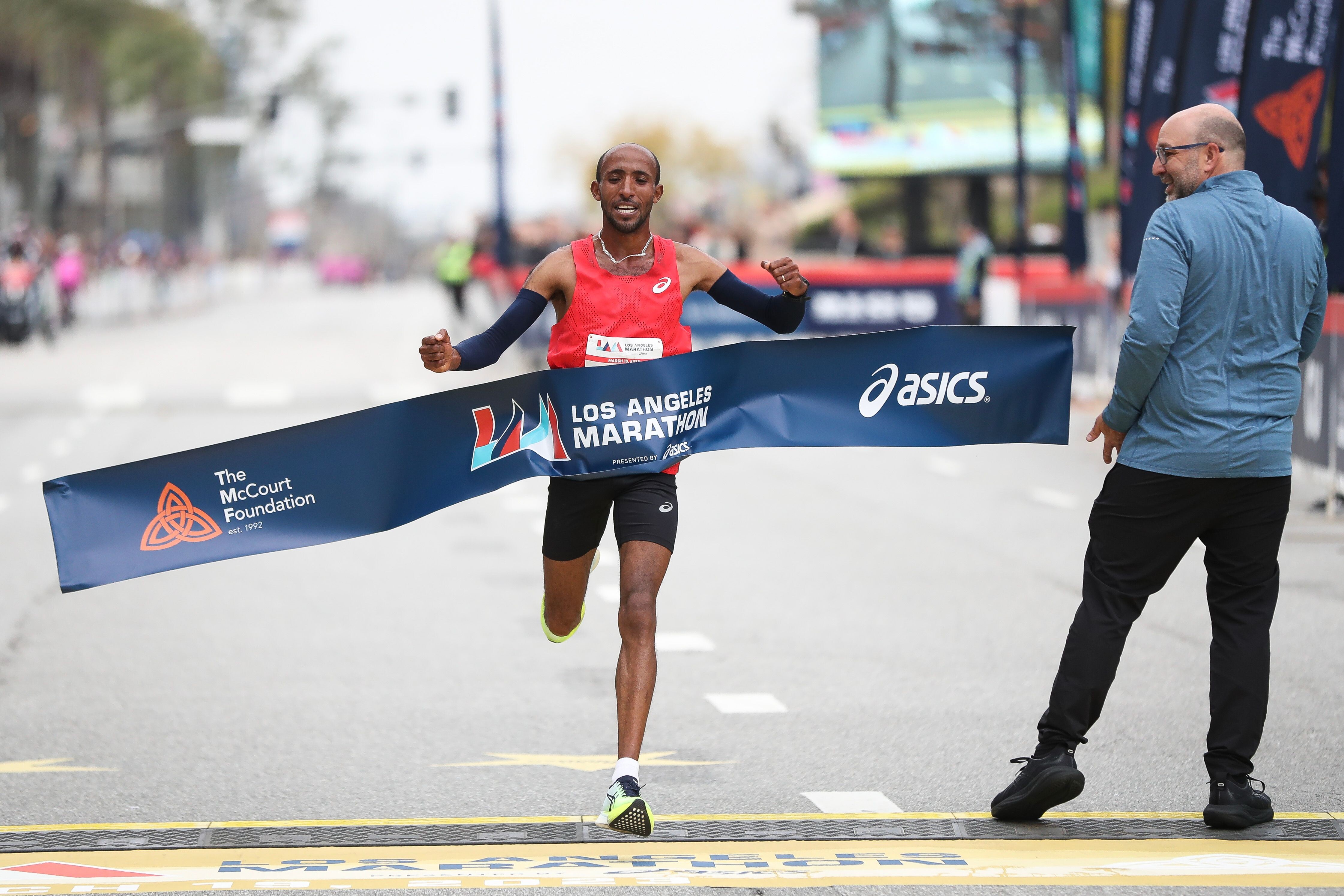
Yimer earned his first international vest in 2016, finishing fourth at the African Championships over 10,000m. The following year he hit a new level, finishing fourth at the World Cross Country Championships in Uganda, helping Ethiopia to team gold, and he went on to finish fifth in the 10,000m at the 2017 World Championships in London, clocking 26:56.11.
In 2018, there was another near-miss at a major podium, Yimer finishing fourth at the World Half Marathon Championships in Valencia, just one second behind the bronze medallist. Later that year, he returned to Valencia and performed like a man possessed, winning in a then Ethiopian half marathon record of 58:33.
As his focus turned from the track to the roads, he also changed coaches, coming under the guidance of Getamesay Molla, who works with a number of Ethiopia’s best marathoners. Molla had been a good athlete himself, if not quite a champion, and he’d trained alongside many of the country’s best, such as Kenenisa Bekele, before turning his hand to coaching in 2010.
He began working with Yimer in 2019 and has long been impressed by his protege. “Jemal is a very strong athlete, and he’s versatile,” says Molla. “He’s tough, especially for races. He’s confident in himself.”
They train at various venues on the outskirts of Addis Ababa, doing long runs at high altitude and dropping to medium altitude for faster interval sessions. Yimer typically runs about 200km per week. What impresses the coach most about Yimer?
“His consistency,” says Molla. “Every session, he does not miss.”
In 2020, Yimer made his long-awaited marathon debut. It was due to come at the Boston Marathon in April but after that race was cancelled due to the pandemic, it ended up being at the Valencia Marathon in December, but Yimer was unable to finish, having suffered an early fall.
In 2021, Boston was back on the calendar and Yimer turned in a superb debut performance there, finishing third in 2:10:38, just one second behind Lemi Berhanu in second. “My expectation for him was winning,” says Molla with a smile. “But the podium was not bad; it was good.”
The transition to the marathon was “not difficult”, says Yimer, but given his stride was better suited to shorter distances, he “had challenges after 15km, 20km” on hard long runs. In 2022, Yimer returned to Boston and finished eighth in 2:08:58, and earlier this year he claimed victory at the Los Angeles Marathon in 2:13:13. In August he finished second at the Antrim Coast Half Marathon in Northern Ireland in 58:38, teeing him up beautifully for a podium tilt at the World Athletics Road Running Championships Riga 23.
The journey to Latvia proved an eventful one, with the Ethiopian team stranded in Germany for close to a full day just two days before the race. Still, Yimer wasn’t going to use that as an excuse.
“This was not the first time for such a long journey; travelling is always up and down and that is not a reason for how I will perform in the race,” he said on the eve of the championships. “I will focus totally.”
That’s exactly what he did, with Yimer launching himself into contention at the key moment of the half marathon, when Kenya’s Daniel Simiu Ebenyo surged to the front after 16km. Yimer was the only man to go with him, but he soon found the pace too hot to handle.
Ebenyo also began to falter in the final kilometre, giving way to his teammate Sabastian Kimaru Sawe, but Yimer paid an even heavier price, dropping back to fourth. Try as he might, he was unable to summon the finish needed to overhaul Samwel Nyamai Mailu for the bronze medal, coming home fourth in 59:22.
It was a sign of how hard he’d run that Yimer had to be assisted through the mixed zone by a medic afterwards, his very best coming up just shy of a medal on the day. Still, he has a chance to make amends soon. On November 5, Yimer will line up at the New York City Marathon against a top-class field. His PB of 2:08:58 ranks him 13th, though his rivals know that’s not a true reflection of his ability.
“We can expect a good result in New York,” says Molla. “I expect he’ll be on the podium.”
A father to a two-year-old boy, Yimer will sometimes bring his son along to training and the toddler is starting to get a grasp on what his dad does for a living. Yimer knows a race like New York offers a golden opportunity to provide a better future for his family, which is part of his motivation.
“First I focus on training, then I have many plans on the business end for the future,” he says. Yimer isn’t shy about making them public: “My goal is to run fast times, to run all the major marathons, and to win world and Olympic medals.”
(10/20/2023) Views: 339 ⚡AMPby Cathal Dennehy for World Athletics
TCS New York City Marathon
The first New York City Marathon, organized in 1970 by Fred Lebow and Vince Chiappetta, was held entirely in Central Park. Of 127 entrants, only 55 men finished; the sole female entrant dropped out due to illness. Winners were given inexpensive wristwatches and recycled baseball and bowling trophies. The entry fee was $1 and the total event budget...
more...Elite women's marathoner Hall to run Manchester Road Race
Sara Hall, who was fifth in the World Marathon Championships last year, has entered this year's Manchester Road Race. This will be her first appearance in the Thanksgiving Day run.
Hall, 40, finished in 2:22:10 in the world event in Eugene, Oregon, and was the runner-up at the 2020 London Marathon in 2:22:01. Her personal-best for the 26.2-mile run 2:20:32, and 1:07:15.
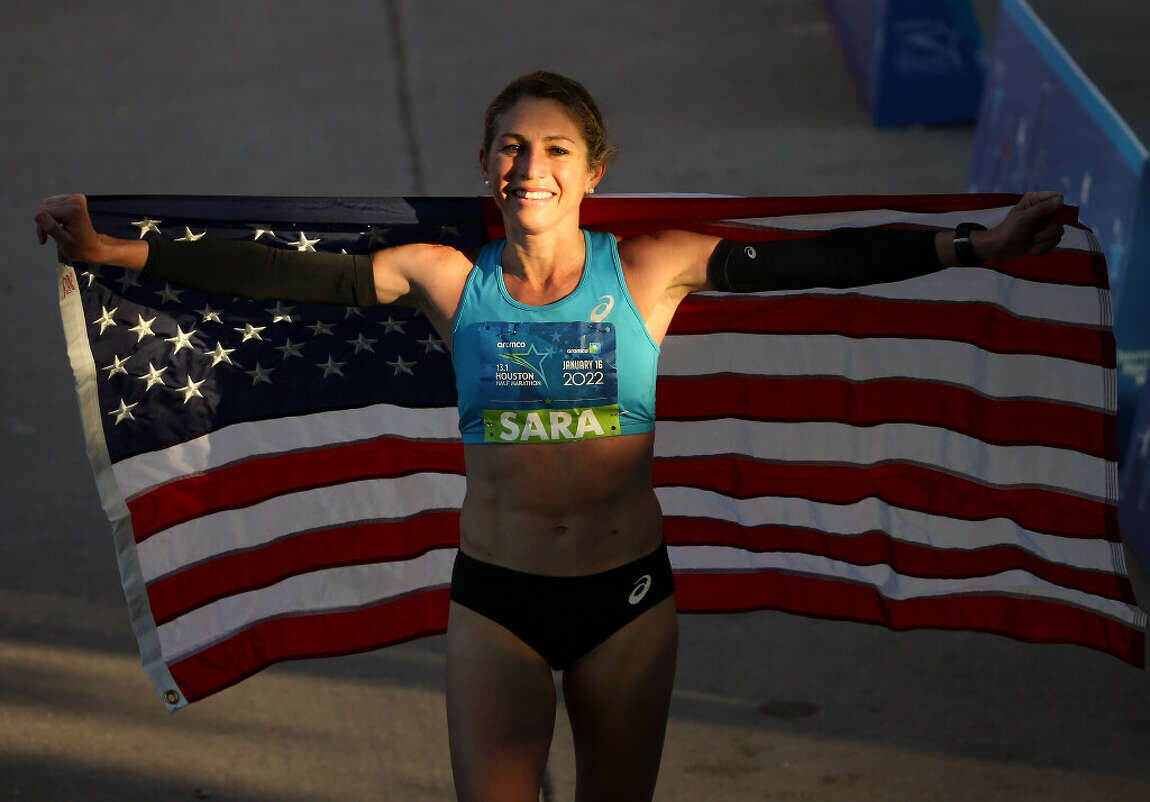
A seven-time All-American when she competed for Stanford, Hall ran the steeplechase before becoming a marathoner. She won the gold medal in the steeplechase at the 2011 Pan American Games in Mexico.
Hall is married to retired Olympic marathoner Ryan Hall. Ryan, who also competed for Stanford, set the United States records for the marathon and half marathon. In 2017, the couple adopted four young sisters from Ethiopia. The family resides in Flagstaff, Arizona.
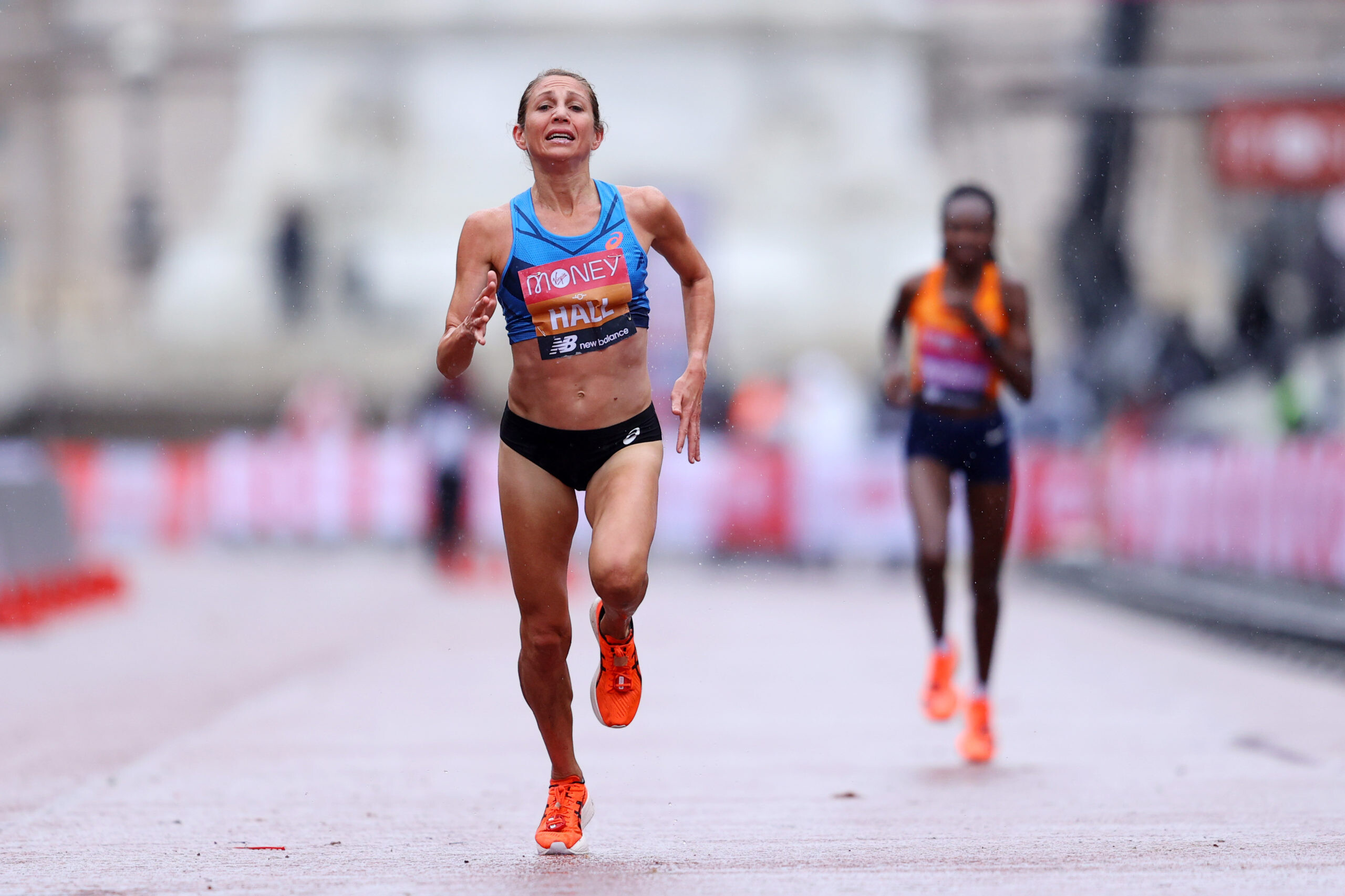
“Sara is a wonderful addition to this year’s race,” said Jim Harvey, the MRRs elite runner coordinator. “She is a very accomplished athlete and a great person.”
The 87th Manchester Road Race, which has been designated a World Athletics Label Event by World Athletics, starts at 10 a.m. on Thanksgiving Day Nov. 23. The 4.748-mile-long road race is run on a loop course through Manchester’s central district that starts and finishes on Main Street, in front of St. James Church.
(10/19/2023) Views: 403 ⚡AMPManchester Road Race
The Manchester Road race is one of New England’s oldest and most popular road races. The 86th Manchester Road Race will be held on Thanksgiving Day. It starts and finishes on Main Street, in front of St. James Church. The Connecticut Sports Writers’ Alliance recently honored the Manchester Road Race. The CSWA, which is comprised of sports journalists and broadcasters...
more...Geoffrey Kamworor is out of the New York City Marathon
Geoffrey Kamworor was looking to return to the streets of New York in November but has been ruled out of the race due to an injury.
An injury setback has forced Geoffrey Kamworor to withdraw from the New York City Marathon that was scheduled for Sunday, November 2.
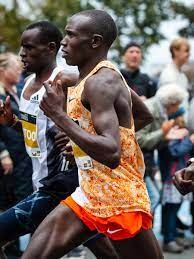
In a post on his Facebook page, the two-time New York City Marathon champion expressed his disappointment towards the same.
He was bracing up for a tough test of return to one of his favourite courses but he will have to wait for next season.
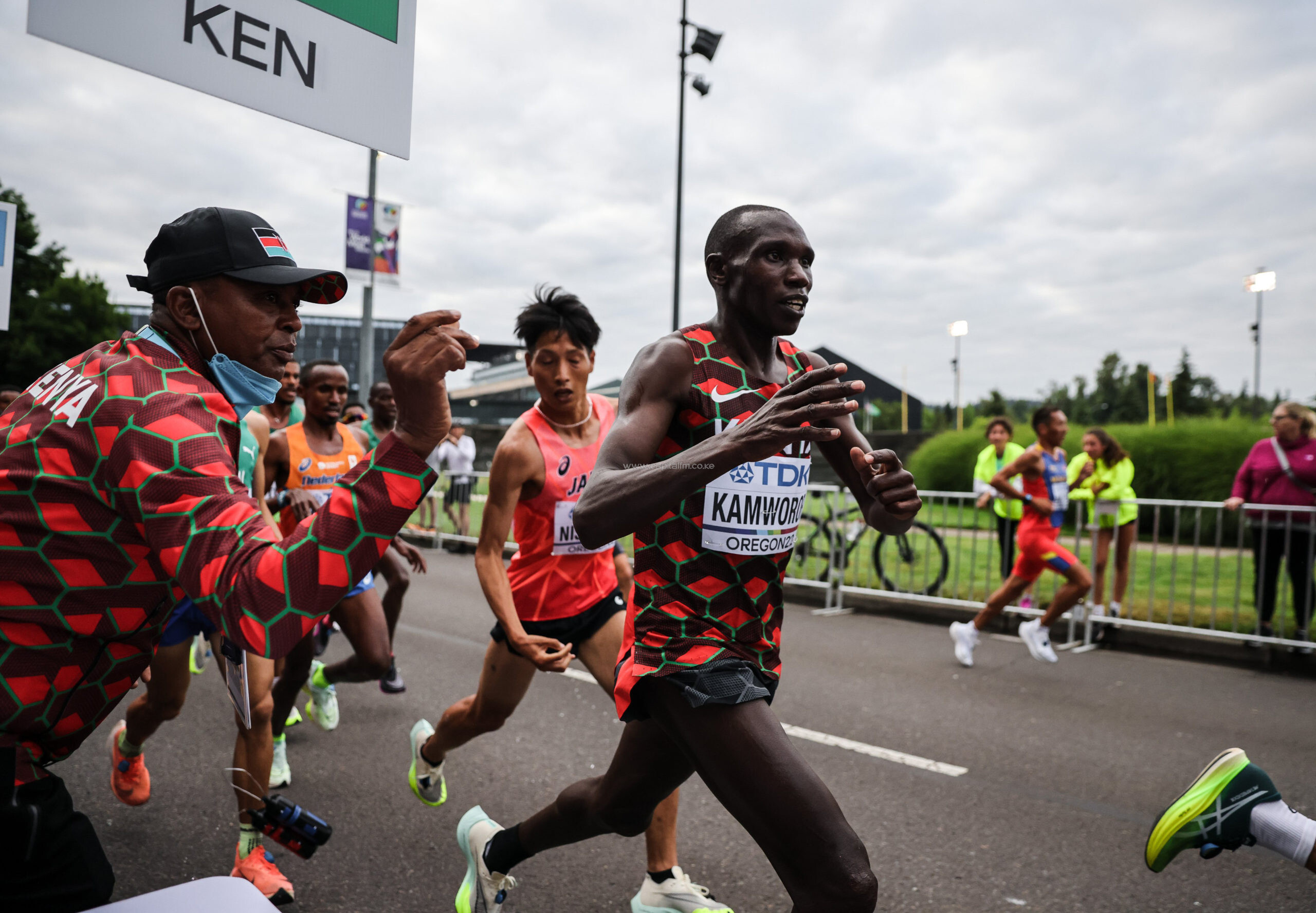
He said: “After good results in the World Cross Country Championships and the London Marathon earlier this year, I was building towards a great New York City Marathon.
Unfortunately, an injury came my way and didn't leave me any other option as to take some rest and focus towards 2024.”
Kamworor opened his season at the World Cross-country Championships where he finished fourth in the men’s senior race.
He then jetted back into the country for training ahead of the London Marathon where he finished an impressive second in a Personal Best time of 2:04:23.
Kamworor Kamworor had been battling a series of injuries in the previous years and he had just announced his return this season but things are currently not working well for him.
Things started off worse for him in June 2020 after being hit by a motorcycle. The injury saw him undergo surgery which forced him to slow down.
The three-time World Cross-country then came back to compete in 2021 but missed out on the Olympic Games.
Last year, he participated at the World Championships held in Eugene, Oregon but failed to make an impact after finishing fifth in the marathon. He had started off his season at the Boston Marathon where he finished eighth.
(10/19/2023) Views: 385 ⚡AMPby Abigael Wuafula
TCS New York City Marathon
The first New York City Marathon, organized in 1970 by Fred Lebow and Vince Chiappetta, was held entirely in Central Park. Of 127 entrants, only 55 men finished; the sole female entrant dropped out due to illness. Winners were given inexpensive wristwatches and recycled baseball and bowling trophies. The entry fee was $1 and the total event budget...
more...Fancy Chemutai to open her season at the Boston Half Marathon
Fancy Chemutai will be opening her season at the Boston 21km after a successful 2022 season.
Fancy Chemutai has been confirmed for the Boston Half Marathon scheduled to take place on Sunday, November 12.
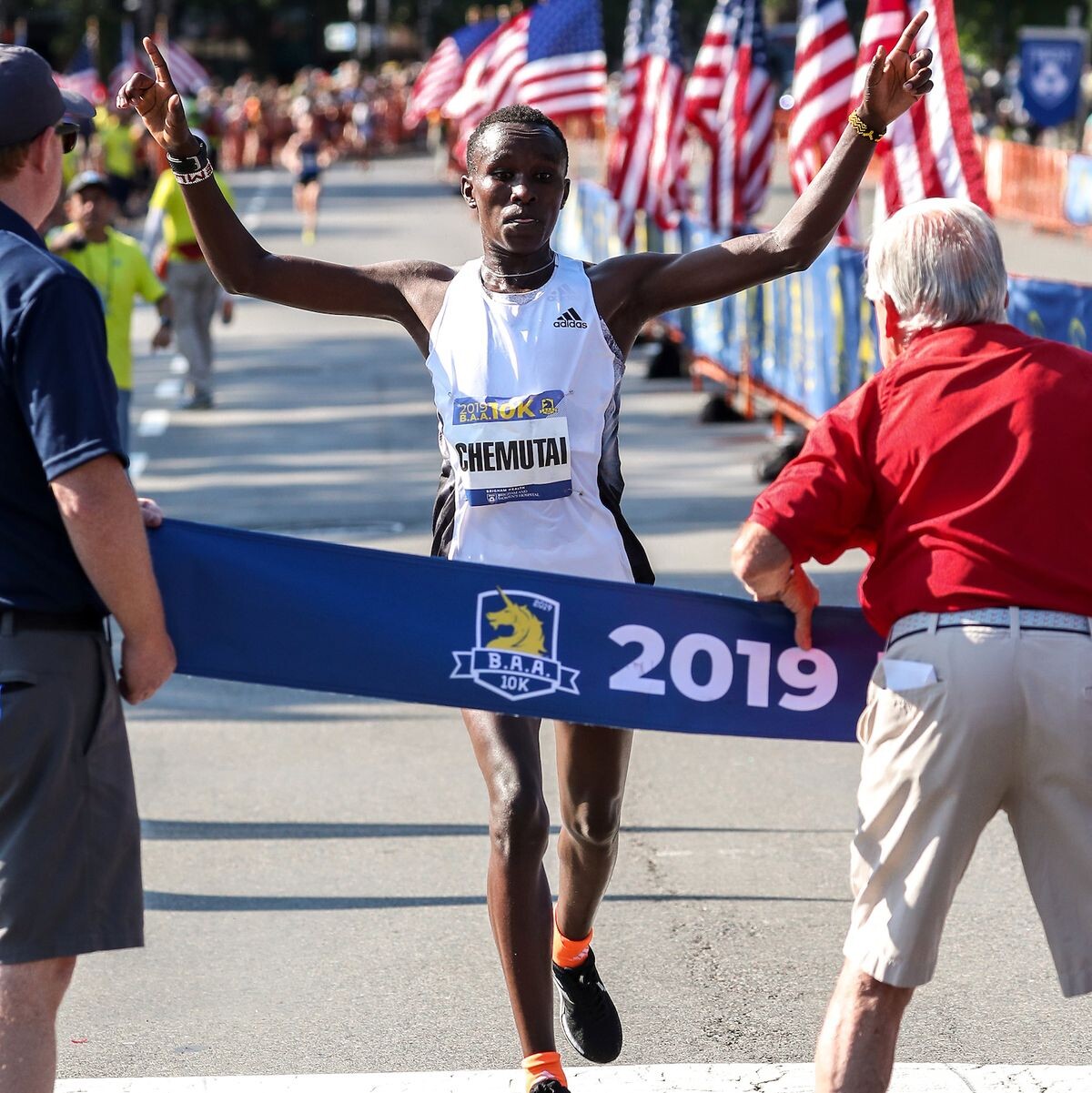
Chemutai will be opening her season at the event because she has not competed in any other race this season. Last season, the Kenyan had a quite busy season since she started a bit earlier compared to this season.
She started off her season in April, with a 13th-place finish at the Adizero Road to Records before heading to the AJC Peachtree Road Race where she finished fourth. Her final race was at the 2022 Valencia Marathon where she finished an impressive fifth.
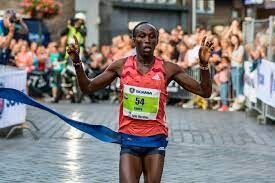
She heads into the field as the fastest with a Personal Best time of 1:04:54. However, she faces a stern test from her compatriots and Ethiopians who are also ready to rumble.
One able opponent to watch out for is Senbere Teferi of Ethiopia, the 2022 Boston 5K champion and three-time World Championships medallist who will be looking to continue her winning ways in Boston.
Another athlete who poses a threat is compatriot Rosemary Wanjiru, who claimed victory at the Tokyo Marathon earlier this year.
In the men’s field, Abel Kipchumba headlines the start list with a Personal Best time of 58:07. Shadrack Kimining, also from Kenya lines up as the second fastest in the field, and he placed fifth during last year’s edition of the event.
Mohamed El Aaraby (Morocco), Yemane Haileselassie (Eritrea), Pat Tiernan (Australia), and Amanuel Mesel (Eritrea) will bring international expertise.
Defending champion Geoffrey Koech will also be in the mix looking to win back-to-back titles.
(10/19/2023) Views: 388 ⚡AMPby Abigael Wuafula
B.A.A. Half Marathon
Dana-Farber and the Jimmy Fund have partnered with the B.A.A. in the Half Marathon for 13 years as the race’s presenting sponsor. Through this relationship, team members have collectively raised more than $5 million to support groundbreaking cancer research, and enabled Dana-Farber scientists and clinicians to positively impact the lives of cancer patients around the world. Dana-Farber runners often participate...
more...Improve your fatigue resistance with this 300m workout
One of the hallmarks of great distance runners is their fatigue resistance, even when running at high speeds. This allows them to run farther and faster. Increasing fatigue resistance is a key component of running training, and is important even for recreational runners. This 300m workout is a great way to teach your body to become more comfortable while running at higher speeds and learning to adjust your pace on the go.
There are two main goals for this workout. The first, as mentioned, is to increase your fatigue resistance (i.e., to get you more comfortable when running fast, so you can maintain that speed for longer duration). To do this, you must try to stay as relaxed as you can, even when you’re running near your top speed. This means relaxing your shoulders and face, controlling your breathing and trying to stay as smooth as possible.
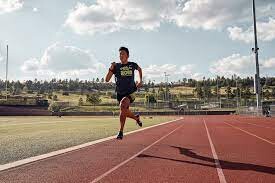
The second is to improve your cadence. Instead of running these intervals at one consistent speed, your goal is to get faster every 100 metres until you’re running near your max for the final third of the interval. By changing your pace every 100 metres, you improve your ability to get your feet down faster and prepare your body to handle your race pace.
The pacing in this workout is really important. The first 100 metres will feel slow, and it should. Resist the temptation to go out too hard, so you leave room to accelerate through the interval. Your accelerations should look like this:
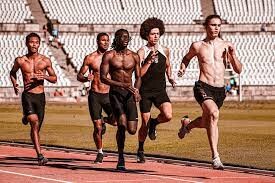
First 100m – 50 per cent effort (approximately mile pace)
Second 100m – 75 per cent effort (approximately 800m pace)
Third 100m – 100 per cent effort
This workout is designed for the track, but if you don’t have one, we recommend marking off every 100m on a flat, straight path, so you can easily see where to crank up the pace.
The workout
Warmup: 15-20 minutes of easy jogging, followed by 3-4 20-second strides
Workout: 5-10 x 300m, accelerating every 100m; 100m walk or easy jog between each interval
Cooldown: 10-15 minutes easy jog
(10/19/2023) Views: 375 ⚡AMPby Brittany Hambleton
The 26th Monthly KATA Time Trial edition was a success
The Kenya athletics training academy (KATA) monthly time trial took place today Oct 18. This was the 26th monthly KATA Time Trial held in Thika Kenya.
The weather was chilly and because of recent rains we moved the event to the roads. Our first Sprint time trial was held at another track.
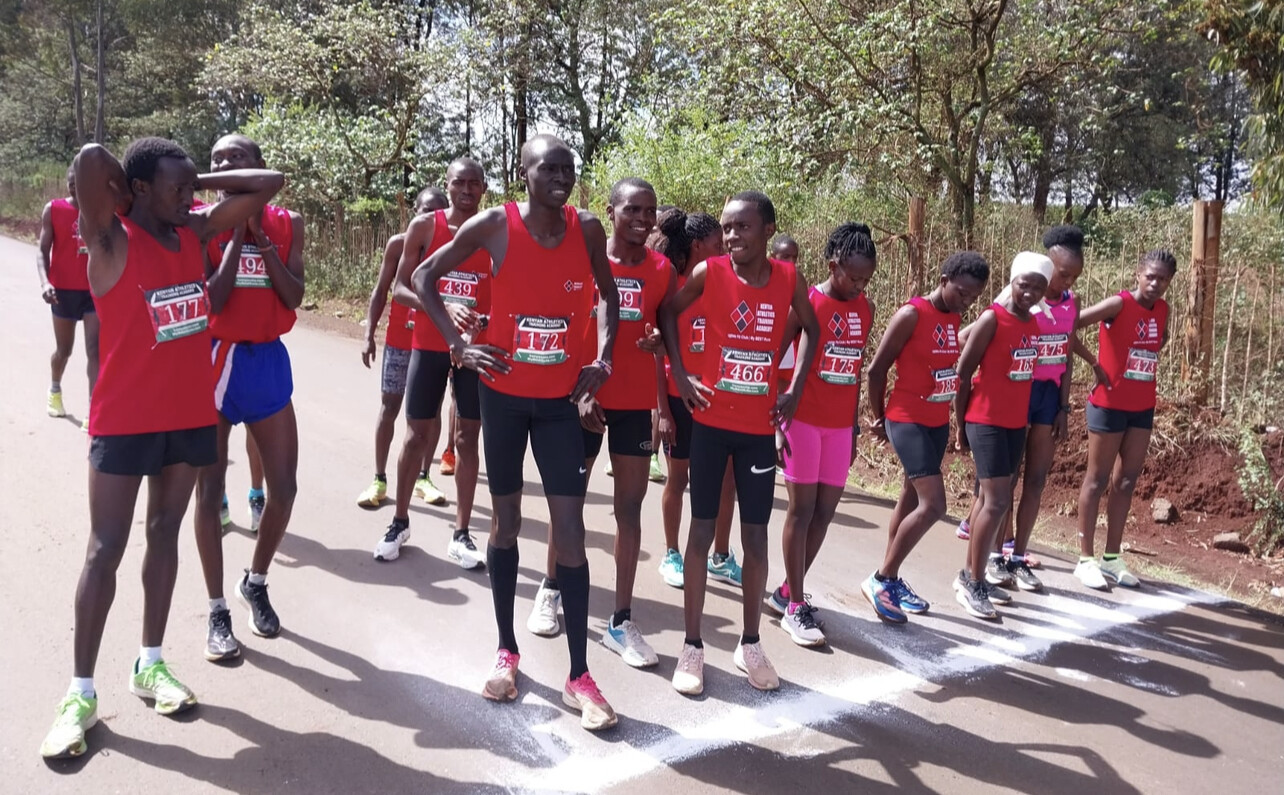
We had a total of 22 registered athletes for the 5k and 10k. Seven women and 15 men. 10 athletes took part in 5k and 12 athletes took part in 10k. The performances were impressive considering the wet chilly weather conditions.
Job kamonde was quite impressive in the 10k considering it was his first time trial at Kenya athletics training academy. He was the winner clocking 29:55. Boniface mungai improvement in the 10k was impressive, dropping his personal best from 31:25 to 30:26 finishing in 4th position.
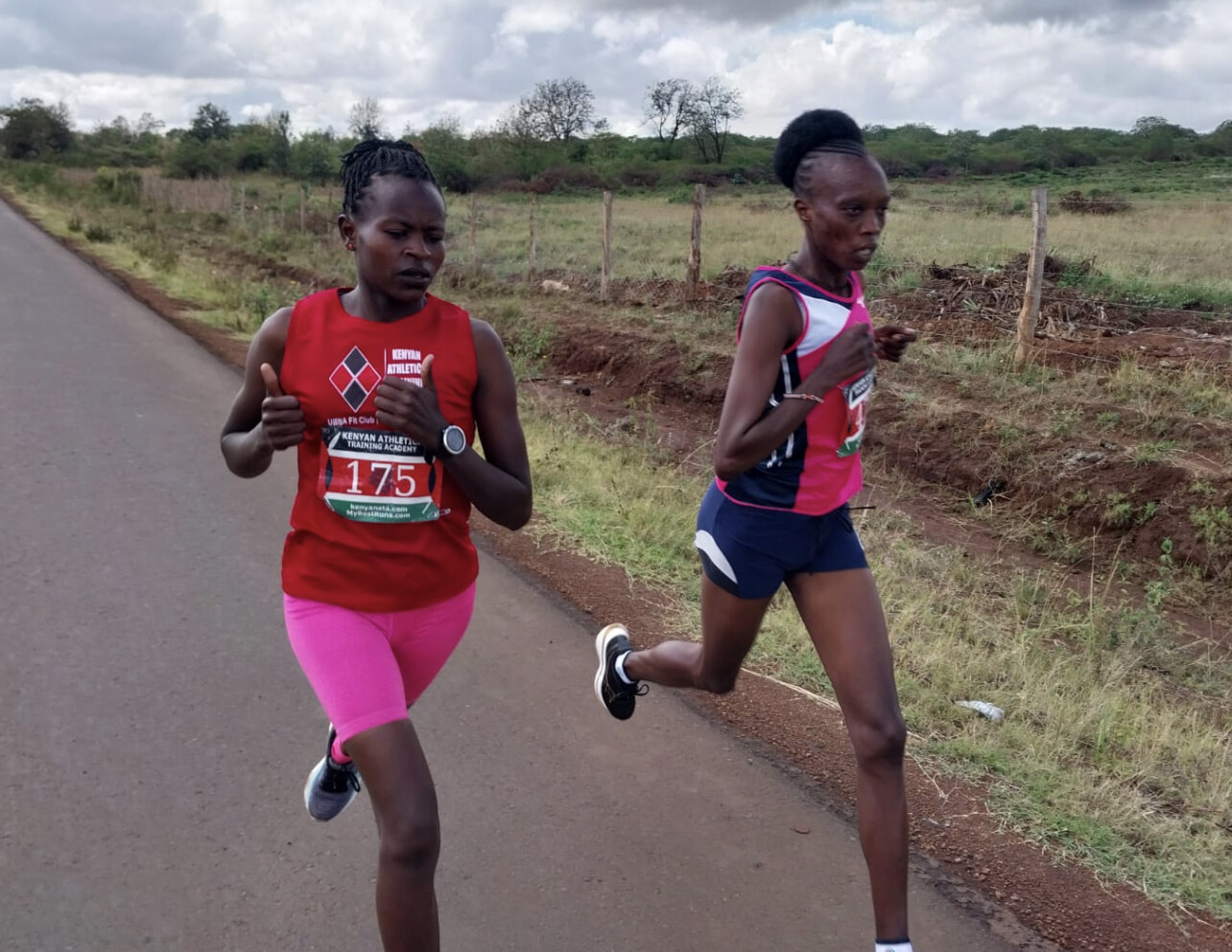
Anthony Mukundi likewise lowered his personal best from 32:08 to 31:49. All women in 5k had a slight improvement. The overall performances were impressive considering the fact that all our athletes participated at last Saturday's cross country races.
5k MEN
1. KELVIN RAGUI 466 21YRS 15;12
2. FREDRICK KIPROTICH 172 23YRS 15;29
3. CHARLES NDIRANGU 474 23YRS 15;59
4. AMOS CHIRCHIR 199 23YRS 16;22
5K WOMEN
1. LOISE WAMBUI 175 23YRS 17;29
2. KAREN CHEPKEMOI 473 23YRS 17;39
3. JECINTA MWENDE 185 22YRS 17;48
4. VIRGINIA WANJIRU 165 20YRS 18;29
5. JENIFFER MUMBI 472 23YRS 20;44
6; HANAH NJERI 180 24YRS 21;12
10K MEN.
1. JOB KAMONDE 439 23YRS 29;55
2. SAMSON NDAMBUKI 436 24YRS 30;16
3. JOHN KURIA 174 27YRS 30;25
4. BONIFACE MUNGAI 177 25YRS 30;26
5. PETER MBURU 144 26YRS 30;40
6. RAPHAEL KARITA 465 24YRS 30;44
7. ZAKARIAH KIRIKA 176 22YRS 30;50
8. EVANS KIGURU 181 28YRS 30;55
9. LEVIS KURIA 494 22YRS 31;39
10. ANTHONY MUKINDI 464 32YRS 31;49
11. ALFRED KAMANDE 178 24YRS 34;14
10K WOMEN.
1.SUSAN NJUU 472 37YRS 36;29
Today was the first KATA Time Trial for our sprinters and Middie distance runners. Our sprinters have great potential of breaking records.
Our sprinters are well discplined and up to task and the training is of high quality. "We are first camp to have an academy with sprinters, middle distance, 10k and marathoners," says Coach Julius (KATA sprint coach).
KATA SPRINTERS Time Trial Oct 18
100m women
1.Doreen Waka 12.02s
2.Shelmith Rono 12.5s
3.Sheila Awino 12.8s
100m men
1.Brian Oyugi 10.9s
2.Festus Waita 11.0s
3.Ambrose Simiyu 11.5s
4.Gerald Olela 11.6s
5.Philip Kinyanjui 11.7s
6.Douglas King'ori 11.8s
200m men
1.Benjamin Mulanda 22.8s
2.Alvin Mise 22.9s
3.Chris Mutahi 24.1s
200m women
1.Doreen Waka 25.9s
2.Shelmith Rono 28.0s
3.Sheila Awino 29.2s
400m women
1.Rahab Wanjiru 57.1s
2.Gladys Ngure 57.5s
3.Peris Chege 58.9s
4.Emma Wavinya 60.0s
400m men
1.Benjamin Mulanda 52.0s
2.Felix Ngetich 52.9s
3.Sammy Langat 53.2s
1500m women
1.Mercy Ndung'u 4.36
2.Patricia Gichuki 4.40
(10/18/2023) Views: 605 ⚡AMPby Coach John and Coach Julius
KATA Time Trial Series
The Kenyan Athletics Training Academy (KATA) in Thika Kenya stages a monthly time trial. Starting Sept 2021 this monthly event is open to anyone who would like to get an official time on a acurant course. Results will be published at My Best Runs so race directors and other interested people can see what kind of shape our participants are...
more...Two long-run workouts you’ve probably never tried
A weekly long run is a staple for most runners, and for good reason: it builds endurance and strength for longer races, is the perfect place to practise fuelling, and elevates mental toughness. Most runners keep their longer sessions at a slow, steady pace, and that is a key to injury prevention as you add mileage, but there’s no reason why you can’t occasionally add some mid-run zest.
Spicing it up a little will make the miles will fly by: just be careful to toss these sessions into the mix not more than once a month, and on a week where you have only one other harder or speedwork session. Adjust the length of your warmup, cooldown and intervals according to the goal length of your long run (these workouts are based on an approximately two-hour session).
Marathon and half-marathon effort intervals
Warm up with 10 minutes of very easy running.
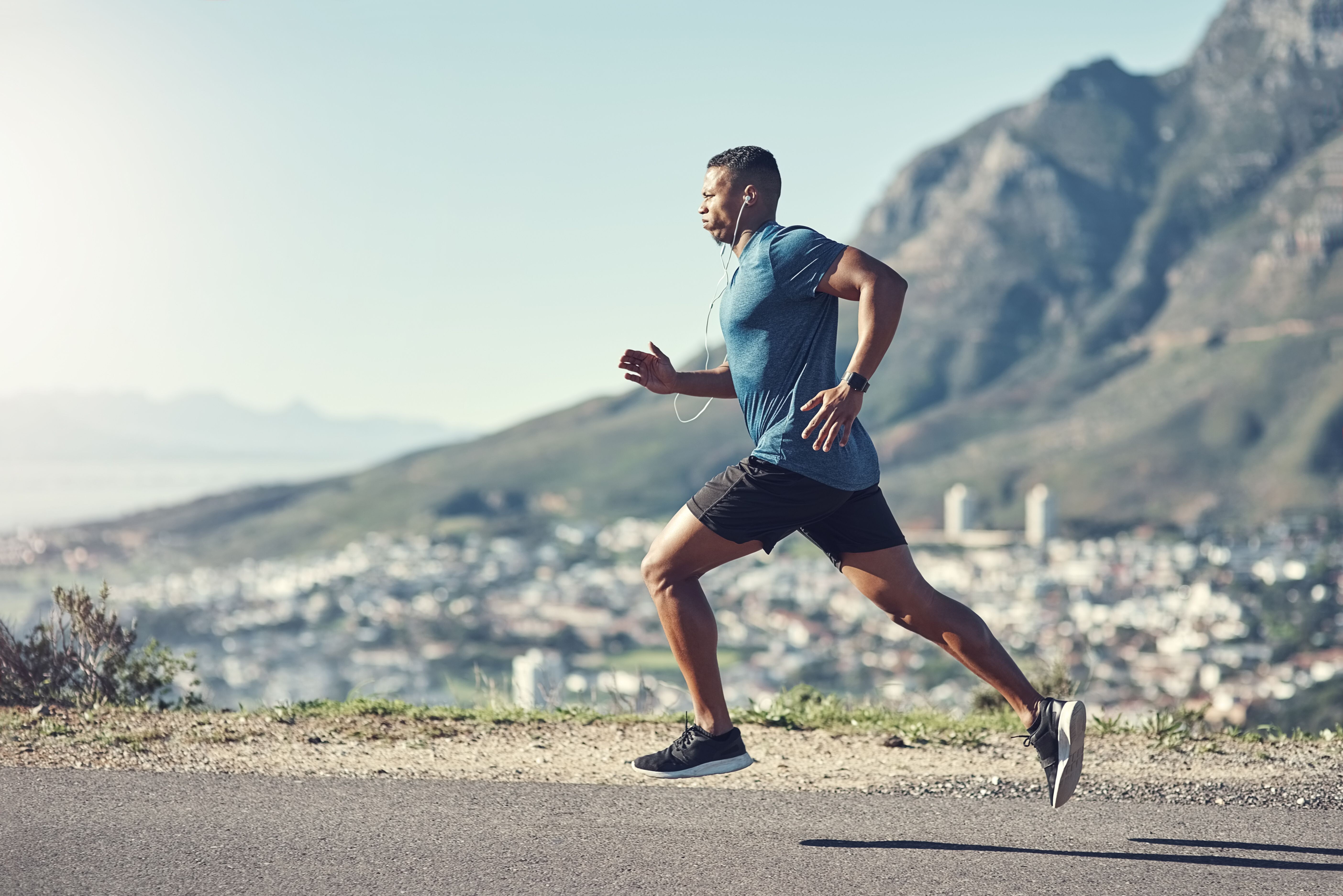
Run three x 20-minute intervals at a pace or effort that’s slightly harder than your easiest run, with five minutes of very slow recovery between each one. (If you’re new to longer runs, keep the first half to two-thirds of your run at a very easy pace.)
Run two x 12-minute sets at a marathon tempo effort (running by effort rather than pace will naturally adjust for the time already spent on your feet).
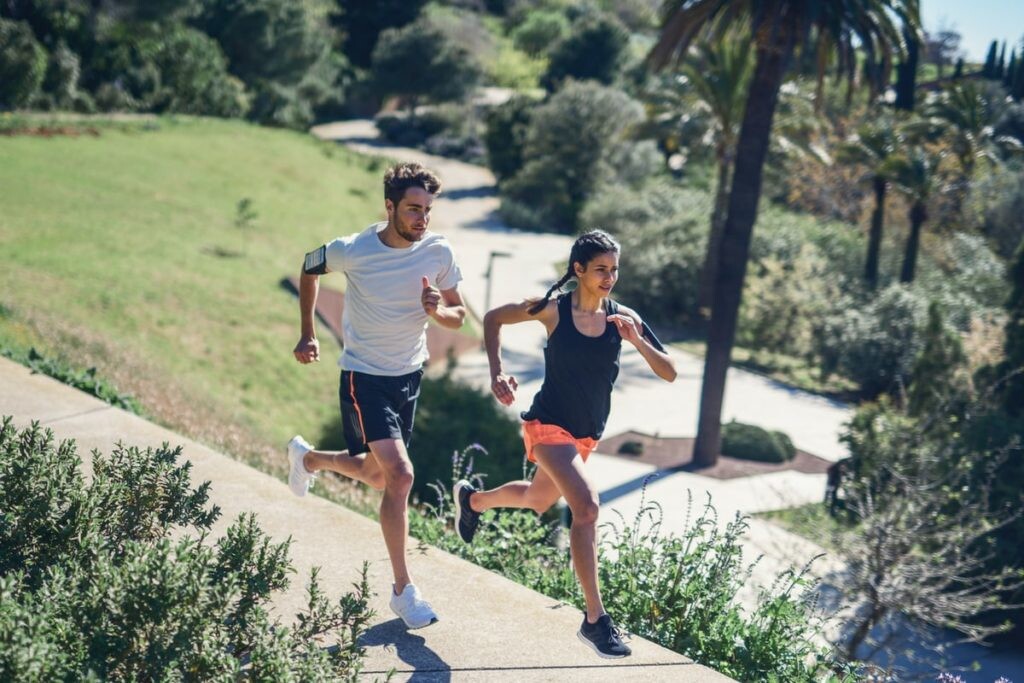
Near the end of the workout, your goal is to run at a threshold effort or pace for five minutes, adjusting slightly if you’re struggling. This section is supposed to be tough, but your goal is to challenge yourself, not injure yourself.
Pre-race challenger
Try this one a month out from your goal race, leaving plenty of time to recover, and making sure to keep the rest of the week very easy. This workout is a perfect way to test your pacing and goal effort for race day: you’ll be able to tell if you need to dial back your expected race-day pace, or crank it up a notch.
Warm up with 20 minutes of very easy running.
Run two x 20-minute intervals at an effort just slightly faster, with five minutes of easy recovery between efforts.
Pick it up for 20 minutes at a pace that’s between your marathon and half-marathon effort–it should feel somewhat challenging, but like it can be maintained for the duration; recover with five minutes of very easy running.
Shift into five x two-minute intervals at 10K pace with two minutes of recovery between efforts (if you’re still up for more, add up to five more intervals).
Finish your run with a very easy cooldown.
Make sure to hydrate well during these sessions and remember to keep the rest of your week fairly easy. Follow one of these challenging sessions with a rest day or some very gentle recovery running.
(10/18/2023) Views: 337 ⚡AMPby Keeley Milne
Defending Champions, American Record Holders & Global Stars Highlight 2023 B.A.A. Half Marathon Professional Field
The Boston Athletic Association (B.A.A.) announced today a star-studded professional field for the 2023 B.A.A. Half Marathon presented by Dana-Farber Cancer Institute and the Jimmy Fund. Defending champions Viola Chepngeno, Geoffrey Koech, and Jenna Fesemyer all return, while American half marathon record holder Keira D’Amato will take on the challenging course for the first time on Sunday, November 12. The B.A.A. Half Marathon starts and finishes at Franklin Park and runs along the Emerald Necklace Park System.
“As one of the most competitive half marathons in the country, we’re eager to bring many of the best open, wheelchair, and Para athletes in the world to Boston for November’s B.A.A. Half Marathon presented by Dana-Farber Cancer Institute and the Jimmy Fund,” said Jack Fleming, President and CEO of the B.A.A. “Nearly 9,000 athletes will take to the roads, led by some of the fastest and most decorated competitors in event history.”
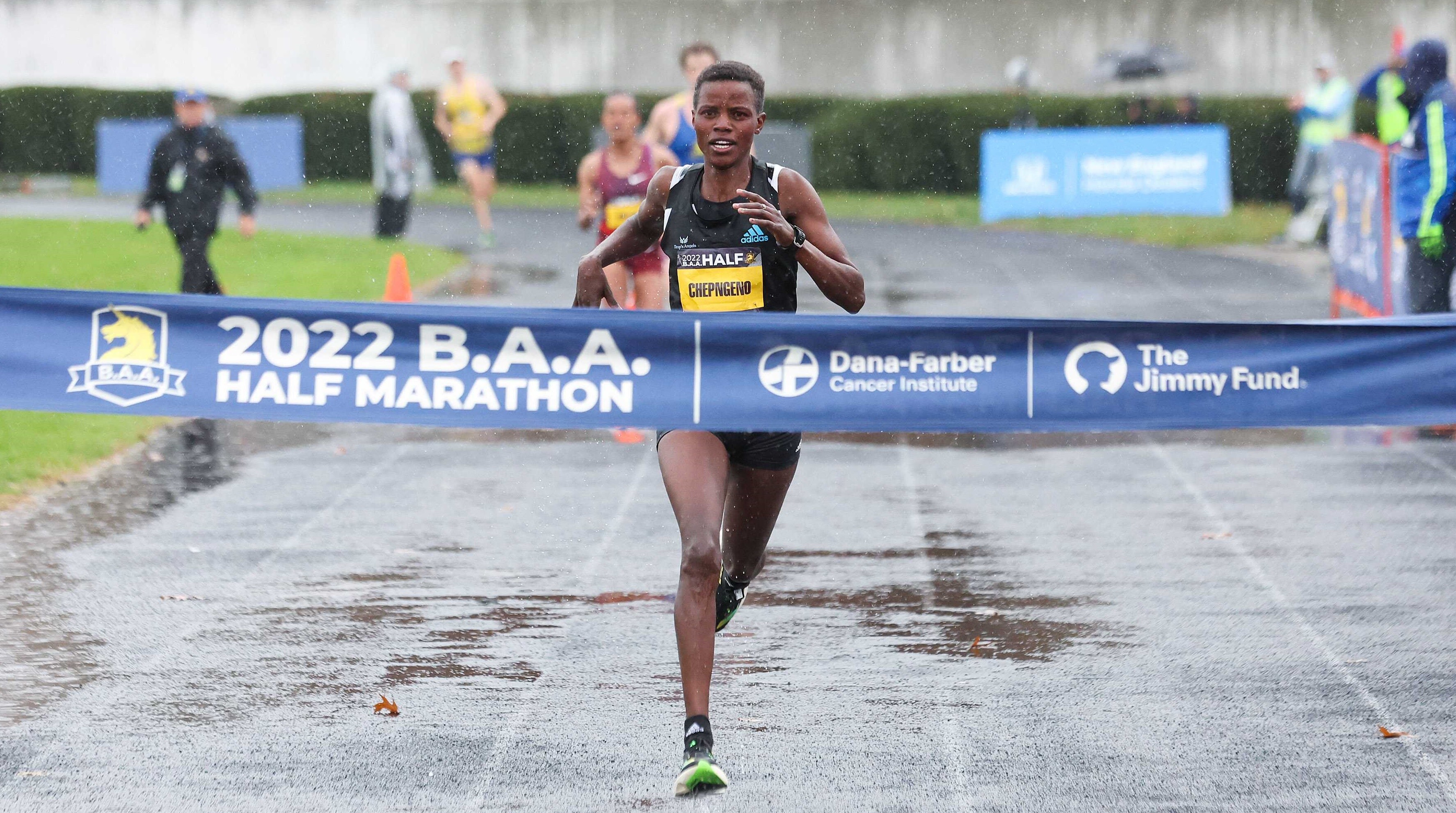
In 2022, Chepngeno (Kenya), Koech (Kenya), and Fesemyer (USA) won the women’s open, men’s open, and women’s wheelchair divisions, respectively, while Marko Cheseto and Jacky Hunt-Broersma (both USA) persevered through rain to finish atop the podium in the Para Athletics Division. To repeat the feat, all will square off against a field that includes national record holders and global medalists.
Senbere Teferi of Ethiopia, the 2022 B.A.A. 5K champion and three-time world championships medalist, looks to continue her winning ways in Boston. She’ll battle Tokyo Marathon champion Rosemary Wanjiru, 2019 B.A.A. 10K winner Fancy Chamutai, world cross country silver medalist Tsigie Gebreselama, last year’s runner-up Bosena Mulatie, and two-time B.A.A. Half Marathon second place finisher Cynthia Limo.
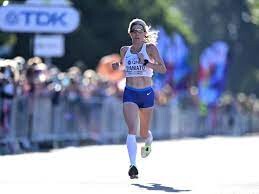
Four Americans who competed at the World Athletics Championships in Budapest in August will toe the line, including D’Amato, Lindsay Flanagan, Susanna Sullivan, and Natosha Rodgers. D’Amato set the national half marathon record of 1:06:39 at this year’s Gold Coast Half Marathon in Australia, and along with Flanagan and Sullivan made up Team USA at the World Championships Marathon. Rodgers raced the 5,000m and 10,000m on the track in Budapest, finishing 14th in the latter event. Rachel Schneider Smith, a 2021 Olympian at 5,000m for Team USA, will be making her B.A.A. Half Marathon debut.
Ten men with sub-61 minute personal bests will line up for the B.A.A. Half Marathon. Abel Kipchumba owns the fastest lifetime best in the field (58:07), while Shadrack Kimining of Kenya, second fastest in the field, placed fifth in 2022. Mohamed El Aaraby (Morocco), Yemane Haileselassie (Eritrea), Pat Tiernan (Australia), and Amanuel Mesel (Eritrea) bring international expertise. The fastest American men’s entrants are Nadir Yusuf (1:03:23), Kevin Koski (1:03:35) and Ryan Cutter (1:03:54) and sub-2:10 marathoner Ian Butler.
Dedham, Mass.-native Brian Reynolds, who set a world record at last year’s B.A.A. Half Marathon in the T62 (lower-limb impairment) category, returns, as does Marko Cheseto (T62) who ran 1:24:54 in 2022. Jacky Hunt-Broersma, last year’s women’s T62 champion, and Liz Willis, a three-time Boston Marathon T62 winner, will compete as well.
In the wheelchair division, Fesemyer set a course record 59:50 in 2022 to become the first women’s wheelchair athlete ever to break one hour in race history. Fellow 2022 women’s wheelchair podium finishers Yen Hoang (second place) and Michelle Wheeler (third) return as well.
James Senbeta and Hermin Garic, veterans of many B.A.A. events, headline the men’s wheelchair field. Garic was victorious at this year’s B.A.A. 10K.
The B.A.A. Half Marathon course runs along the picturesque Emerald Necklace Park System, past landmarks such as the Arnold Arboretum, Jamaica Pond, and Franklin Park Zoo, before finishing at White Stadium in Franklin Park. The B.A.A. Half Marathon is a family-friendly event for athletes and spectators of all ages. Free youth events will be offered on race morning within Franklin Park, including races and medals for all.
Dana-Farber Cancer Institute and the Jimmy Fund has partnered with the B.A.A. Half Marathon since 2003 as the race’s presenting sponsor and exclusive charity team. Through this relationship, Dana-Farber runners have collectively raised more than $8 million to support groundbreaking cancer research, and enabled Dana-Farber scientists and clinicians to positively impact the lives of cancer patients around the world. In advance of the 2023 event, 640 Team Dana-Farber athletes have raised $375,000 to date.
(10/18/2023) Views: 383 ⚡AMPB.A.A. Half Marathon
Dana-Farber and the Jimmy Fund have partnered with the B.A.A. in the Half Marathon for 13 years as the race’s presenting sponsor. Through this relationship, team members have collectively raised more than $5 million to support groundbreaking cancer research, and enabled Dana-Farber scientists and clinicians to positively impact the lives of cancer patients around the world. Dana-Farber runners often participate...
more...Kenyan duo headlines strong fields for Istanbul Marathon
The Kenyan duo is bound to face tough opposition from opponents who will also be searching for glory in the streets of Istanbul.
The duo of Reuben Kipyego and Beatrice Cheptoo headline strong fields for the Istanbul Marathon scheduled for Sunday, November 5.
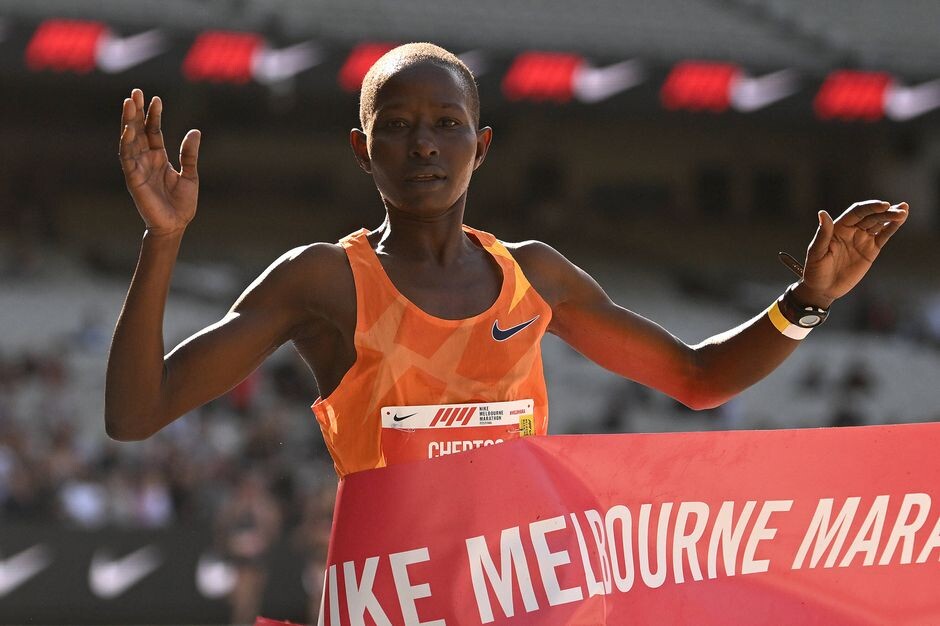
Kipyego is the fastest in the men’s field with a Personal Best time of 2:03:55. The Kenyan is also the fastest runner ever entered into the Istanbul Marathon.
The 27-year-old Kenyan achieved his personal best in Milan where he was runner-up in 2021. He finished third at the Rotterdam Marathon with 2:05:12 in 2022. It will be the first time the Kenyan competes in Istanbul and he will face a tough field.
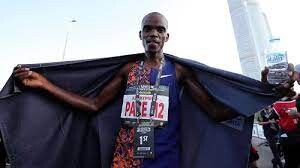
Ethiopia’s Gadise Shumie currently is the second fastest runner on the start list with a PB time of 2:04:59. With this time he won the Sevilla Marathon earlier this year, improving his former personal best by well over four minutes.
Although already 31 years old his international career only began two years ago, when Shumie won his debut marathon in Montreal with 2:09:25. He will travel to Istanbul unbeaten in the marathon so far.
On his part, Robert Kipkemboi will enjoy the mastery of the course since it was in Istanbul where he dropped his last remaining rival a year ago and went on to win the race in 2:10:18.
He will be returning as the defending champion joined by compatriot Moses Koech who looks promising among a number of debutants.
With regard to her international career, Beatrice Cheptoo can still be considered a newcomer. She ran her first race outside Kenya less than 24 months ago when she finished third in Malaga with 2:25:20.
A year ago, she took the Melbourne marathon in January and then improved significantly to 2:22:28 when she was third in Doha.
With this time the Kenyan currently is the fastest woman in the field. 23-year-old Sifan Melaku will be looking to challenge the 30-year-old Kenyan.
When the Ethiopian clocked her PB of 2:23:49 in Seville over three years ago she had just turned 20. This summer Melaku showed fine form when she won the Stockholm Marathon.
Meanwhile, including races at shorter distances, a total of 45,000 runners are expected to take part in the 45th edition of the Türkiye Is Bankasi Istanbul Marathon.
Around 4,500 of them will run the classic distance. Turkey’s major marathon race features a unique course over two continents, starting in Asia and finishing in Europe.
(10/18/2023) Views: 376 ⚡AMPby Abigael Wuafula
N Kolay Istanbul Marathon
At the beginning, the main intention was simply to organise a marathon event. Being a unique city in terms of history and geography, Istanbul deserved a unique marathon. Despite the financial and logistical problems, an initial project was set up for the Eurasia Marathon. In 1978, the officials were informed that a group of German tourists would visit Istanbul the...
more...Kenyan Irine Cheptai the latest addition to deep Valencia Half Marathon women's field
The Valencia Half Marathon will be Cheptai's second race of the season.
Irine Cheptai will be looking to extend her winning streak after being a late addition to the 2023 Valencia Half Marathon scheduled for Sunday, October 22.
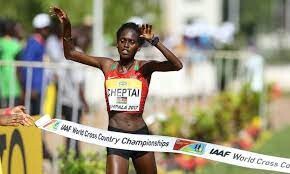
Cheptai has only competed once this season, at the Copenhagen Half Marathon where she dominated, clocking 1:05:53 to win the race.
The 31-year-old will be competing in the streets of Valencia for the first time and will be banking on her half marathon experience on other courses to also impress in Spain’s capital.
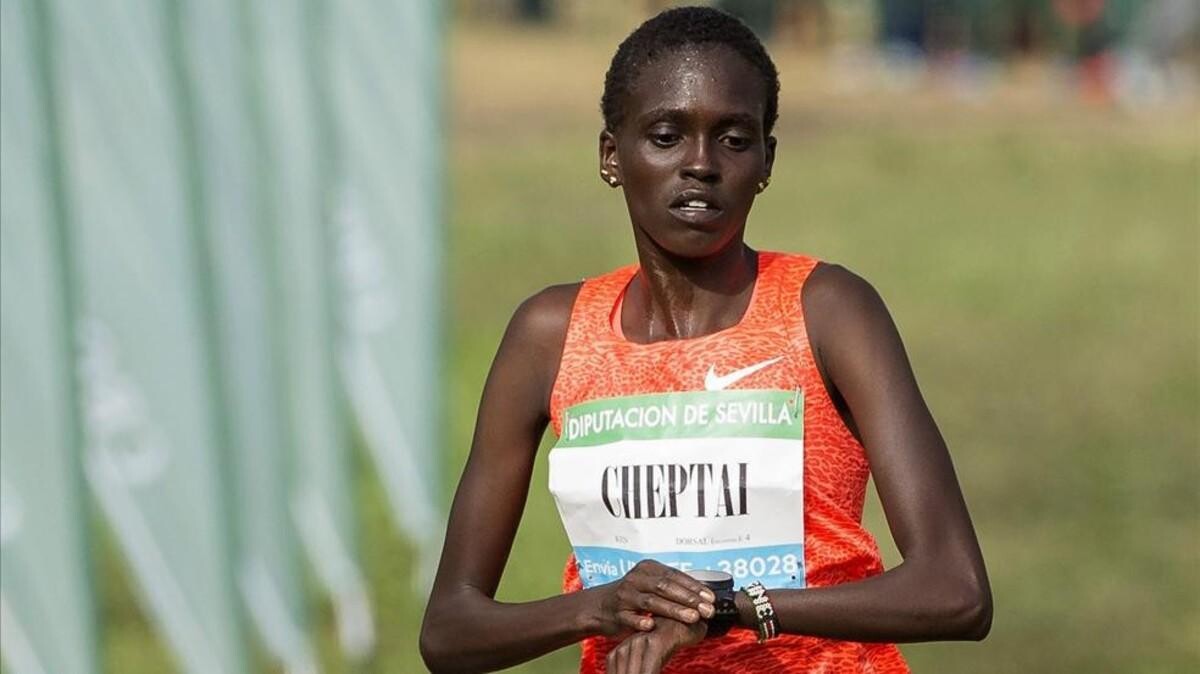
Last year, she had a busy season as compared to this year where she will only be racing twice. In 2022, Cheptai opened her season with second-place finishes at both the New York City Half Marathon and Prague Half Marathon.
The Commonwealth Games 10,000m silver medalist then went ahead to win the TCS World 10K Bengaluru before heading to the 2022 National Trials for the World Championships and Commonwealth Games.
Before competing at the Commonwealth Games held in Birmingham, Cheptai went to the AJC Peachtree Road Race and finished second, and then she finished second in Birmingham too.
She later won the Birell Prague Grand Prix and ended her season with a win at the Vedanta Delhi Half Marathon, one of her favorite courses.
She still seems to be in good shape after opening her season late and being able to secure a resounding victory. However, the field in Valencia is nothing to play around with.
She will face off against former World marathon champion Gotytom Gebreslase. The Ethiopian will be competing in her second Half Marathon race after opening her season with a second-place finish at the Ras Al Khaimah Half Marathon.
Cheptai will also enjoy good company from her compatriots including the World Half Marathon silver medalist Margaret Chelimo, and Janet Chepng’etich.
(10/18/2023) Views: 258 ⚡AMPby Abigael Wuafula
Rick Rayman, 77, completes his 400th marathon at TCS Toronto Waterfront Marathon
On Sunday at the TCS Toronto Waterfront Marathon, Rick Rayman, a professor of dentistry at the University of Toronto, marked his 400th marathon finish. Rayman is 77, and not only has he now completed 400 marathons, but he has participated in every single Toronto Waterfront Marathon in the race’s 34-year history.
As if that weren’t enough, Rayman has also run every single day for the past 44 years and 10 months–a daily run streak that’s topped by only one individual in Canada, according to runeveryday.com. (That’s Simon Laporte of Notre-Dame des Prairies, Que., whose streak is three years longer. Rayman is #20 on the international run streak list.) “I don’t know if the 19 runners ahead of me have run as many marathons as I have, but who cares?” he says, adding, “The older and slower I get, the more notoriety I get.”
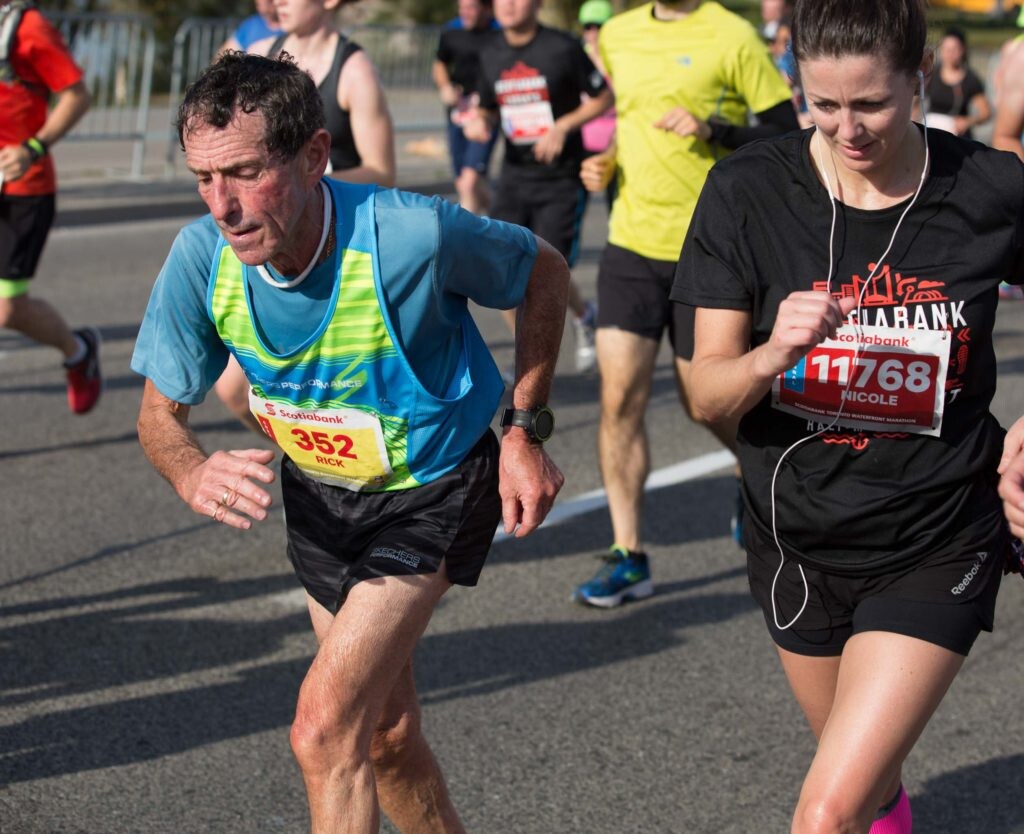
On Dec. 10, he’ll celebrate 45 years of running without missing a single day. He runs for at least half an hour, though some days he runs for an hour or two. And he takes care to add that he never runs on a treadmill–though he has participated in 10 indoor marathons in the past, including six at York University, three at the University of Toronto’s Hart House and one the SkyDome (now the Rogers Center).
“It’s such a great marathon!” Rayman says of the Toronto race, even though he struggled with back pain in the second half, most of which he walked. “I can run 12 miles (or 20 km) without any pain,” he says. When asked if he’s ever considered switching to the half-marathon, he replies, “Never.”
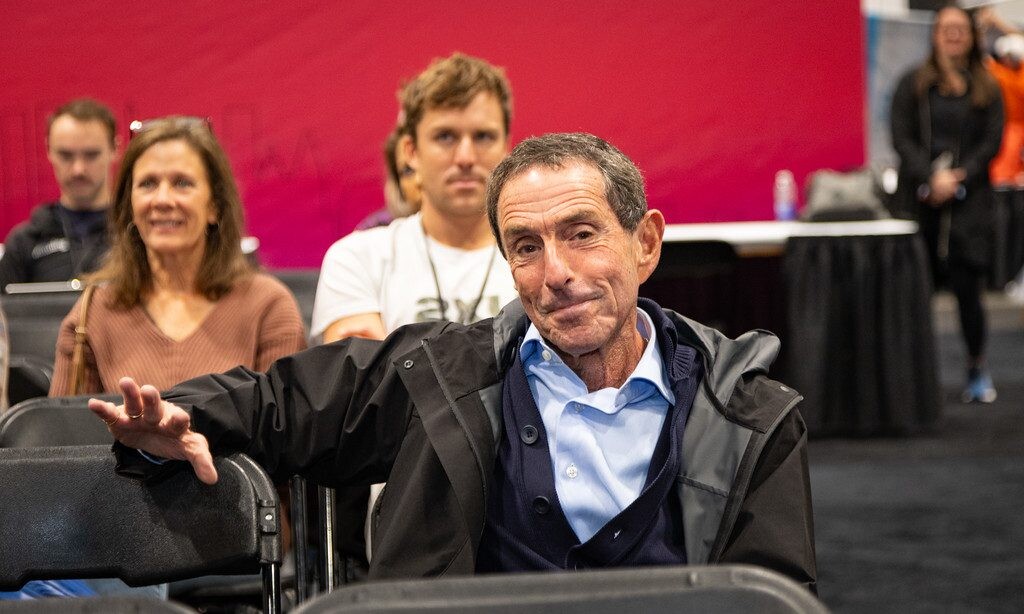
“It’s a good question,” he concedes, “because my half marathon time is considerably better than my full. But I enjoy the challenge of the marathon.” Rayman was the only individual in the M75-79 age category.
Over the years, Rayman has seen a few changes at the Toronto Waterfront Marathon. The technology for tracking runners on the course, in particular, has evolved considerably since the early days, and he enjoys the recent changes to the course, which allow midpackers and back-of-the-packers like himself to see the elites running past in the other direction on Wellington Street and Eastern Ave. He credits race director Alan Brookes and his staff at Canada Running Series with putting on a world-class event.
Rayman admits he’s slowing down. “I’m not going to do another marathon this year,” he says, adding that next year, he has plans to run the Fort Lauderdale Marathon in February, Ontario’s Georgina Marathon in the spring, the Buffalo Marathon in May and the marathon at the Niagara Ultra in June. “I did 11 [marathons] this year; I might cut that in half next year. Maybe six or seven.”
Regardless, you can catch him running every day, rain or shine, from his home in North York. “I’ll keep doing it until I can’t,” he says.
(10/17/2023) Views: 362 ⚡AMP
by Anne Francis
TCS Toronto Waterfront Marathon
The Scotiabank Toronto Waterfront Marathon, Half-Marathon & 5k Run / Walk is organized by Canada Running Series Inc., organizers of the Canada Running Series, "A selection of Canada's best runs!" Canada Running Series annually organizes eight events in Montreal, Toronto and Vancouver that vary in distance from the 5k to the marathon. The Scotiabank Toronto Waterfront Marathon and Half-Marathon are...
more...Why Mary Moraa dedicated her world title to Hellen Obiri
Mary Moraa has explained why she dedicated her World 800m title to the reigning Boston Marathon champion Hellen Obiri.
World 800m champion Mary Moraa has disclosed the reason why she dedicated her title to her mentor Hellen Obiri.
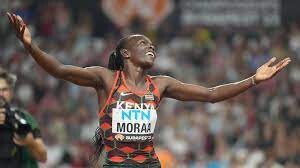
The Commonwealth Games champion singled out Obiri, a two-time World 5000m champion, as a great pillar in her career.
Speaking to Nation Sport, Moraa noted that she sees Obiri as her elder sister and she always checks up on her.
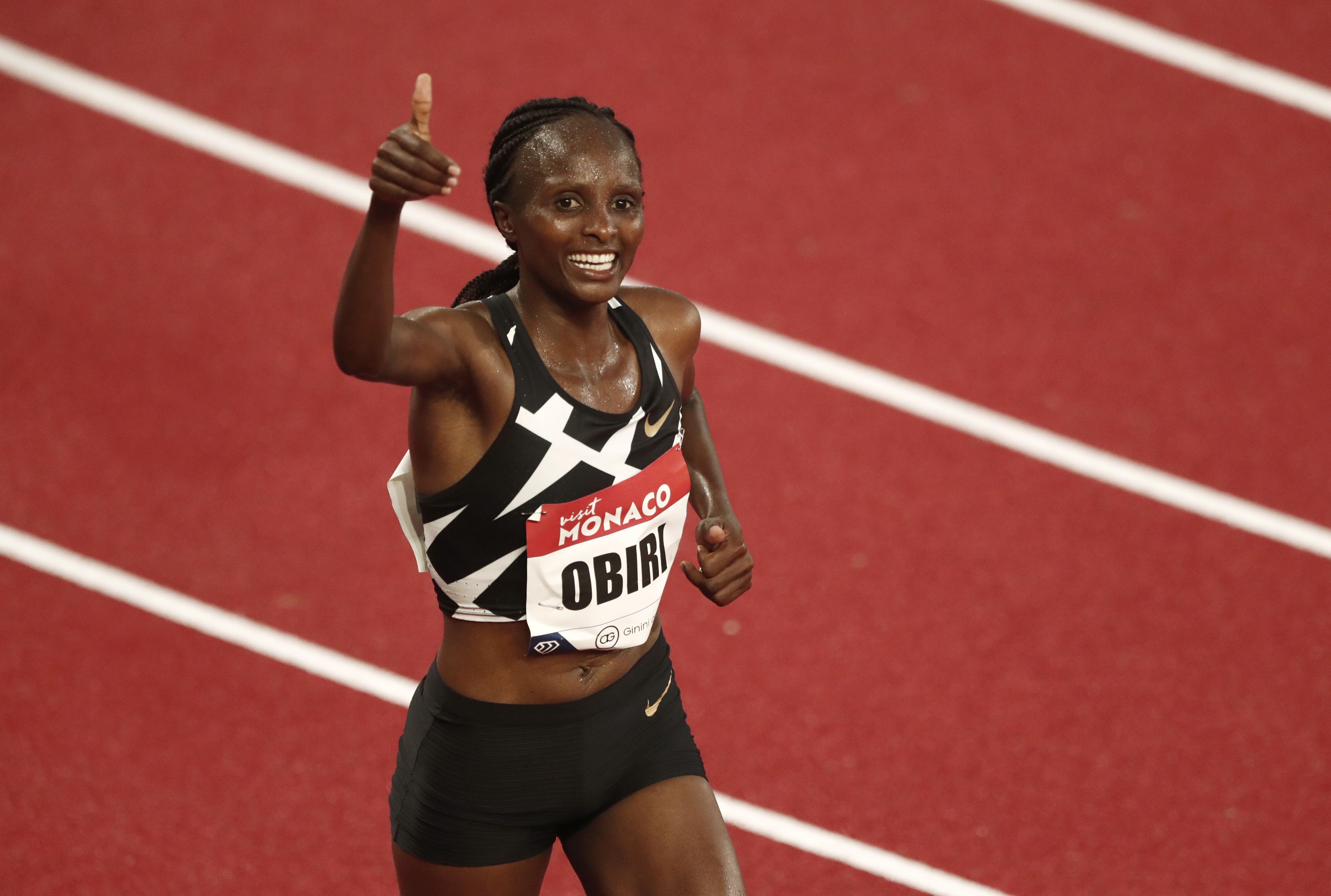
Obiri has played a vital role in Moraa’s career since she gifted Kisii Express her first spikes when she began her professional career. The Boston Marathon champion also encouraged Moraa to switch from the 400m to the 800m where she is currently dominating.
“I want to single out Hellen Obiri who has been encouraging me to be consistent on the track as the person who ensured I clinched the gold.
"Obiri is my elder sister and mentor who always checks on me hence I am proud of her,” Moraa said during her heroic homecoming party at the Ichuni grounds in Nyaribari Masaba constituency.
Meanwhile, at the World Championships in Budapest, Hungary, Moraa was in a class of her own as she destroyed a strong field to clinch top honours in the 800m race.
She clocked a Personal Best time of 1:56.03. Great Britain’s Keely Hodgkinson and USA’s Athing Mu finished second and third respectively in the hotly contested race.
Owing to her win, she became just but the third Kenyan to win the 800m on the global stage after Janeth Jepkosgei and Eunice Sum who won the titles during the 2007 and 2013 editions of the World Championships.
Moraa was also on fire this season, only losing one 800m where she finished fourth at the Prefontaine Classic, the final Diamond League Meeting.
(10/17/2023) Views: 388 ⚡AMPby Abigael Wuafula
Omanyala sets new target for Paris 2024 Olympic Games
Africa’s fastest man Ferdinand Omanyala has set a new target for the forthcoming 2024 Paris Olympic Games.
The African 100m record holder said he is targeting gold at the Paris Olympic Games as he heads into the season with great motivation.
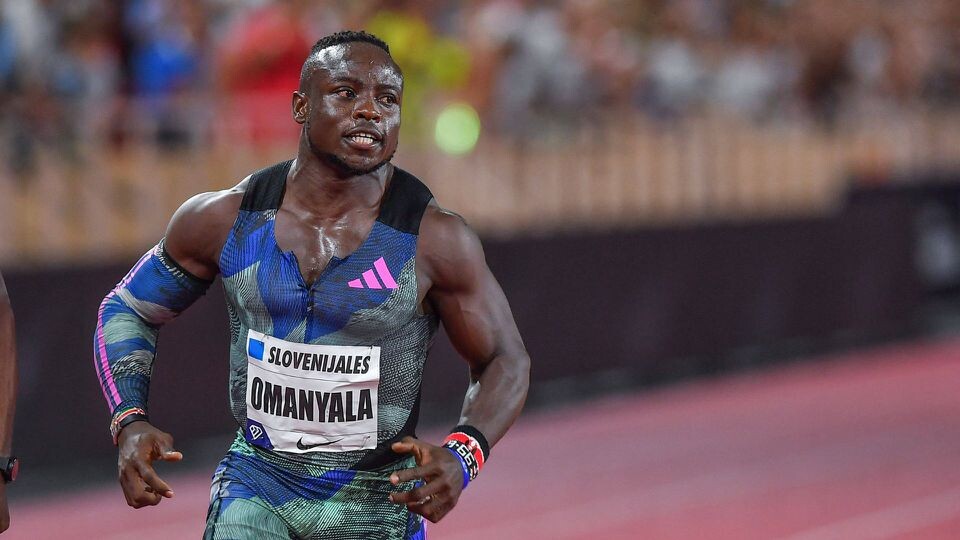
The Paris 2024 Olympics are scheduled for July 26 to August 11 and it is expected to host 10,500 athletes.
The world number nine said this during the launch of an Athletics Centre of Excellence at St. Joseph’s Boys national school on Monday.
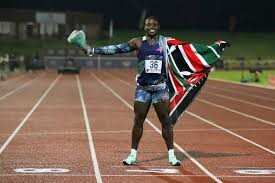
The sprinter also added that his next target was to run a time of 9.66 seconds but was quick to add that he will have to work hard to attain that threshold.
“I am going to the Olympic season with great motivation. If you see me win that gold, be happy because it’s coming home. My next aim is to run 9.66 then after that 9.55,” he said.
Omanyala also said he would be opening a sprints school to help train young upcoming athletes so they may be able to grace the international stage.
“We are starting a school for sprints next year and I am pleased to announce that St. Joseph's will be the first benefactor of this program as we aim to help the youth horn their talents in athletics,” he noted.
The sprinter also urged young upcoming athletes to be careful of the managers they sign for, as there have been several cases of managers mistreating athletes and leading them to poverty.
“There are those fine lines in a contract you must go through. Most athletes have suffered this fate so you have to be keen. Those little details are very important,” he said.
Omanyala came into the limelight in 2015 when he won 100m in a time of 10.37 secs during the national Olympics trials but failed to attain the qualifying standard, which was 10.16 secs at the time.
He would later on go to win the national title in 2019 and later on in March 30 2021, he set a national record of 10.01 seconds in the 100m after winning a meeting at Yabatech Sport Complex in Lagos, Nigeria.
In 2022, he won his first international championships, with victories in the 100m at the Commonwealth Games, and African Athletics Championships.
Omanyala is the African record holder and the ninth-fastest man of all time in the event after clocking a time of 9.77 seconds on September 18, 2021 in Nairobi. He is also the first Kenyan to reach the semi-finals of the 100m at the Olympics stage.
The sprinter took part at the World Athletics Championships in Budapest, Hungary, last August finishing seventh in the final in a time of 10.07 seconds.
Omanyala further urged young athletes to be careful of the doctors, who they put their trust in as he has unknowingly been a victim of a doping.
Following his doping offence in 2017, Omanyala received a 14-month suspension.
He had tested positive for the prohibited substance betamethasone, after undergoing treatment for his back injury which he incurred during training.
Athletics Kenya (AK) Trans Nzoia county official, Evans Rono urged the youth to take up athletics as it was a highly lucrative career.
“Athletics is highly paying. Omanyala runs for just nine seconds and walks away with millions. I want to challenge you to embrace athletics because it is a high paying sport."
(10/17/2023) Views: 276 ⚡AMPby Teddy Mulei
Paris 2024 Olympic Games
For this historic event, the City of Light is thinking big! Visitors will be able to watch events at top sporting venues in Paris and the Paris region, as well as at emblematic monuments in the capital visited by several millions of tourists each year. The promise of exceptional moments to experience in an exceptional setting! A great way to...
more...Cam Levins’s bonkers workout ahead of New York City Marathon
We are less than three weeks away from Cam Levins, Canada’s marathon record holder, toeing the start line at the 2023 TCS New York City Marathon on Nov. 5. If you have not been following his Strava workouts or recent races, you might be surprised to find out that he might be in the best shape of his life.
The 34-year-old athlete is in the final few weeks of peak training before tapering for the NYC Marathon. On Oct. 12, he threw down an impressive one-kilometer workout, maintaining an average pace of two minutes and 45 seconds per kilometer for 12 reps, with only one minute’s rest between reps.
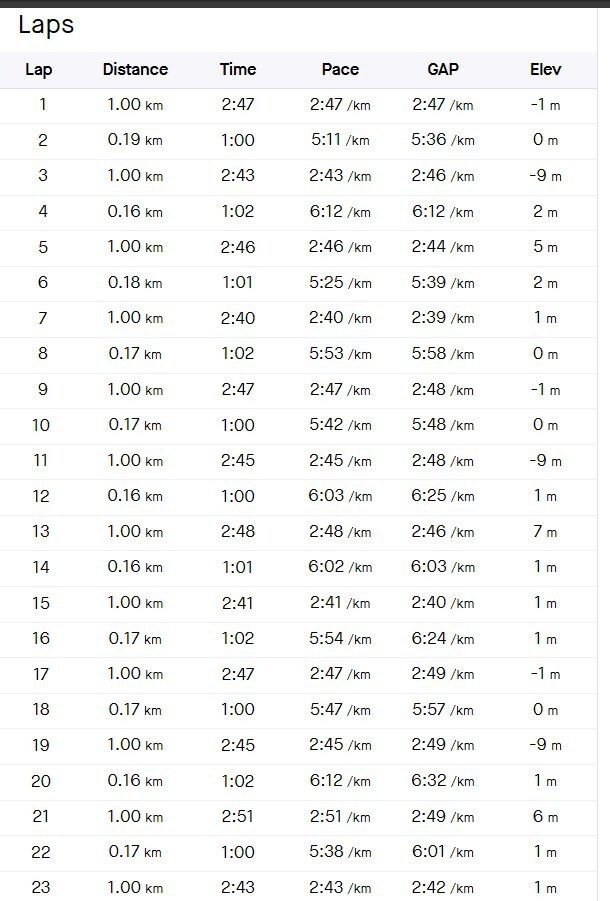
The workout
12 sets of 1K, with one minute of jog rest @ 2:40-2:50/km
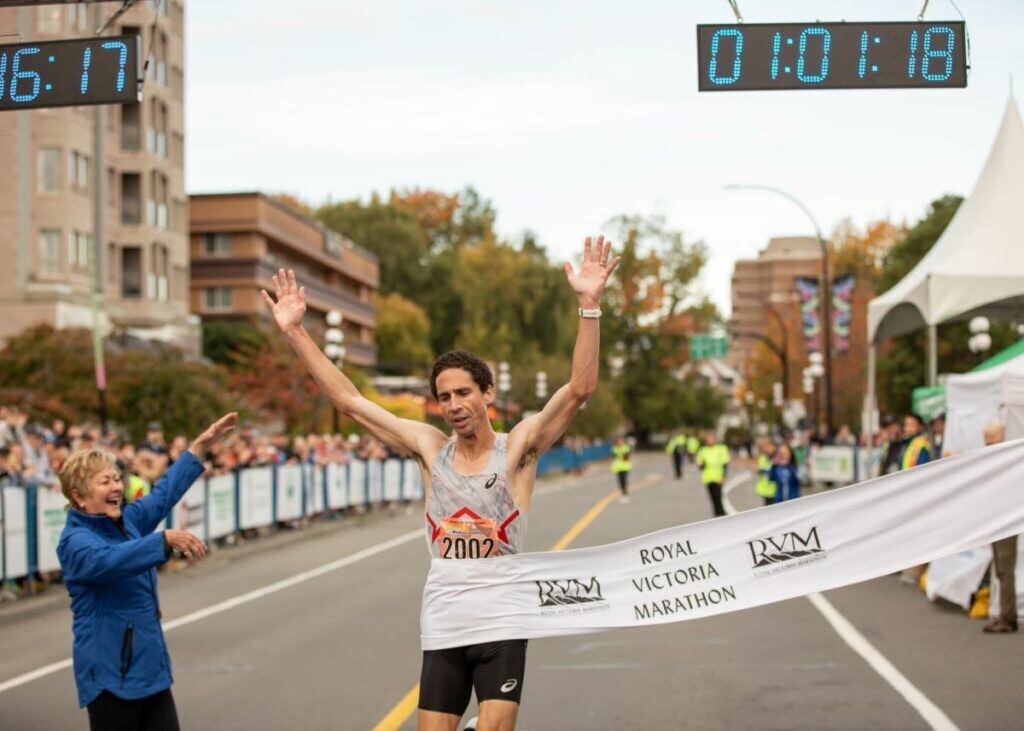
This workout is specifically designed for those training for a half-marathon or marathon, with short rest periods to acclimatize them to a faster pace. Levins pushed his limits during this session, clocking his fastest rep at 2:40 per kilometer and his slowest at 2:51 per kilometer, resulting in an astonishing 2:45 per kilometer average pace. This pace equates to an incredible 58 minutes for a half-marathon. (His Canadian record is 60:18.)
In his last two marathon outings, Levins achieved something historic for Canada, breaking the national record on both occasions. He also secured a top-five finish at both the 2022 World Championships and the 2023 Tokyo Marathon.
Levins chose to race the New York Marathon in his build-up to the 2024 Paris Olympic Games. The marathon course in Paris has a challenging elevation gain of more than 400 meters across 42.2 kilometers.
Of the six Abbott World Marathon Majors, New York and Boston are considered the most challenging. New York’s difficulty is attributed primarily to the four bridges participants must cross as they wind through the city’s five boroughs, with the Verrazzano-Narrows and Queensboro Bridges both extending to a distance of more than one kilometer each.
With the recent announcement that the 2022 NYC champion, Evans Chebet, and the two-time NYC champion, Geoffrey Kamworor, have both withdrawn due to injury, the 2023 race will see a new champion crowned in Central Park on Nov. 5. Could it be Levins? His fitness seems to indicate that he could–and if he does, he will be the first Canadian ever to win the New York City Marathon.
(10/17/2023) Views: 311 ⚡AMPby Marley Dickinson
TCS New York City Marathon
The first New York City Marathon, organized in 1970 by Fred Lebow and Vince Chiappetta, was held entirely in Central Park. Of 127 entrants, only 55 men finished; the sole female entrant dropped out due to illness. Winners were given inexpensive wristwatches and recycled baseball and bowling trophies. The entry fee was $1 and the total event budget...
more...Ethiopia’s Buze Diriba wins the TCS Toronto Waterfront Marathon in a wild finish
On a windy marathon morning in Toronto, the women’s race came down to the wire, as four athletes, all of them from Ethiopia, finished within seven seconds of each other. Ethiopia’s Buze Diriba Kejela was quickest to the line, taking the win in 2:23:11–a five-minute personal best.
Diriba was closely followed by 2023 Ottawa Marathon champion Waganesh Mekasha in second place (2:23:12) and Afera Godfay in third (2:23:15). This was the closest finish between a top three in the race’s history. The women were paced by Kingston, Ont.’s Kevin Coffey through 30K.
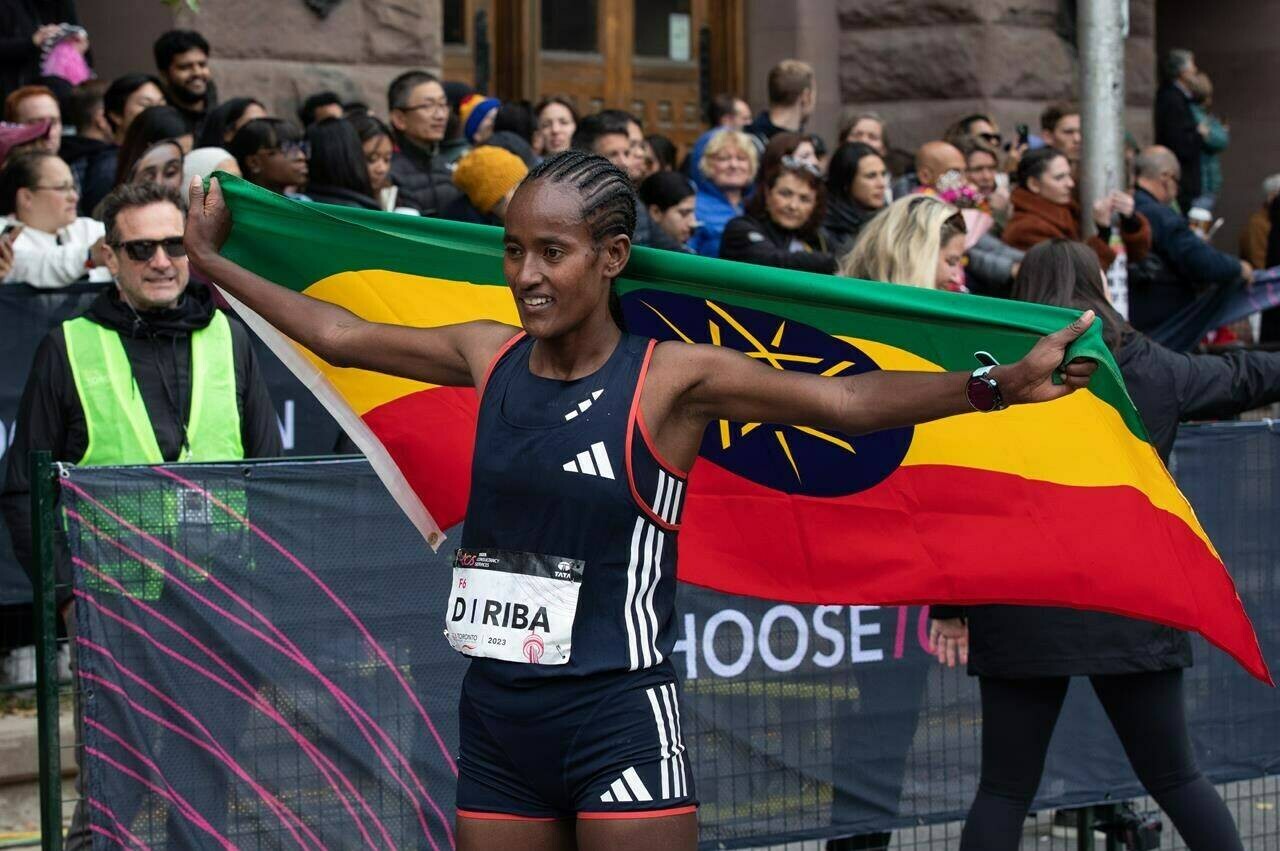
Fozya Jemal Amid was right on their heels, finishing fourth in 2:23:18 (a personal best); the U.S.’s Emily Durgin finished fifth in 2:26:46 in her debut marathon, nabbing herself a 2024 Olympic marathon qualifying time in the closest of margins. Durgin was the fastest North American finisher on the course, finishing three minutes ahead of her compatriot Molly Grabill.
The women were within course record pace for most of the race, but the chilly wind on Toronto’s lakeshore took its toll, and the women’s course record of 2:22:16, set in 2019 by Kenya’s Magdalyne Masai, remained intact.
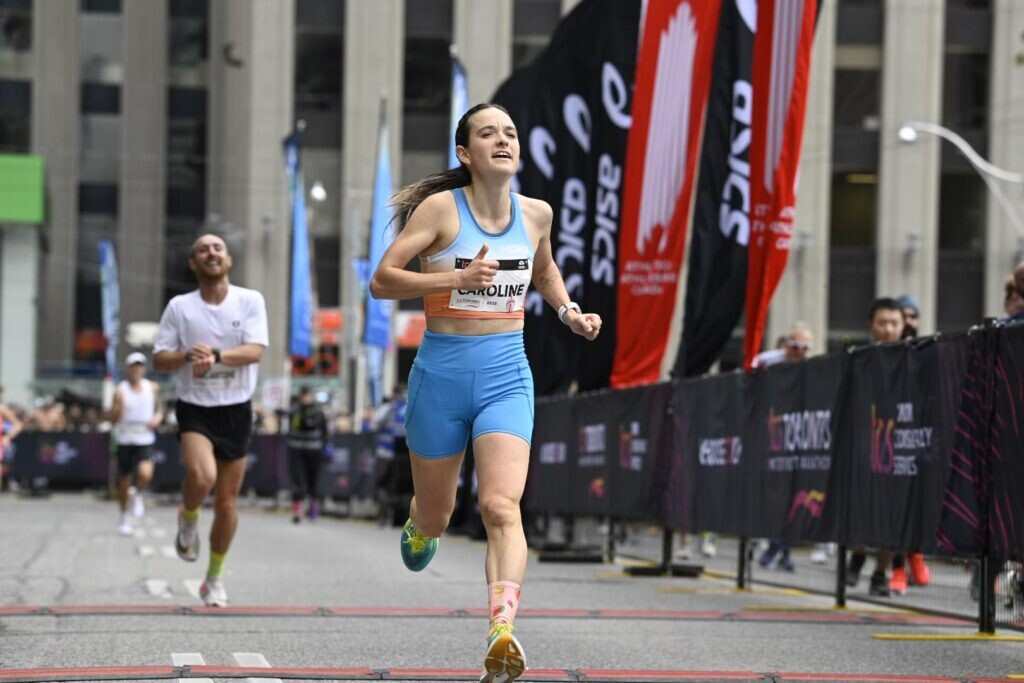
Godfay, who held the fastest seed heading into the race, did not push the pace, never taking a turn at the front to block the wind. “I came here to win, and was upset not to,” said Godfay on her third-place finish. “More speed won at the end.”
At the post-race press conference, Diriba credited her track speed for her ability to separate from the four women in the final kilometre. (She has a personal best of 14:50 for 5,000m.) She came into Sunday’s marathon with a PB of 2:28:06 from the 2019 Houston Marathon.
Pomerleau wins Canadian title
Caroline Pomerleau of Quebec was the surprise winner of the Canadian Marathon Championships, placing 10th overall in her marathon debut, in 2:34:44.
Pomerleau’s goal heading into her first marathon was to run under 2:40. On the final corner, she overtook Anne-Marie Comeau, who had been leading the Canadian women for most of the second half of the race, beating her by seven seconds; Comeau finished as second Canadian, in 2:34:51. Tokyo Olympian Dayna Pidhoresky rounded out the Canadian women’s podium for third, finishing in 2:35:50.
(10/16/2023) Views: 370 ⚡AMPby Marley Dickinson
TCS Toronto Waterfront Marathon
The Scotiabank Toronto Waterfront Marathon, Half-Marathon & 5k Run / Walk is organized by Canada Running Series Inc., organizers of the Canada Running Series, "A selection of Canada's best runs!" Canada Running Series annually organizes eight events in Montreal, Toronto and Vancouver that vary in distance from the 5k to the marathon. The Scotiabank Toronto Waterfront Marathon and Half-Marathon are...
more...Kenenisa Bekele parts way with NN Running Team
The first and only athlete to be crowned an Olympic, World Outdoor, World Indoor and World Cross Country champion, Kenenisa Bekele has parted ways with NN Running team after more than two decades of running under their stable and being a Nike representative.
The contract stated that after agreement between the two parties the Ethiopian track and road legend will participate in Valencia Marathon in December and also take part in the 2024 Paris Olympic which will be his fourth appearance.
NN Running Team through their founder Josephus Maria Melchior “Jos” Hermens, penned a down an emotional letter to the legend, wishing him the very best in the future and that they will still follow him up with great excitement.
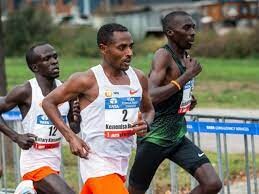
“…we wish you all the best in your next step in running and will follow your upcoming results with great excitement. Thanks for being such a great team mate over the years. We’re always behind you!” said Hermens.
The Ethiopian great has a rich cabinet of 21 global titles (including U20 titles) and who also shattered six world records during his glittering career, has joined the Chinese shoe brand who have promised take long distance running to a new level.
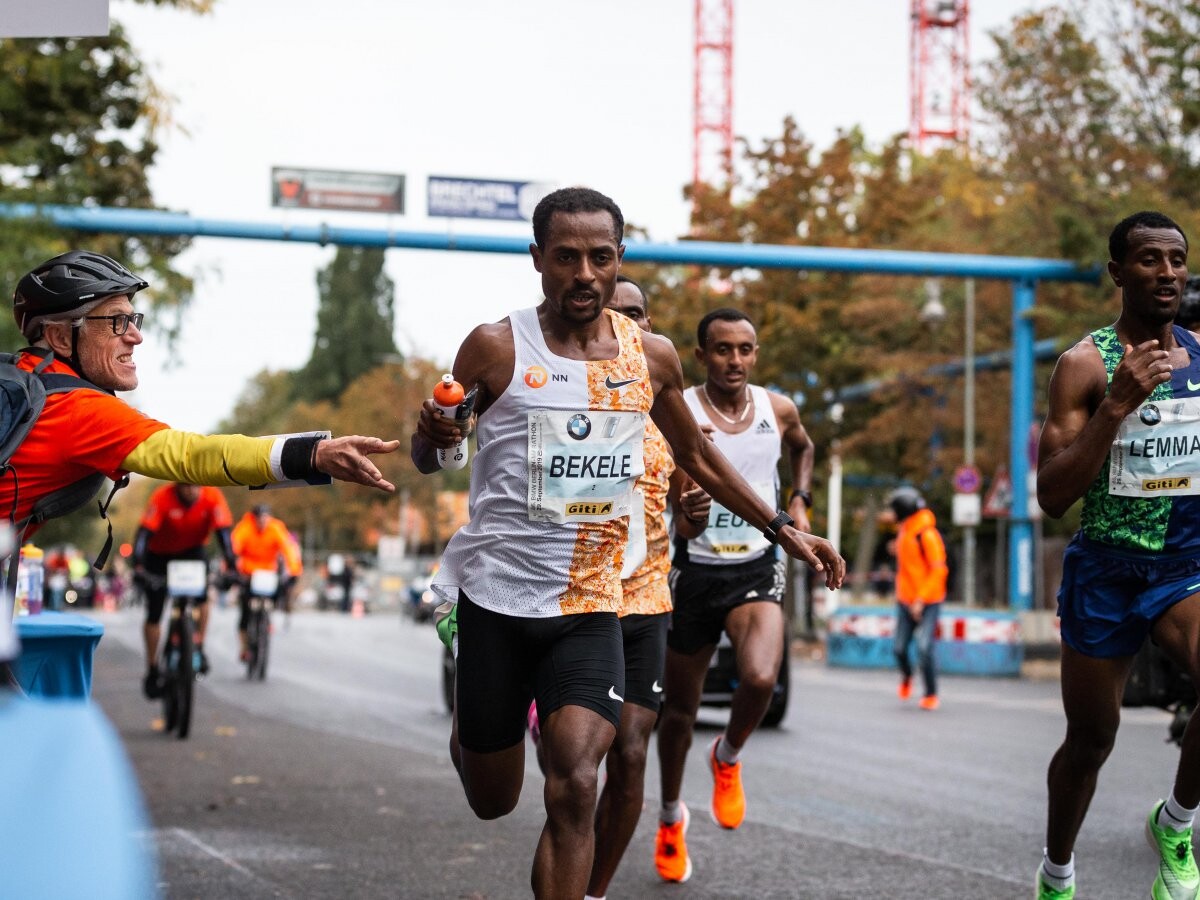
After penning down the contract with brand, ANTA Sportswear, took to their social media page and said,” We’re taking long-distance running to new heights with Kenenisa Bekele! In our partnership we’re looking forward to optimizing the Kenenisa Resort and Sport Center and provide elite athletes with better training services and guarantees.”
The 41-year-old Bekele is currently the third fastest man in the world witha a time of 2:01.41 that he set in 2019 at the Berlin Marathon.
(10/16/2023) Views: 436 ⚡AMPby John Vaselyne
Kenyan long-distance runner handed 10-year doping ban after forging hospital documents
Kenyan marathoner Titus Ekiru will serve a hefty 10-year ban after being found guilty of forging hospital documents to cover up positive tests of banned substances
Kenyan marathoner Titus Ekiru has been handed a 10-year doping ban by the Athletics Integrity Unit (AIU) after being found to have forged hospital documents, following two positive tests in two separate urine samples.
Ekiru had been provisionally suspended by the AIU as it waited for his response on the charges leveled against him, and it is during this period that he made matters worse.
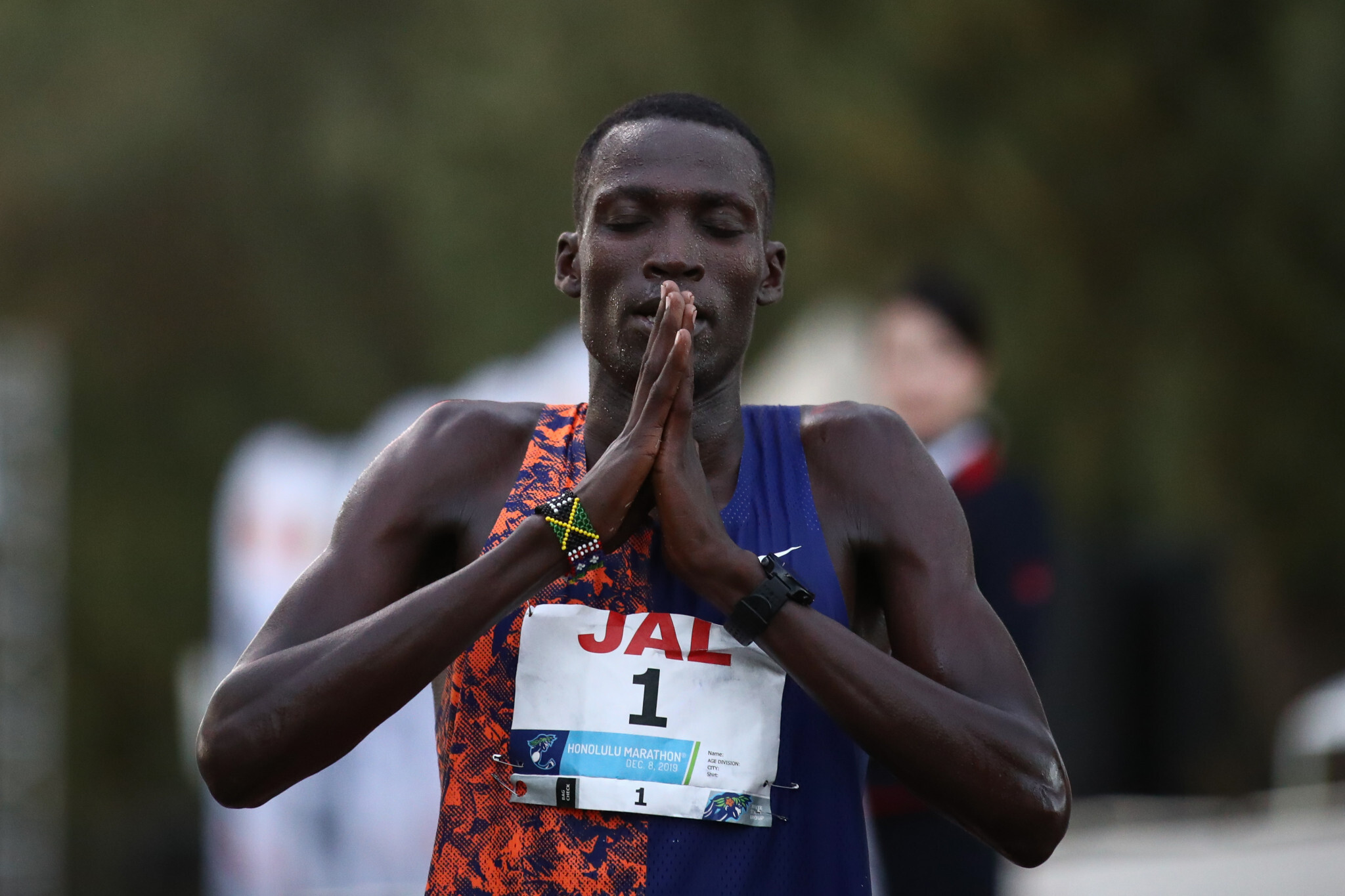
The runner colluded with a doctor at the Nandi County Hospital and forged documents and the patient registry as he tried to justify injections he received, according to the AIU.
After duel diligence, the forgery was unearthed, and Ekiru was further charged with tampering.
AIU says documents from the hospital showed discrepancies in Ekiru’s defence which claimed the injections he received stemmed from prescribed medications for injury treatment.
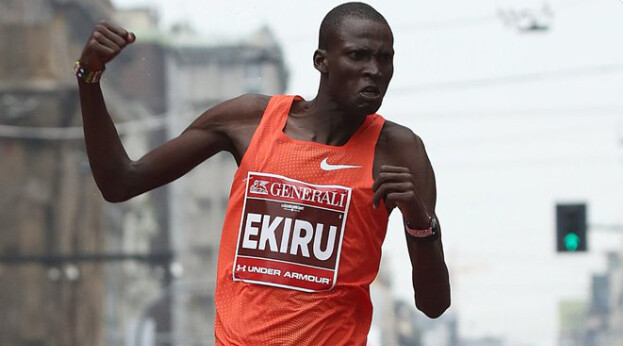
“Ekiru tested positive twice for the Presence of Prohibited Substances, or their metabolites or markers, in his in-competition urine samples at marathons which he won in 2021: the Generali Milano Marathon on May 16, 2021 (triamcinolone acetonide) and the Abu Dhabi Marathon on November 26, 2021 (pethidine and its marker norpethidine),” said AIU in part of its ruling.
“In addition to the ban, which runs from June 28, 2022 (the date of Ekiru’s provisional suspension) until June June 27, 2032, Ekiru’s results on and since May 16, 2021 have been disqualified, resulting in the forfeiture of all prizes and money. Ekiru’s victory in the Generali Milano Marathon would have made him the sixth-fastest marathoner of all-time.
“In July 2023, he was charged with two counts of the Presence of a Prohibited Substance, as per Rule 2.1 of the of the World Athletics Anti-Doping Rules (ADR), and two counts of Tampering or Attempted Tampering with any part of Doping Control (ADR Rule 2.5). Initally, Ekiru signalled his intention to contest the charges.
“However, faced with substantial evidence against him, the Kenyan athlete decided that he no longer wanted to pursue the case.”
The doctor claimed Ekiru’s visits were unrecorded by the hospital as “the athlete had attended early in the morning, before the registration offices had opened”.
However, hospital documents obtained by AIU revealed that the outpatient number was not issued to Ekiru until June 16, 2021; the one occasion on which the hospital confirmed his attendance as an outpatient.
(10/16/2023) Views: 368 ⚡AMPby Joel Omotto
Elvis Kipchoge Cheboi wins TCS Toronto Waterfront Marathon
It was an inauspicious arrival in Toronto for newly-crowned TCS Toronto Waterfront Marathon champion Elvis Kipchoge Cheboi, who lost a day of travel after a missed flight, then had to deal with a 4:30 a.m. fire alarm in the elite hotel, but none of that seemed to faze the 27-year-old Kenyan, winning in a decisive manner at Sunday’s marathon in a personal best time of 2:09:20.
Adugna Takele Bikila of Ethiopia, who was the top-seeded runner, finished second, in 2:10:26, with Alfred Kipchirchir Mukche of Kenya finishing third in 2:10:56.
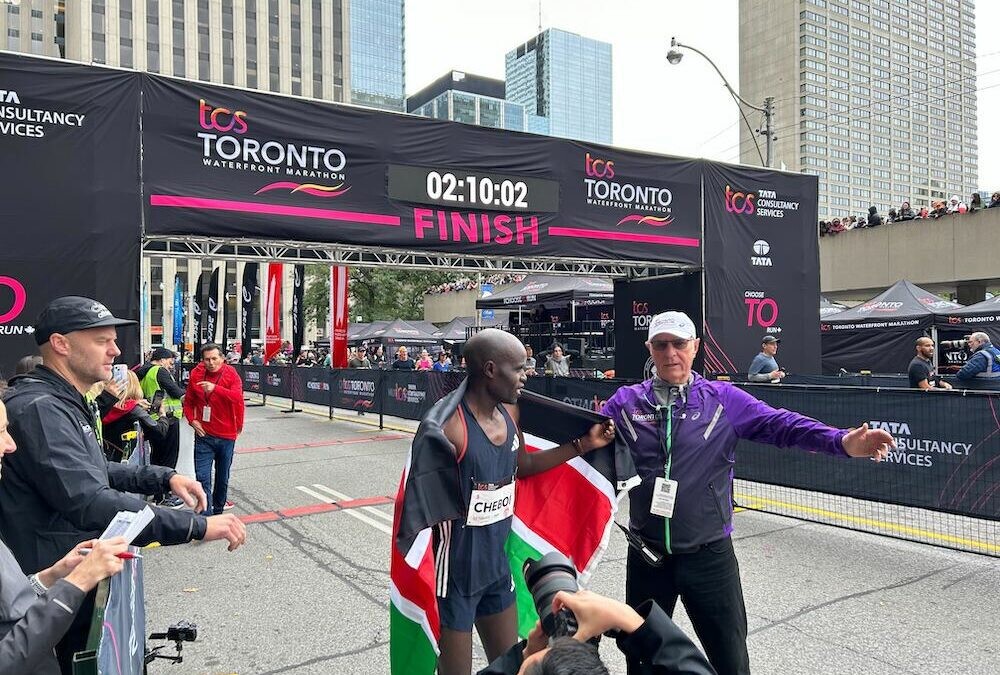
From early in the race, the TCS Toronto Waterfront Marathon was a duel between Cheboi and Kipchirchir, cruising along the course in their contrasting dark (Cheboi) and light (Kipchirchir) singlets, until the hairpin turnaround in the east-end Beach neighbourhood, when Cheboi surged ahead and never looked back.
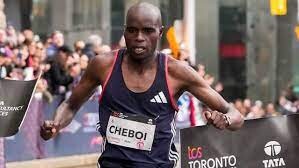
This was only Cheboi’s second marathon, having debuted at the Vienna Marathon earlier this year, where he finished seventh in 2:10:21.
“For me, winning Toronto is a huge achievement,” said Cheboi on his result. “I am very happy I improved on my time (from Vienna) today.
(10/16/2023) Views: 353 ⚡AMPby Anne Francis
TCS Toronto Waterfront Marathon
The Scotiabank Toronto Waterfront Marathon, Half-Marathon & 5k Run / Walk is organized by Canada Running Series Inc., organizers of the Canada Running Series, "A selection of Canada's best runs!" Canada Running Series annually organizes eight events in Montreal, Toronto and Vancouver that vary in distance from the 5k to the marathon. The Scotiabank Toronto Waterfront Marathon and Half-Marathon are...
more...6 ways to stay warm before your race starts
When the weather forecast for race day morning is chilly, it can be challenging to.stay warm in the start corral. This is particularly true at larger races, where you must spend some time waiting before the gun goes off. Avoid getting cold and stiff with these six simple strategies that will help you stay comfortable and ready to tackle the course ahead.
Do a 10-15 minute jog warmup
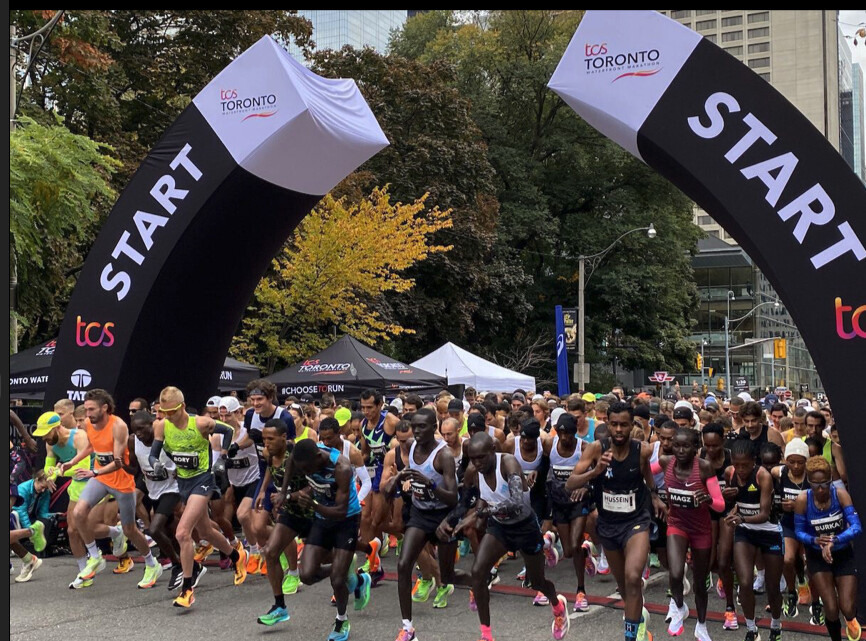
One effective way to stay warm before the race is to do a 10- to 15-minute jog. Not only will this help raise your body temperature, but it will also increase blood flow and loosen your muscles. Once you enter your corral, try doing some dynamic stretching, like high-knee marching or light skipping or jumping. (Just make sure it’s not so vigorous that you tire yourself out before the race starts–or that you inadvertently elbow someone).
Buy a thrift-store hoodie
Another great way to stay warm is to layer up with inexpensive clothing that you can peel off early in the race. Thrift stores have inexpensive long-sleeved shirts, sweatpants and jackets that you can wear as extra layers. You can toss them to the side of the course either once you’re running and comfortable, or just before the gun goes off. (Many races have volunteers who collect the discarded clothing so it can be donated. Just make sure to move to the side of the course, so you’re not throwing clothing at the people beside you.) Alternatively, if your race is smaller, you can arrange with a friend or family member to stand on the sidelines near the start, who could catch your layers as you run by.
Wear a garbage bag
If you don’t want to spend money on “disposable” clothing, a simple and cost-effective solution is to wear a garbage bag. Cut holes for your head and arms, and slip it on like a makeshift poncho. This will help trap your body heat and protect you from the wind. Once the race is about to start, you can easily tear off the garbage bag and continue racing.
Fuel well
You should always eat a meal or substantial snack a couple of hours before the race, and one of the benefits is it will help you stay warm while you wait. When your body digests food, it produces heat as a byproduct. Aim to consume a balanced breakfast that includes carbohydrate, protein and healthy fats (such as cereal or cooked oatmeal with milk and half a banana, toast with peanut butter or a sandwich with lean protein). Just make sure to only eat foods you’ve already experimented with in training.
Take a gel on the start line
In addition to fuelling well before the race, consuming an energy gel or a few bites of an energy bar on the start line will also help you stay warm. Be sure to test different gels during your training to find one that suits your needs and does not upset your stomach.
Keep your head and hands warm
You lose a lot of body heat through your head, so wearing a hat or headband can help you retain warmth; cold hands can also be uncomfortable and affect your performance. Invest in a good hat and a pair of gloves suitable for running in cold weather. If you only plan on wearing them at the beginning of the race, pick up some cheaper options at a thrift store that you can throw away as the race starts.
(10/15/2023) Views: 264 ⚡AMPby Running Magazine
Adkin and Allen among winners at Mountain Running World Cup final
Great Britain’s Scout Adkin and Joe Steward opened the Valsir Mountain Running World Cup Finalissima at Sky Gran Canaria with victories in the uphill race on Friday (13), while the long distance race on Saturday (14) was won by USA’s Christian Allen and Spain's Ikram Rharsalla Laktab.
Pace adjustment is key to successful mountain running as conditions, terrain and – as it turned out – even distances can change in the blink of an eye.
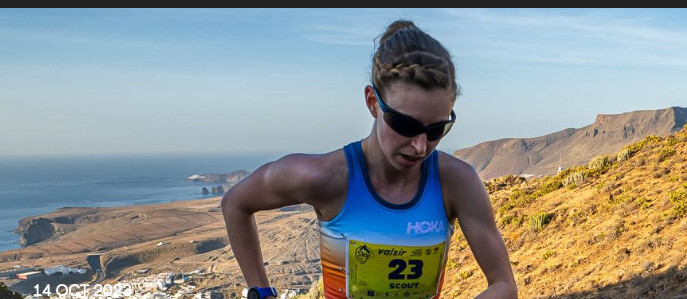
A weather alert was issued for the heat and possibility of forest fires and this meant the 6km uphill race – traditionally the opening event on this action-packed weekend – was reduced to 4km on a significantly altered route. Not only was the race shorter, it also didn’t climb above 400m due to the restrictions.
In the brutally hot conditions, with the temperature at 36°C at the start, it was Steward who quickly made the best of a tough situation as he raced to victory in the Sky A4Uphill event in 17:42. Steward placed eighth at the World Mountain and Trail Running Championships in Innsbruck earlier this year, but his recent results included wins at Canfranc and the Challenge Stellina mountain race in Italy, so he lined up as the man to beat.
Kenya’s Patrick Kipngeno, who is in the running for the overall men’s World Cup title, finished 11 seconds behind Steward’s winning time and secured second place. Allen was third in 18:00, Italian Henri Aymonod finished fourth in 18:18 and Philemon Kiriago – who led the men’s World Cup standings going into the event – was fifth in 18:33.
The women’s race was equally exciting as Adkin once again demonstrated her superb form. An early starter in a race that spanned 40 minutes from the first gun, she had to watch as the field tried – and failed – to match her 21:17 finish time. Looking incredibly strong on the technical section going into the final climb, it would clearly take something special to beat the Scot, the bronze medallist in last year’s European Off-Road Running Championships on the neighbouring island of La Palma.
As for the race in Gran Canaria, it featured a fast opening kilometre as the runners eased out of the coastal village of Agaete and then climbed steadily before the tough final ascent to Lomo del Manco on the volcanic rock paths the Canary Islands are so well known for.
With athletes starting every 30 seconds, the race was a superb spectacle and the results were in doubt all the way to the finish line. With no specific order, it was a case of hitting the climbs flat out. Tactics were for another day and for the two longer races (35km and 22km) taking place on Saturday and Sunday.
Adkin, who finished 15th overall, won the women’s race ahead of Finland’s Susanna Saapunki, who clocked 21:30.
Kenya’s Joyce Muthoni Njeru, who leads the overall women’s World Cup standings, placed third in 22:12, with her compatriot Philaries Kisang – currently second in the standings – finishing fourth in 22:58. Britain’s Sara Willhoit was fifth in 23:13.
Allen and Rharsalla Laktab prevail
Day two featured the longest race of the weekend, the Sky TPT38 Long. It was a demanding 38km, which had to be changed from the original 2736m of ascent and the sections of steep, technical ground due to the weather alert. However, it remained a great course, one that saw runners start down on the coast of Maspalomas before traversing a series of volcanic canyons.
If day one and the uphill-only race over 4km was all about flat-out power, this was very much a story of tactics, endurance, fuelling strategies and grit, not to mention the superb descending skills required for the final 12km.
Fortunately for the competitors, conditions had cooled slightly and the canyon walls provided much needed shade, so it was possible to really push hard from the gun.
It was the USA’s Christian Allen who did just that to seize the early initiative to open up a commanding lead of more than three minutes by 22km.
Allen has been in great form this year as his 2023 race programme demonstrates. The 28-minute 10km track runner has posted a string of impressive results all over the world, highlighted by a seven-minute victory in the Speedgoat 50km in the Wasatch Mountains, USA, an impressive second place at Vertical Nasego, and a third place at the Trofeo Nasego this Valsir Mountain Running World Cup season.
Allen, who is also a member of a newly formed Trail Team created to help athletes progress in the world of off-road running, crossed the line in 2:29:29, comfortably ahead of his compatriot Andrew Wacker, who clocked 2:35:52. Czechia's Ondrej Fejfar was third in 2:36:50.
"I’m tired, but I’m glad to be done," said Allen after his second race in two days, which began with a third place in the uphill race on Friday. "I was a little tired after yesterday and didn’t get much sleep because of the caffeine I’d taken, but competing is all about adapting and going out there and having fun."
A strong race on Sunday over the classic distance could see him move to as high as third in the overall World Cup rankings, but speaking after the long race, he was not sure if he will be on the start line for the third race of a packed weekend. “But you never know,” he laughed. “We’ll see how I sleep tonight.”
In the women’s race, a superb final 12km from Spain’s Ikram Rharsalla Laktab saw her haul back a four-minute deficit to win by more than a minute. At first glance it appeared to be down solely to her sensational running over the closing stages, given Italy’s Camilla Magliano had passed 22km more than four minutes ahead of Rharsalla Laktab, the Spanish representative in the World Mountain and Trail Running Championships in Innsbruck earlier this season.
Unfortunately for Magliano, however, the Italian had taken a wrong – and costly – turn in the final canyon and it was Rharsalla Laktab who crossed the line first in 2:27:26 with Magliano close behind in 2:59:01. After her fifth place in the uphill race, Britain’s Sara Willhoit was third in 3:17:14.
“I’m happy with the win,” said Rharsalla Laktab. “It was a very runnable course, although I do like a bit more of a technical course with a touch more climbing."
Now it is all about Sunday and the Sky A21 Classic, which starts and finishes at the Muelle Viejo de Agaete. Initially, this race was going to be over 50km, but the extreme weather conditions in Gran Canaria means this will now be a shorter two-lap race over 22km.
(10/15/2023) Views: 306 ⚡AMP
by World Athletics
Koyama and Suzuki secure places on Japan’s Olympic marathon team
Naoki Koyama and Yuka Suzuki won Japan’s Marathon Grand Championship in Tokyo on Sunday (15), guaranteeing their selection for the Paris 2024 Olympic Games.
Koyama won in 2:08:57 with Akira Akasaki finishing a close second in 2:09:06, also securing his place on the team. As was the case in Japan’s Olympic selection race for the last Games, Suguru Osako finished third, meaning his selection is only provisional and not yet guaranteed.
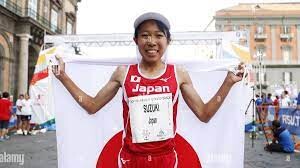
Suzuki’s triumph in the women’s race was more clear cut as she won by 34 seconds in 2:24:09. Mao Ichiyama placed second in 2:24:43 while Ai Hosoda took third place (2:24:50).
Former Boston Marathon winner Yuki Kawauchi was the early leader of the men’s race, building up a 41-second lead at 25km (1:15:36). His lead was still 34 seconds at 30km, but several athletes in the chase pack started to make a move.
Kawauchi was caught with about seven kilometres remaining, but he didn’t drop back. Just four men remained in contention in the final five kilometres – Kawauchi, Koyama, Osako and Akasaki. Koyama made a decisive move just before 40km, and despite a strong finish from Akasaki and Osako, there was no catching Koyama who won in 2:08:57.
The first big move in the women’s race came at about 23km when Mao Ichiyama opened up a bit of a gap ahead of the rest of the leaders. Hosoda then took a turn in the lead at 30km, but Ichiyama regained it a few kilometres later.
Suzuki caught Hosoda at 36km, and then reeled in Ichiyama about 10 minutes later. In the final four kilometres, Suzuki extended her leading margin and eventually crossed the finish in 2:24:09. Ichiyama held off a strong challenge from Hosoda in the closing stages to hold on to second place.
(10/15/2023) Views: 405 ⚡AMPAyana and Ebenyo win in Delhi
Ethiopia’s 2016 Olympic champion Almaz Ayana and Kenya’s world 10,000m and half marathon silver medallist Daniel Ebenyo took top honours at the Vedanta Delhi Half Marathon on Sunday (15), winning the World Athletics Gold Label road race in 1:07:58 and 59:27 respectively.
Through the early stages, Ayana ran alongside fellow Ethiopians Aberash MInsewo and Dessie Anchinalu as well as Kenya’s Viola Chepngeno and Uganda’s Chesang, covering the first 5km in 15:45. Vivian Cheruiyot – who also claimed an Olympic gold medal in Rio, hers over 5000m – was slightly behind the lead pack.
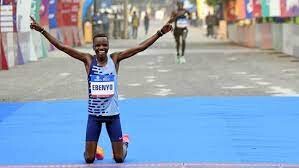
Ayana maintained her 16-minute pace for each of the following five-kilometre intervals. She slowed down in the closing stages, but was a comfortable distance ahead of Chesang. Ayana crossed the finish line in 1:07:58, recording her second win in New Delhi following her 1:07:12 triumph in 2017.
Chesang finished 28 seconds later for second place while Chepngeno completed the podium in 1:09:09.
In the men’s race, Ebenyo and compatriot Chales Matata ran with several of their fellow Kenyans, as well as Ethiopia’s Addisu Gobena. The pack stayed together until 13km when Ebenyo and Matata made a break.
They ran together for another five kilometres, but Ebenyo managed to open up a significant lead in the final few kilometres to win in 59:27. Matata clocked 1:00:05 for second place, while Gobena placed third in 1:00:51.
(10/15/2023) Views: 628 ⚡AMPVedanta Delhi Half Marathon
The Airtel Delhi Half Marathon is a haven for runners, creating an experience, that our citizens had never envisaged. The streets of Delhi converted to a world-class running track. Clean, sanitized road for 21.09 kms, exhaustive medical support system on the route, timing chip for runners, qualified personnel to ensure smooth conduct of the event across departments. The race...
more...Belete and Belet triumph at Amsterdam Marathon
Ethiopia’s Meseret Belete and Kenya’s Joshua Belet were victorious at the TCS Amsterdam Marathon on Sunday (15), winning the World Athletics Platinum Label road race in 2:18:21 and 2:04:18 respectively. Both champions produced the third-fastest winning times ever recorded in the Dutch capital.
Belete smashed her PB by more than two minutes and notched up her second victory of the year, having won in Doha back in January in 2:20:46, her previous lifetime best.
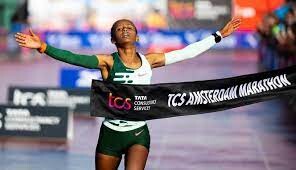
Belet, meanwhile, bounced back from his World Championships withdrawal to record a PB, improving on the 2:04:33 he clocked when finishing second in Hamburg in April.
Belete maintained a remarkably consistent pace throughout, and for most of the way she ran alongside compatriots Meseret Abebayehu and Ashete Bekere, as well as Kenya’s Dorcas Tuitoek.
A large lead pack passed through 5km in 16:27 and 10km in 32:45. About nine runners were still in contention as they passed through the half-way point in 1:09:05. It indicated they were set for a finishing time in the region of 2:18, though Almaz Ayana’s course record of 2:17:20 was perhaps by now slightly out of reach.
By 30km, reached in 1:38:08, there were just four women left in the lead pack – Belete, Abebayehu, Tuitoek and Bekere. They ran together for a further 10 minutes or so, then Belete started to forge a lead.
She didn’t have to increase her pace; she simply maintained it while her last few opponents drifted off it. Belete eventually entered the stadium with a comfortable lead and crossed the line in 2:18:21, winning by 89 seconds.
Abebayehu, winner in Riyadh and Xiamen earlier this year, held on for second place in 2:19:50, smashing her PB by more than four minutes. Tuitoek placed third in 2:20:02.
In the men’s race, a large lead pack covered the opening 5km in 14:54, then sped up to reach 10km in 29:28 and 15km in 44:03. The pack still contained about 12 men as they passed through 20km (58:48) and the half-way point (1:02:01), which was 10 seconds quicker than Tamirat Tola achieved when he set the course record of 2:03:39 in 2021.
The lead pack started to whittle down gradually in the second half. After going through 30km in 1:28:28, Belet made his move and opened up a gap on the rest of the field, one he wouldn’t relinquish.here were several changes of position among the athletes in the chase pack in the final kilometres, but Belet held on to his lead and went on to win in 2:04:18. Fellow Kenyan Cybrian Kotut came through to take second place in 2:04:34, finishing just three seconds ahead of Bethwel Chumba, who completed the all-Kenyan podium. Ethiopia’s Birhanu Legese was a close fourth in 2:04:44.
(10/15/2023) Views: 535 ⚡AMPPeres Jepchirchir shares why it will take time to break the women's world record again
Peres Jepchirchir has shared her insights on why it will take longer for the women's marathon world record to be broken.
The streets of Berlin witnessed a historic moment on September 27 when Ethiopia’s Tigst Assefa shattered the women-only world record.
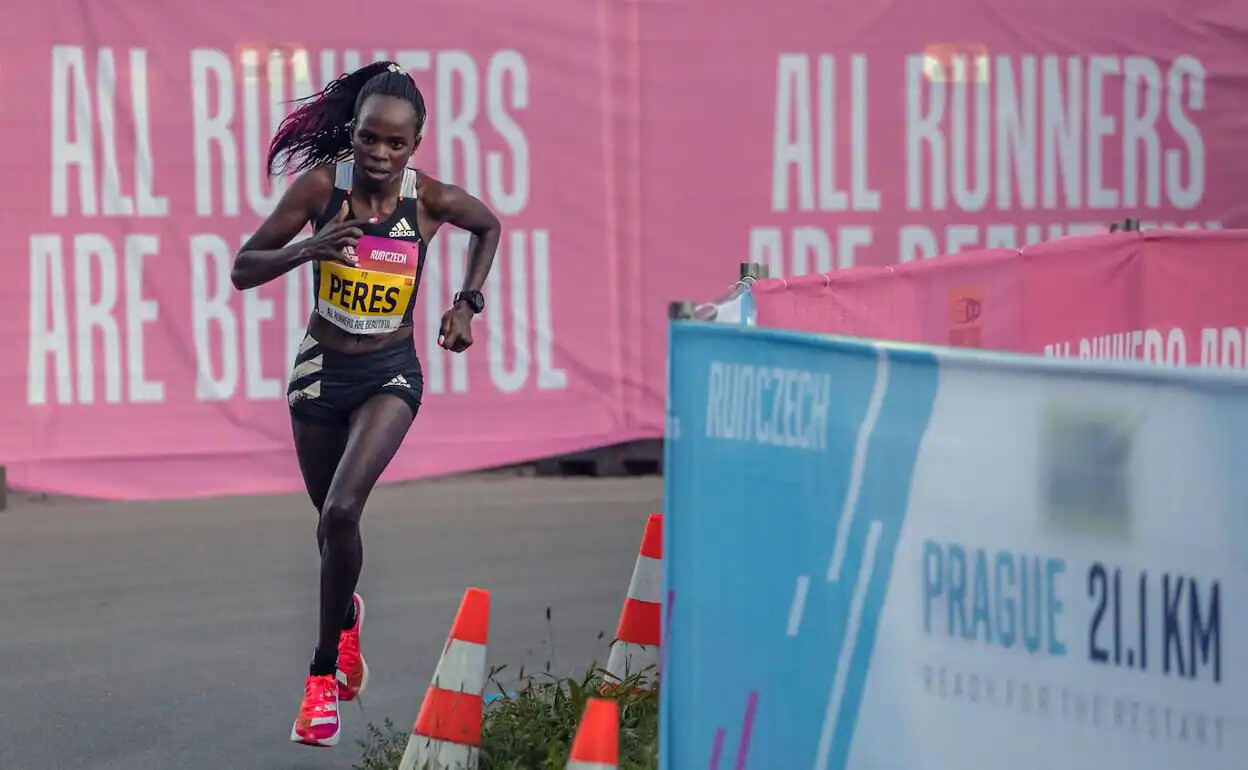
Assefa clocked 2:11:53 to completely obliterate Brigid Kosgei’s world record time of 2:14:04. Having clocked that time, the Ethiopian became the first woman in history to have run under 2:12:00.
Kosgei had set the world record in 2019 and in less than five years, it has already been shattered. However, Olympic champion Peres Jepchirchir has admitted that lowering Assefa’s world record time will definitely take more time.
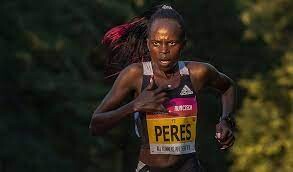
“For now, it’s difficult, 2:11:00 is a very difficult barrier to break. Maybe it will take some years to break that barrier.
It took time to break Kosgei’s record and it was 2:14…but for this world record, it will take more time. I know we are strong ladies and we will break it one day.
If it will not be me, then my colleagues will definitely break it and make history,” Jepchirchir explained.
The 2022 Boston Marathon champion will be heading to the streets of New York for the New York City Marathon on November 2.
She noted that she does not intend to go for a world record on the course since it is not suitable for a world record. However, she is bullish about reclaiming her title that she won during the 2021 New York City Marathon.
She missed out on last year’s edition of the event due to an injury setback but she has since announced her comeback. She opened her season at the London Marathon where she finished third.
She then bagged a win at the Great North Run before defending her World Half Marathon title at the World Road Running Championships.
(10/14/2023) Views: 398 ⚡AMPby Abigael Wuafula
TCS Toronto Waterfront Marathon: elite women’s and men’s preview
For the first time in the 34-year history of the TCS Toronto Waterfront Marathon, the race has reached over 25,000 runners. Toronto has established itself as Canada’s premier marathon and has set a precedent in the global running community, with participants coming from 78 countries around the world for the marathon on Sunday, Oct. 15.
The elite field at the 2023 edition of the marathon looks significantly different from last year, and two new champions will be crowned on the men’s and women’s sides, as Ethiopia’s Yihunilign Adane and Kenya’s Antonina Kwamboi will not be returning. The 2023 elite field features up-and-coming stars, along with several American women aiming to achieve the Olympic standard of 2:26:50 ahead of the upcoming U.S. Olympic Trials in February.
The race will also determine two new Canadian marathon champions, with compelling storylines on both the men’s and women’s sides.
Women’s race
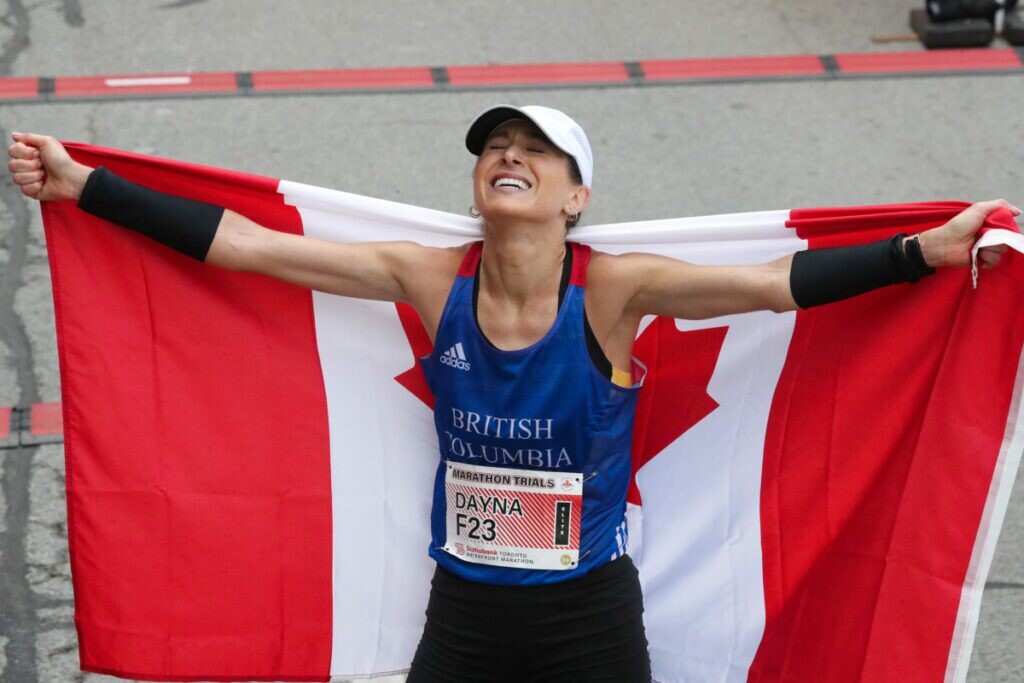
Will we see an American winner?
It has been 22 years since an American woman last won the TCS Toronto Waterfront Marathon (Leslie Gold in 2001) but in this year’s field, two American elites could possibly end the drought. One of them, Emily Durgin, a road racing specialist based out of Flagstaff, Ariz. came to Toronto looking for redemption after a less-than-ideal marathon debut in NYC last year.
Durgin said during Friday’s elite press conference that she felt the pressure to hit times and perform during her debut and ended up dropping out of the race before 30 km. “I learned a lot from New York and my build for Toronto has been different,” said Durgin. “As for a goal time, I want to run in the low 2:20s and be competitive.” The 29-year-old marathoner hopes to use Toronto as a stepping stone for the U.S. Olympic Marathon Trials in February 2024 in Orlando. Durgin was able to qualify for the trials from her time at the 2022 Houston Half Marathon where she finished 6th overall, clocking the seventh-fastest half-marathon in U.S. history with 67:54. “I came to Toronto to be competitive and contend for the the podium, as that’s what it will take to qualify at trials come February,” she said.
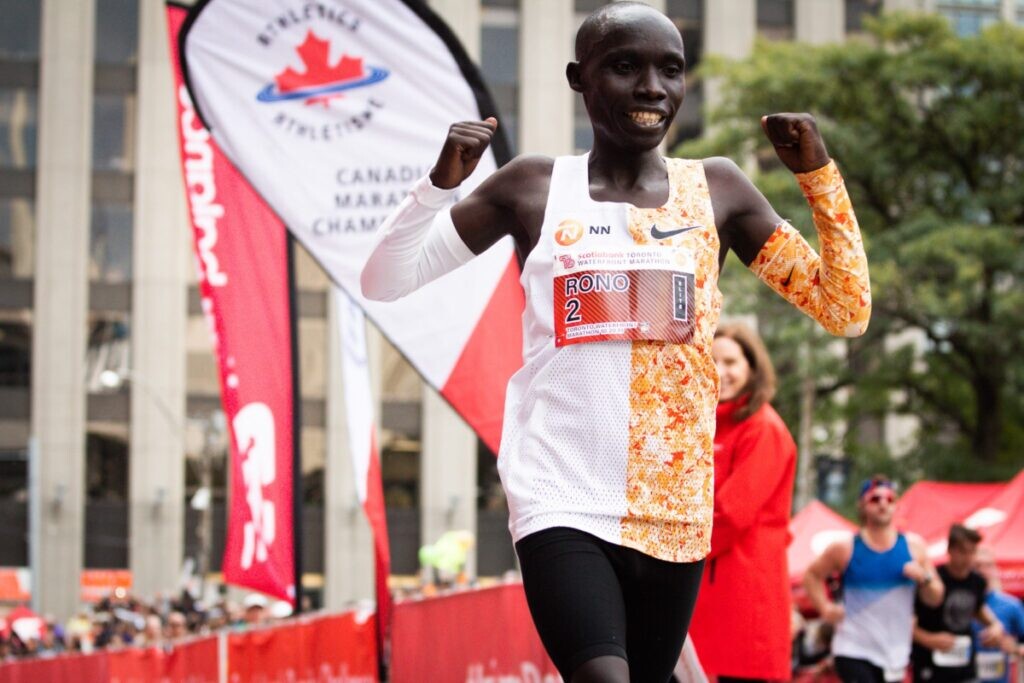
Another U.S. name in the women’s elite field to watch is Molly Grabill, who is running her sixth career marathon in Toronto on Sunday. Grabill told the media that she has similar plans to her compatriot Durgin and hopes to bounce back after, in her words, falling short of her goals in her last marathon in Hamburg earlier this year. Although Grabill ran the second-fastest marathon time of her career in Hamburg, she said she was disappointed as she took a swing and missed, struggling in the second half. “The goal in Toronto is to control the second half of the race better and gain strong momentum heading into the U.S. Olympic Marathon Trials,” said Grabill. The 31-year-old from Boulder, Colo., is coming off a top-15 finish in 69:53 at the inaugural World Athletics Road Running Championships in Riga, Latvia, earlier this month, which she says has given her a lot of confidence for Sunday.
Eyes on the course record?
Outside of the American duo, two other international athletes to watch are the Ethiopian duo of Afera Godfay and 2023 Ottawa Marathon champion Waganesh Mekasha. For Godfay, Toronto is her first marathon in three years after giving birth to her daughter. Her last marathon came in 2020 when she ran 2:26:43 to place third overall at the Xiamen Marathon in China. In her first two races back since becoming a mother, Godfay has run respectable half marathon times of 70 and 71 minutes but has not yet returned to her previous form. She said at Friday’s press conference that she hopes to come through the half mark in 1:11 and feels well-prepared for her marathon return. A glimpse of hope for Godfay is that she currently trains alongside the new women’s world record holder Tigist Assefa in Ethiopia. So, who knows what she is capable of?
The favourite in the women’s race is Mekasha, who is coming off a win in the scorching heat at the 2023 Ottawa Marathon in May. Mekasha is targeting the Canadian all-comers’ women’s marathon record on Sunday of 2:22:16, set four years ago by Kenya’s Magdalyne Masai at this race. Mekasha holds a personal best of 2:22:45 from the 2019 Dubai Marathon and said that she expects around a similar time on Sunday. “If the pacemaker runs a good pace, I hope to break the course record,” says Mekasha.
The Canadian contingent
Two of the top three Canadians from last year’s race have returned to the 2023 field, with Malindi Elmore, the reigning Canadian marathon champion, opting to run Berlin, where she clocked the second-fastest time in Canadian history (2:23:30). Returning are second and third place Canadian finishers Dayna Pidhoresky and Toronto’s own Sasha Gollish. Pidhoresky had an iconic moment here in 2019, when she raced just under the Olympic standard at the Canadian trials, winning in 2:29:03–qualifying her for the marathon at the 2020 Tokyo Olympics. Although the Olympic marathon didn’t go as planned for Pidhoresky, she was able to bounce back at this event last year to place seventh overall (second Canadian) in 2:30:58.
“Growing up in Windsor, Ont., I came to Toronto for so many races,” said Pidhoresky on tackling on her fourth Toronto Waterfront Marathon. “I feel I know the course very well, which is helpful in a marathon, and it’s great to have a high-quality field that’s close to home.” Pidhoresky told the media that this build has not been smooth but she is still confident she can run a personal best Sunday. “This course is advantageous, and I need to be smart and just run my race,” she said.
It is a similar story for Gollish, who is running in her second consecutive TCS Toronto Waterfront Marathon, less than eight weeks after her last marathon at the 2023 World Championships in August. Gollish told Canadian Running at the press conference that she wants to go into this race with a similar mindset that she had in Budapest. “It feels like a privilege to be here, and I am not putting any pressure of a personal best on myself,” says Gollish. “For the longest time, I avoided this race because I felt there would be pressure to perform, but why not run something in your backyard fuelled by a community that has done so much for me?” Last year, Gollish surprised herself with a personal best time of 2:31:40 after a short marathon build. Could she do the same on Sunday?
A few other Canadian marathoners to watch are Emily Setlack, Toronto’s Liza Howard and Kim Krezonoski of Thunder Bay, Ont. It has been four years since Setlack has last touched the marathon, but with a personal best of 2:29:48 from the 2019 edition of this race, her potential to finish as the top Canadian should not be ignored. Setlack has had a quiet 2023 season but has strung together solid performances, winning Toronto’s historic Sporting Life 10K and placing eighth overall at the Canadian 10K Championships in May.
Howard has a personal best of 2:35:29 (Chicago 2022) and was the top Canadian finisher at the 2023 Boston Marathon (37th overall) in cold, wet and windy conditions. Krezonoski moved to Toronto within the last year and has been studying the course thoroughly in the hope of crushing her marathon personal best come Sunday. She ran her personal best of 2:37 at the California International Marathon last year but has dropped her half-marathon PB by nearly four minutes since. The spots on the domestic podium are up for grabs, and each of these three women could break through.
Men’s race
The rise of Elvis
The absence of Adane opens the door for several East African men hoping to establish their marathon careers in Toronto. One of these men is Kenya’s Elvis Kipchoge, who may already lay claim to the title of the best running name. This Kipchoge is a little less well-known than the former world record holder but boasts a faster half marathon personal best of 59:15, which earned him third place at the 2022 Barcelona Half Marathon. However, this Kipchoge has not had much luck in the marathon. At the young age of 27, he ran 2:10:21 at the Vienna Marathon earlier this year. He hopes to turn things around on a fast and flat Toronto course. Kipchoge has ties to the race, training alongside women’s course record holder Magdalyne Masai in Iten, Kenya.
While there is no relation between Elvis and Eliud Kipchoge, besides sharing the same last name and initials, Ethiopian athlete Adugna Bikila hopes to follow in the footsteps of his uncle, Worku Bikila. Worku was a world-class 5,000m runner who finished sixth in the 1992 Olympic 5,000m final in Barcelona and took fourth place at the World Championships the following year. Bikila enters Toronto with the fastest time in the field, holding a personal best of 2:05:52 from the 2022 Seville Marathon, where he finished fourth.
All the East African men will be aiming to break the Canadian all-comers record and course record of 2:05:00, held by Kenya’s Philemon Rono, set in 2019. The weather forecast for Sunday indicates cool and favourable conditions for both the men’s and women’s fields, which should make both course records vulnerable.
Who’s next for Canada?
A new men’s Canadian champion will be crowned Sunday, and for the first time since 2016, their last name will not be Levins or Hofbauer. The 2023 men’s field is full of up-and-coming Canadian talent on the precipice of breaking into the elite scene. Mississauga’s Sergio Raez Villanueva returns to Toronto after a stunning 2:18:04 debut last year, which earned him top-five Canadian honours. Challenging Raez Villanueva is Ottawa’s Blair Morgan, who was the second Canadian at the hot and humid Ottawa Marathon in May, running 2:19:50. Morgan ran his personal best of 2:18:29 at the 2018 Toronto Waterfront Marathon but is looking for a sub-2:18 result this time around.
Challenging Raez Villanueva and Morgan are debutants Thomas Broatch of Vancouver and 4:01 miler Kyle Grieve. Broatch is coming off a win at the Vancouver Eastside 10K where he beat three-time Toronto champion Trevor Hofbauer. “Winning the Eastside 10K was a huge confidence booster for me,” says Broatch. “Whenever you take the start line the objective is to win and run fast.” The 24-year-old software engineer told Canadian Running that he has ambitious goals to run under 2:15 on Sunday and that his marathon build has gone near perfect.
For Grieve, who grew up and still resides in Toronto, this marathon has always been on his bucket list. “I’ve been wanting to try a marathon for a few years and have just kept putting it off,” says Grieve, who got married in the summer. “Canada Running Series is a big reason I am still competing today, so it was never a question of where I wanted to run my first marathon.” His goal is to be competitive against a strong Canadian field and let the time come along with it.
How to watch?
Marathon fans from around the world will have the opportunity to watch the 2023 TCS Toronto Waterfront Marathon live on Sunday, Oct. 15, 2023, beginning at 8:00 a.m. ET with a pre-race introduction followed by the introduction of the elite field. The gun for the men’s and women’s elite field fires at 8:45 a.m. ET. All race action can be followed on torontowaterfrontmarathon.com or CBCsports.ca /CBC Gem or AthleticsCanada.tv.
(10/14/2023) Views: 373 ⚡AMPby Marley Dickinson
TCS Toronto Waterfront Marathon
The Scotiabank Toronto Waterfront Marathon, Half-Marathon & 5k Run / Walk is organized by Canada Running Series Inc., organizers of the Canada Running Series, "A selection of Canada's best runs!" Canada Running Series annually organizes eight events in Montreal, Toronto and Vancouver that vary in distance from the 5k to the marathon. The Scotiabank Toronto Waterfront Marathon and Half-Marathon are...
more...After a fruitful track season, Daniel Simiu is not resting on his laurels as he focuses on the Vedanta Delhi Half Marathon
World 10,000m silver medalist Daniel Simiu is a man on a mission as he shifts his focus to the Vedanta Delhi Half Marathon on Sunday.
Simiu has had a decorated track season and his hope is to extend the winning streak to the roads. He explained that there is no rest for him since he has a couple of road races lined up for him after the assignment in India.
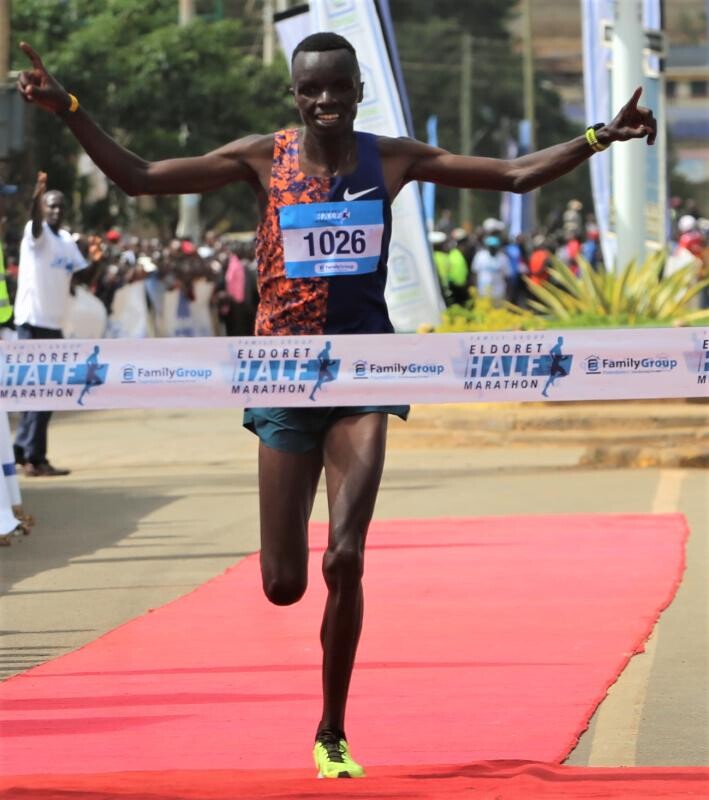
“It’s been God through and through and my season is not even over. Next week I’ll be in Delhi for the Half marathon.
I’m just getting started…we are just closing the track season and shifting the focus to the roads. And then after that we shall focus on the cross-country. We are not closing the season,” Simiu said.
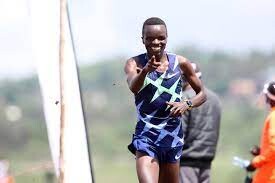
He started off his 2023 season at the World Cross-country championships, competing in the men’s senior race where he finished sixth.
He then competed in his first track race at the Kip Keino Classic where he won the 10,000m in flying colors. Before his first track race, he also competed at the Istanbul Half Marathon where he dominated.
After that, the World Half Marathon silver medalist competed at the National Police Championships, National Championships and later the World Championships National Trials.
His second major assignment was at the World Championships held in Budapest, Hungary where he finished an impressive second before extending the hot streak to the Diamond League Meeting in Brussels.
After the showpiece in Brussels, Simiu went ahead to compete at the World Road Running Championships where he finished second in the half marathon.
His focus is now on road races as he gears up for the major assignment next, the Olympic Games in Paris, France.
(10/14/2023) Views: 527 ⚡AMPby Abigael Wuafula
Vedanta Delhi Half Marathon
The Airtel Delhi Half Marathon is a haven for runners, creating an experience, that our citizens had never envisaged. The streets of Delhi converted to a world-class running track. Clean, sanitized road for 21.09 kms, exhaustive medical support system on the route, timing chip for runners, qualified personnel to ensure smooth conduct of the event across departments. The race...
more...

